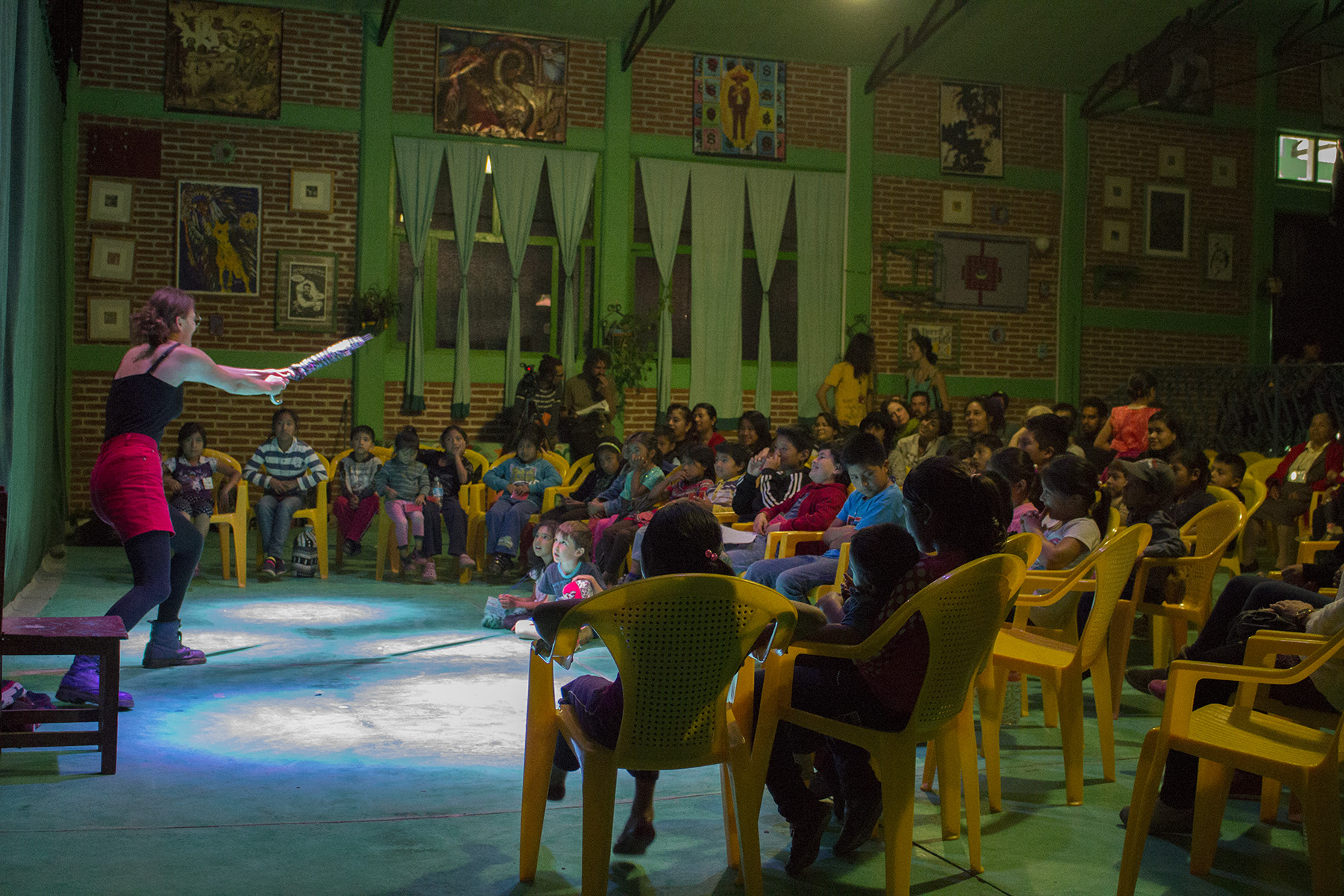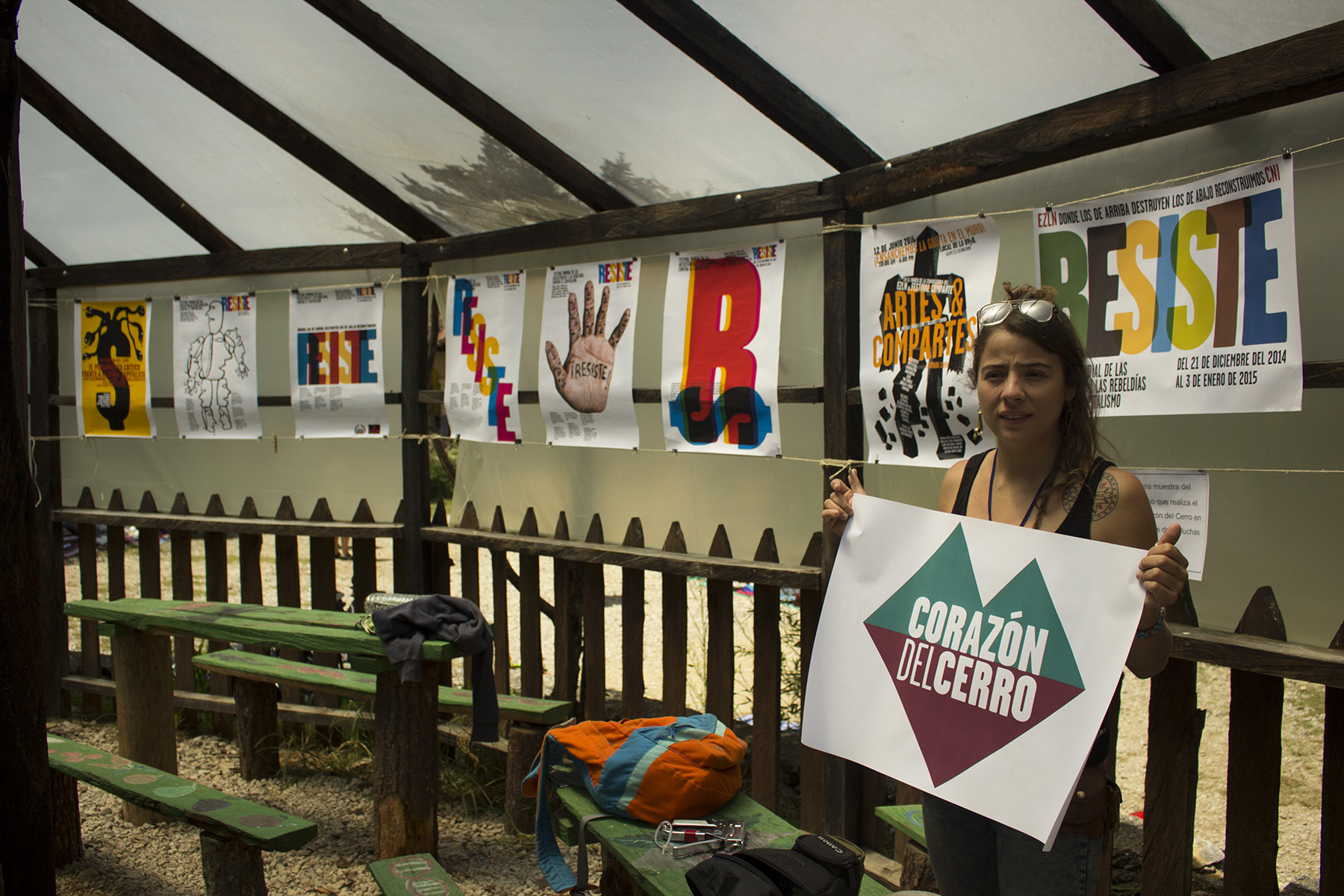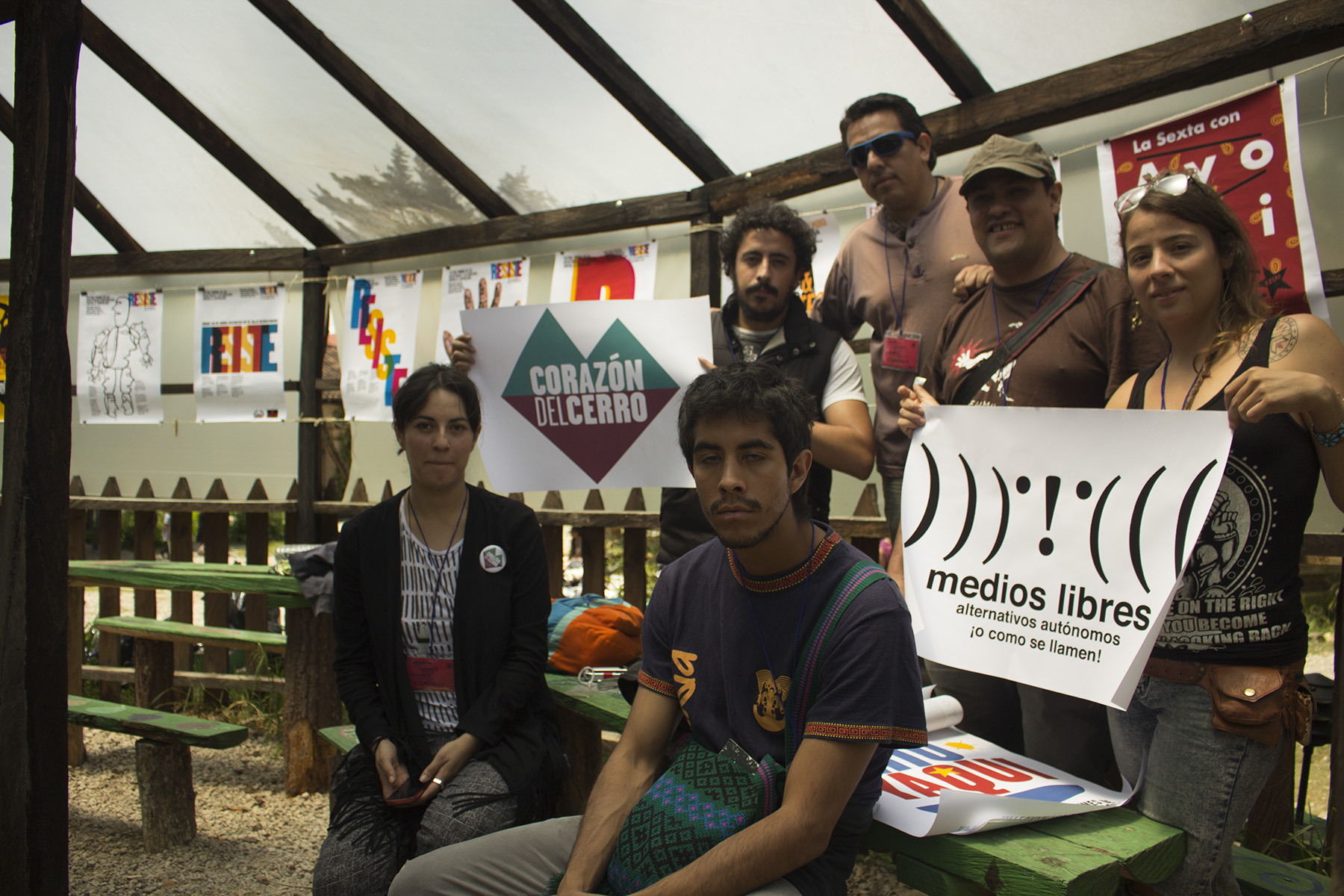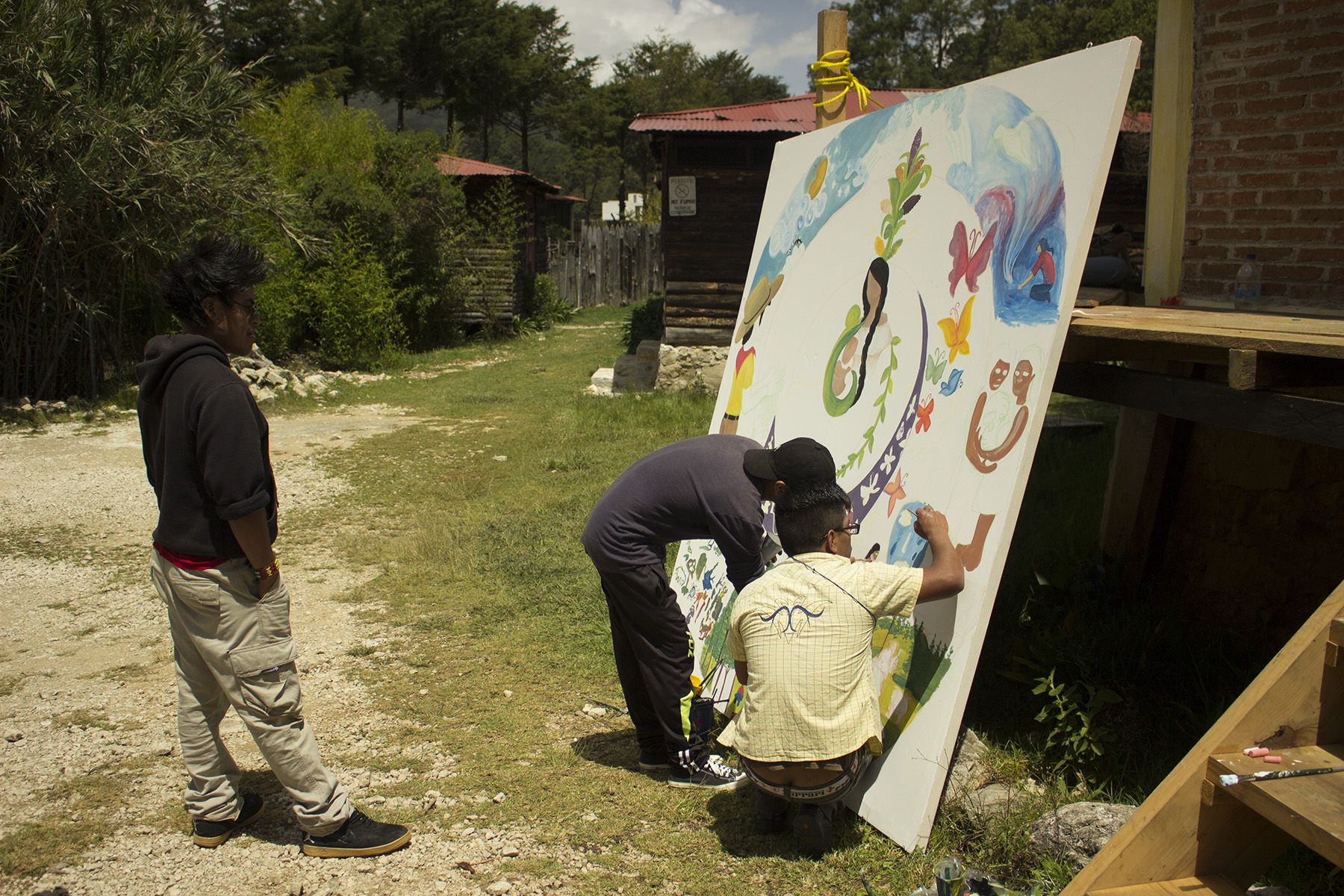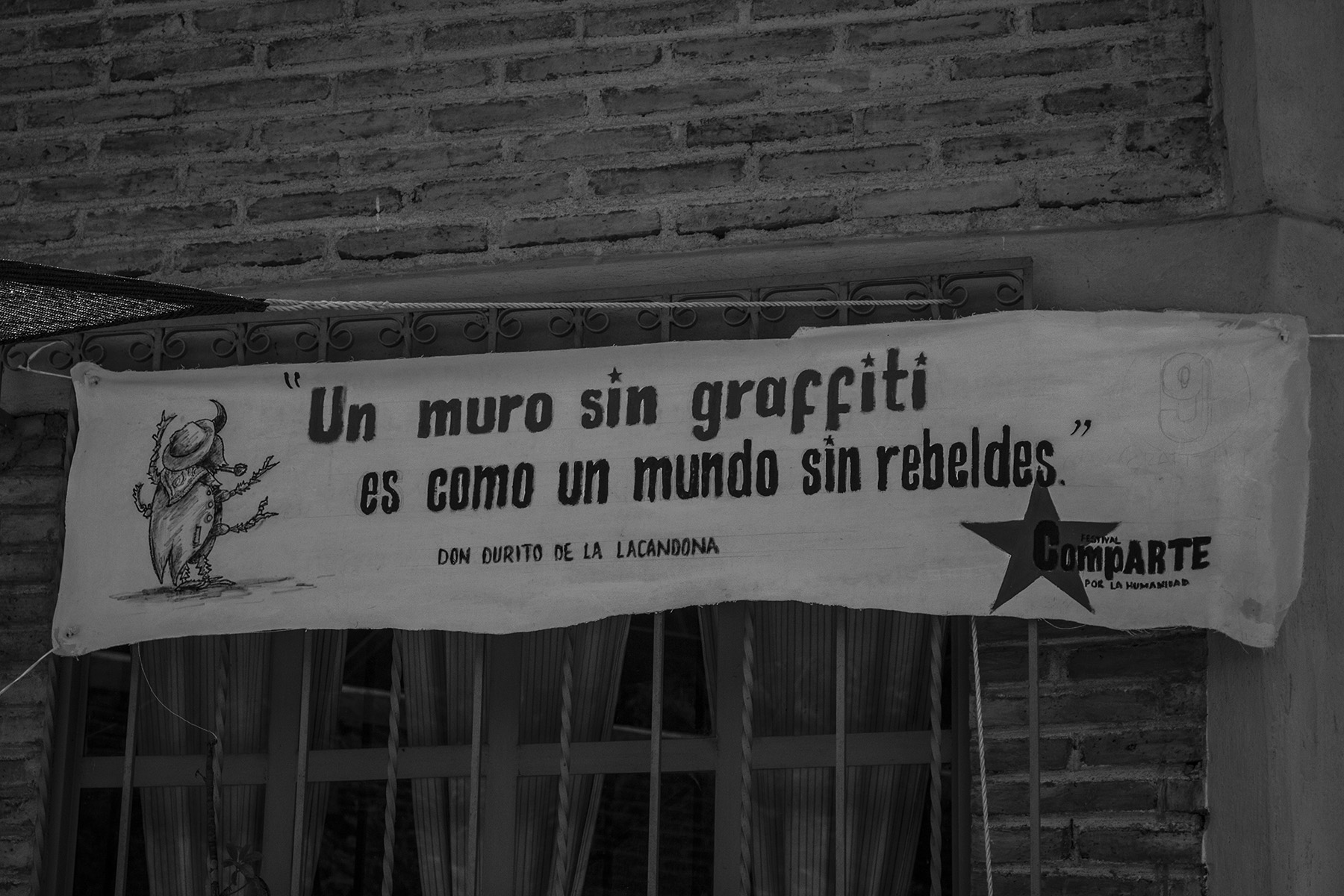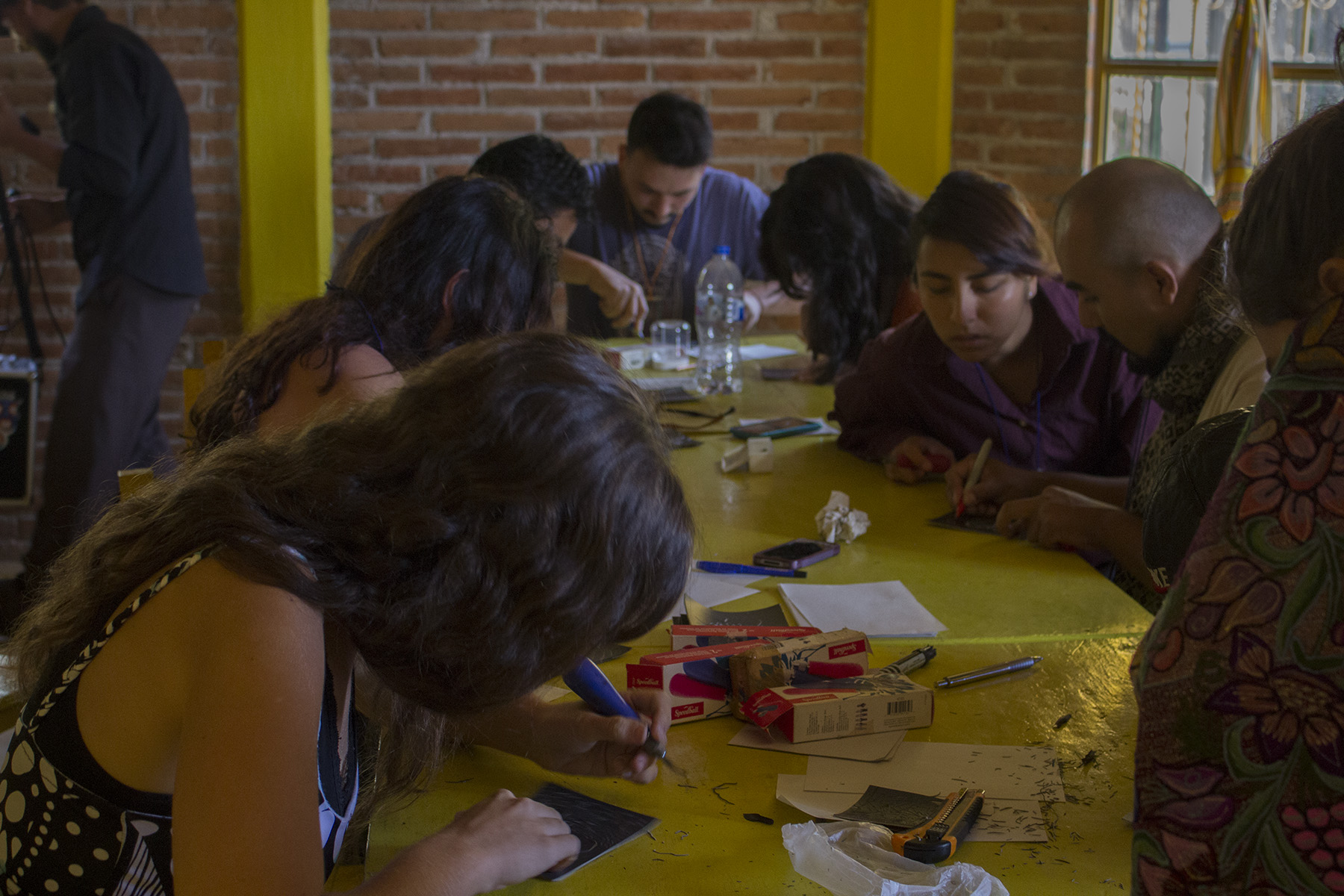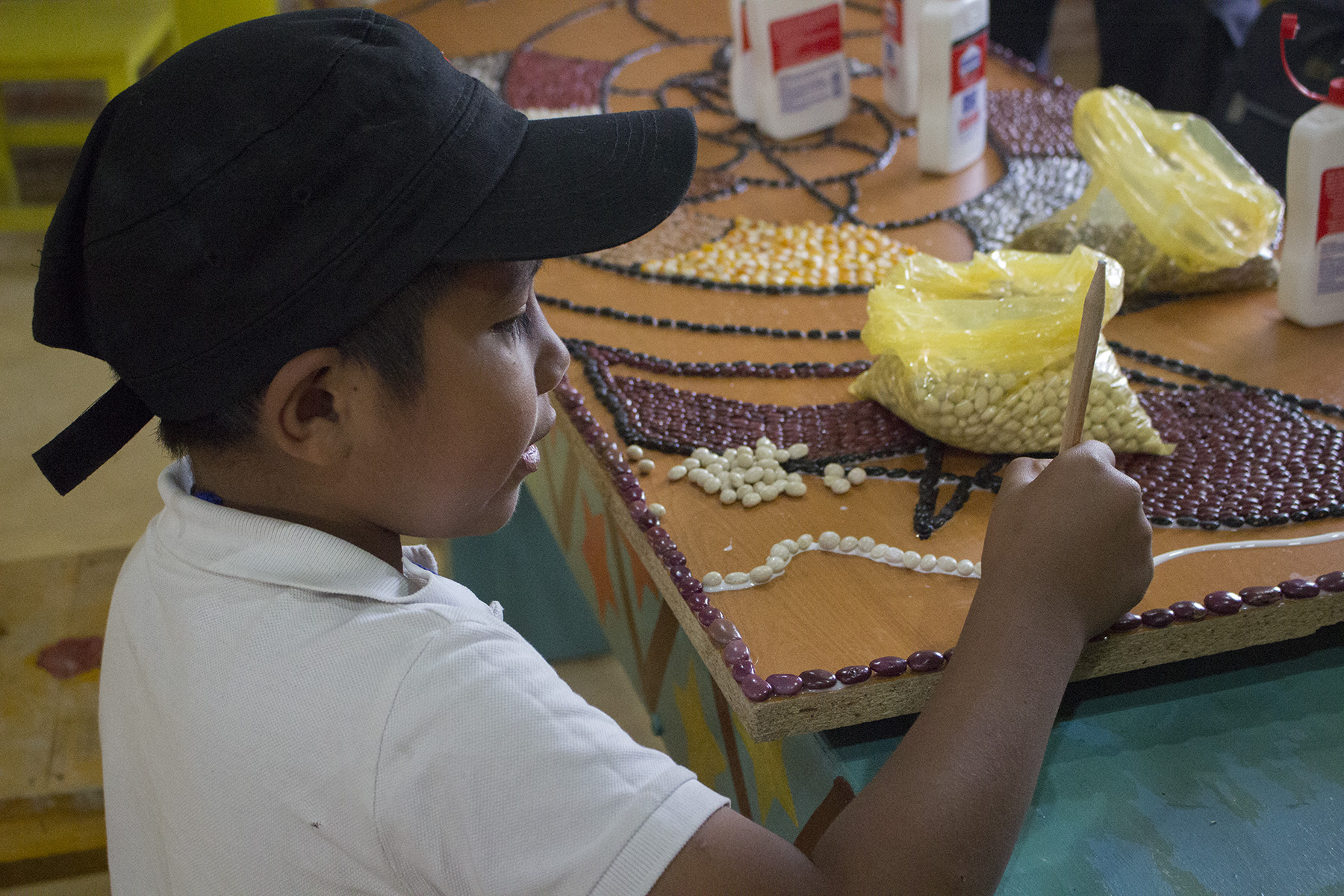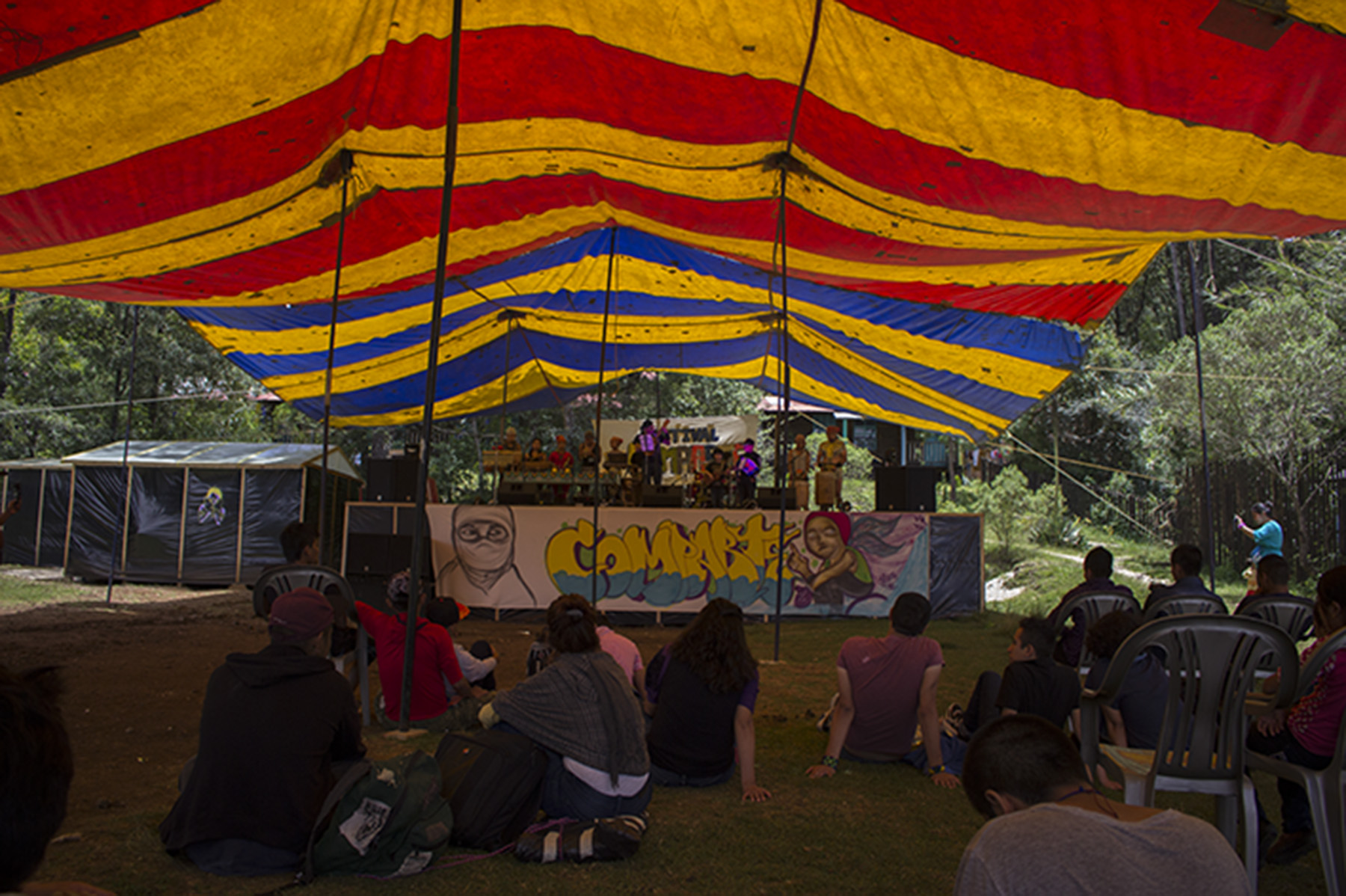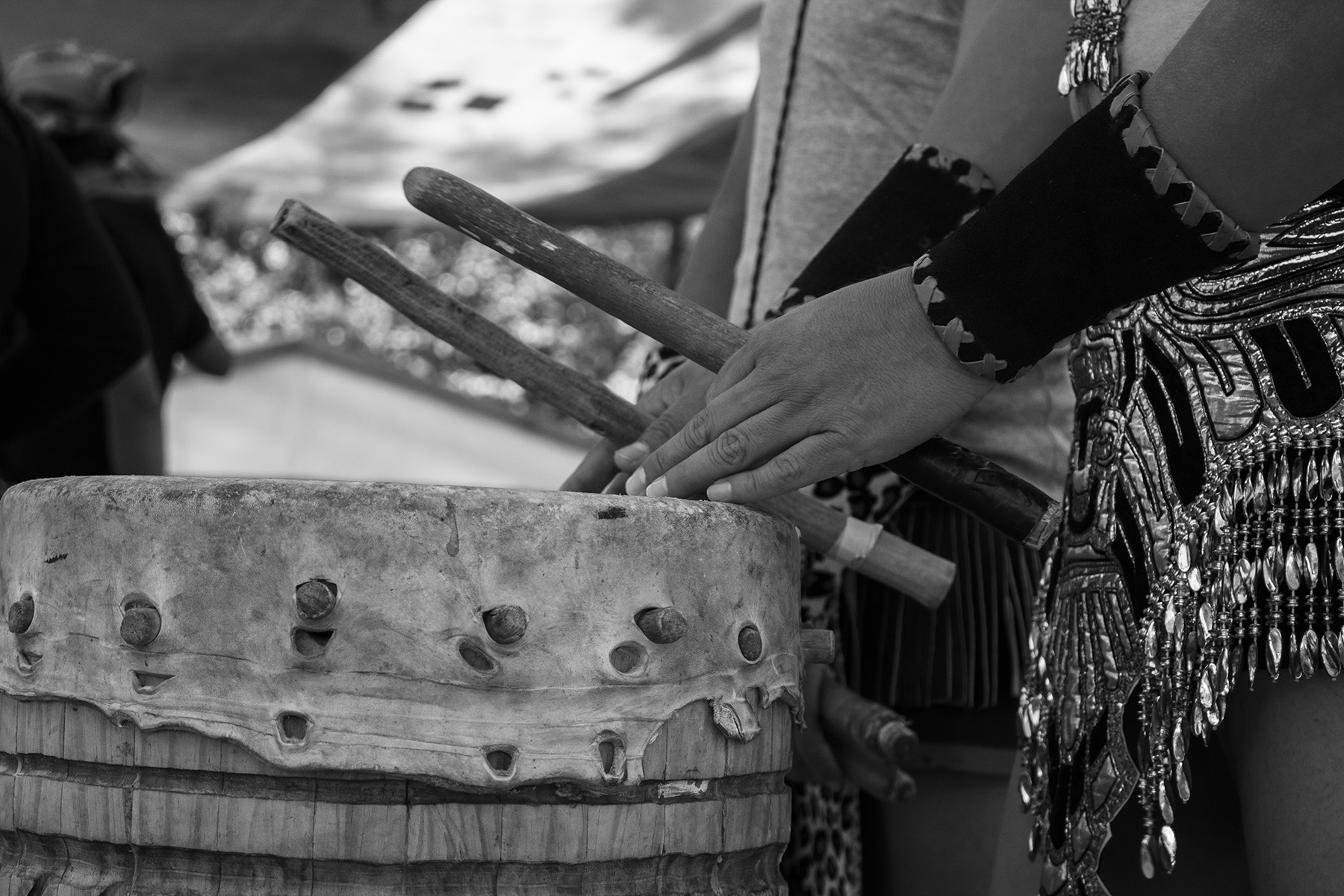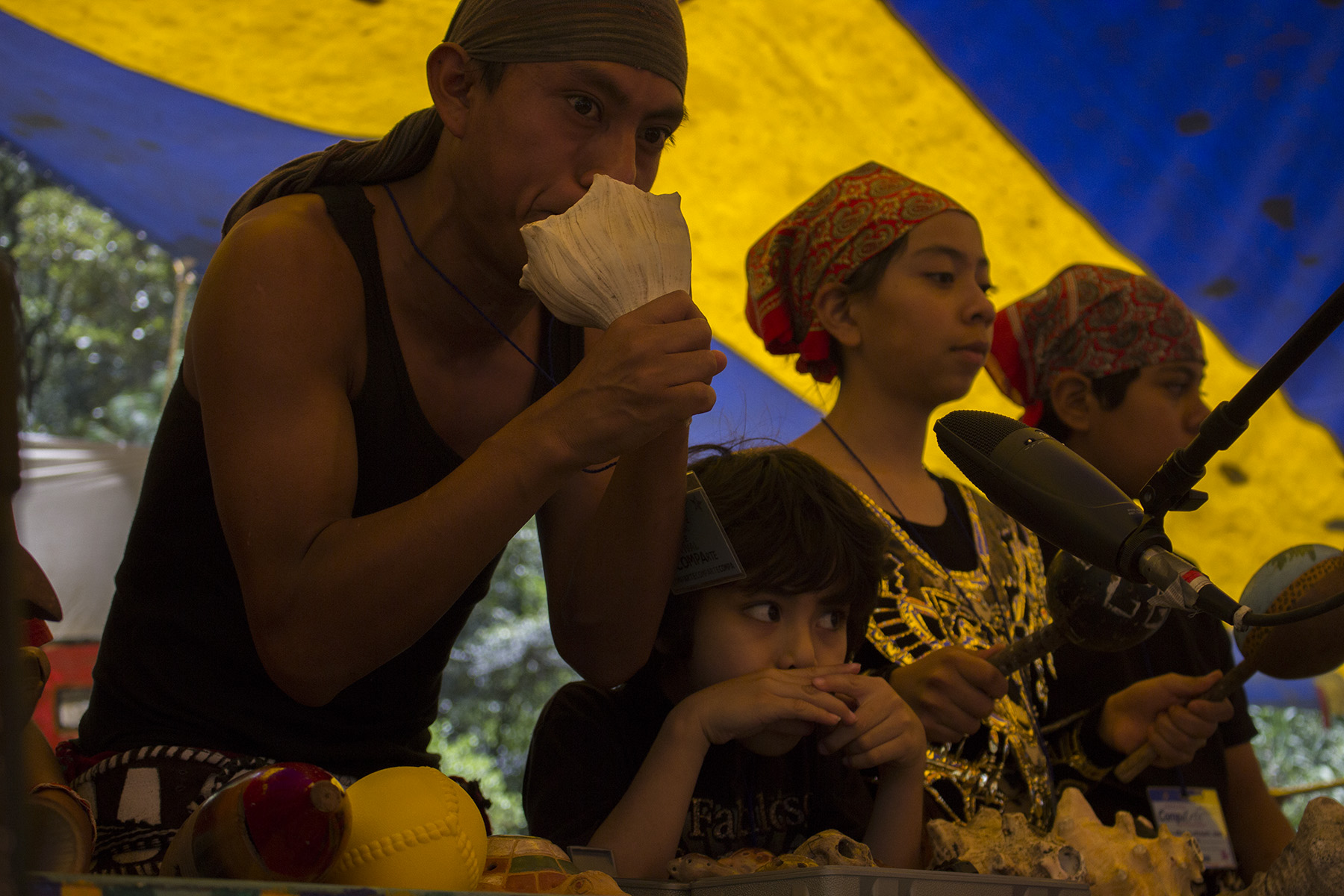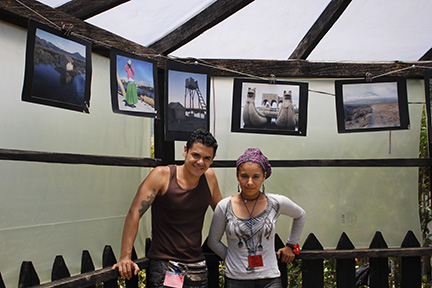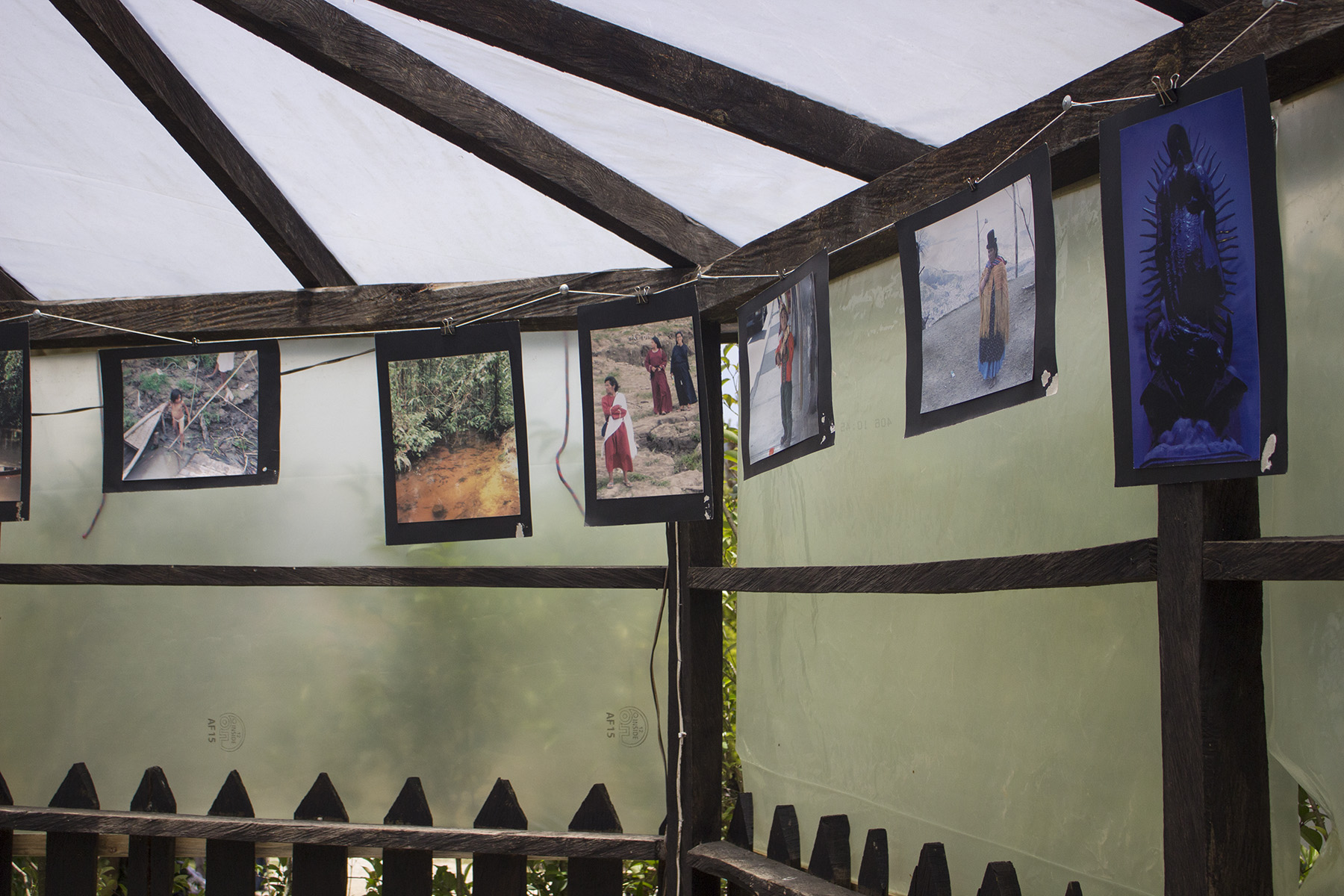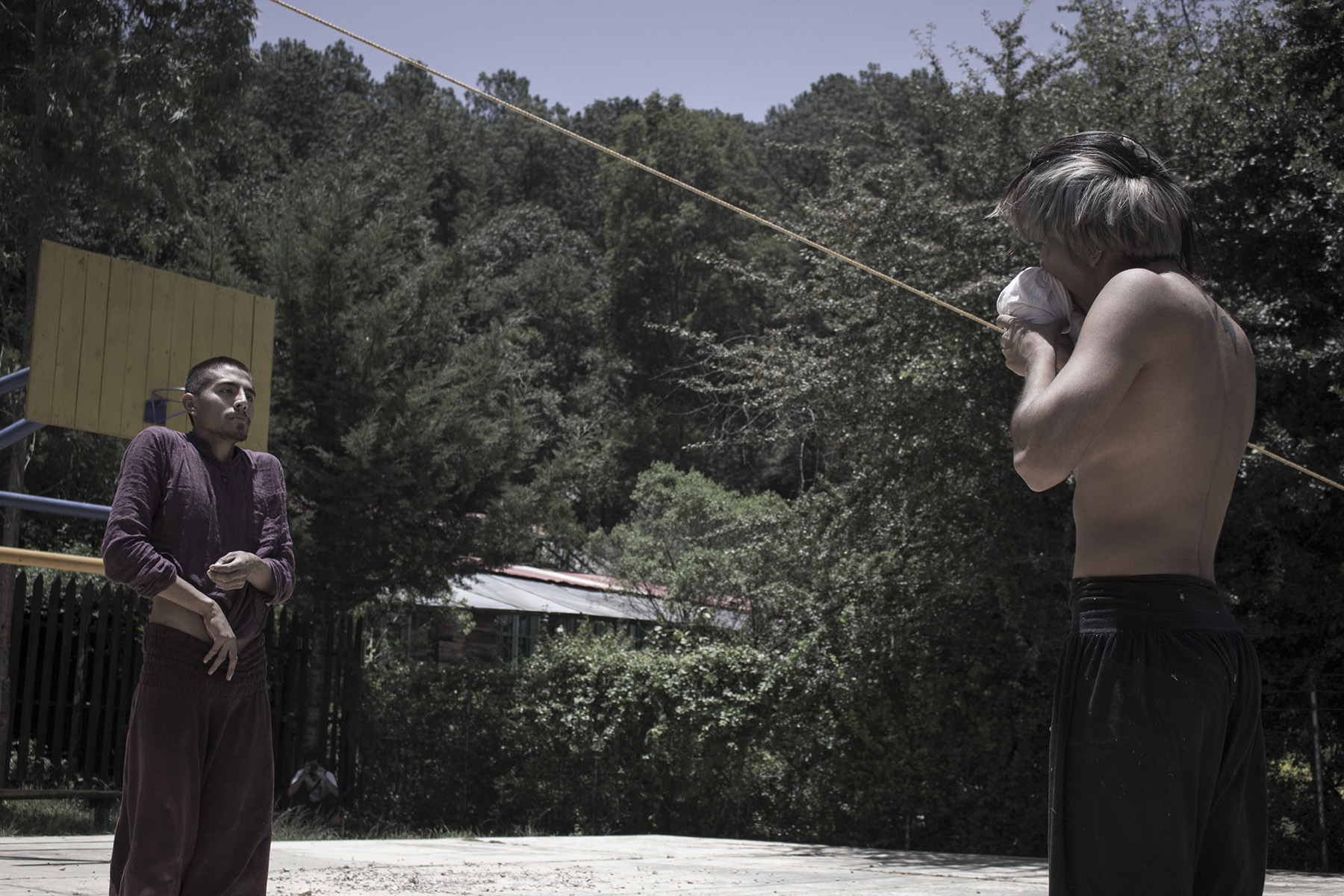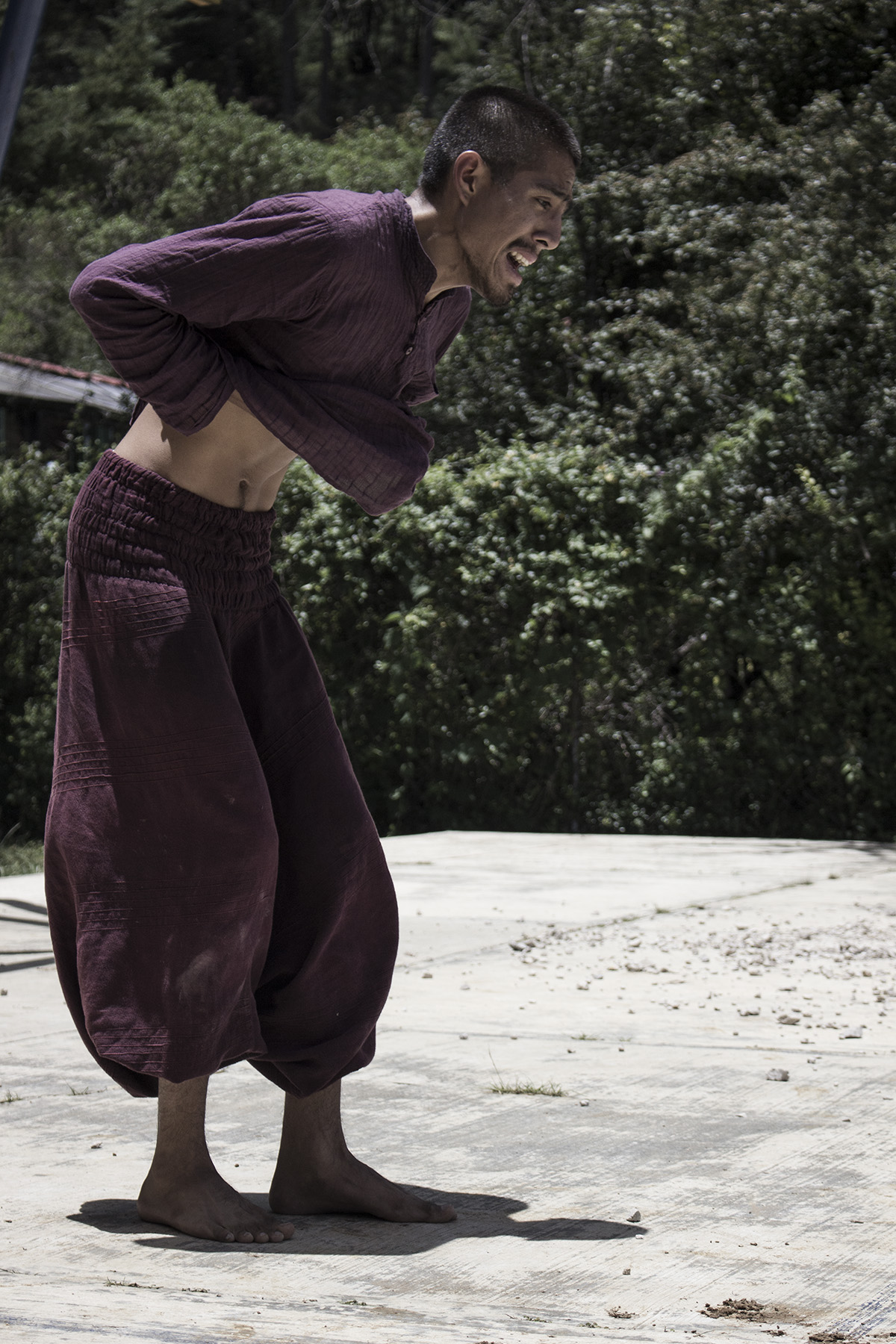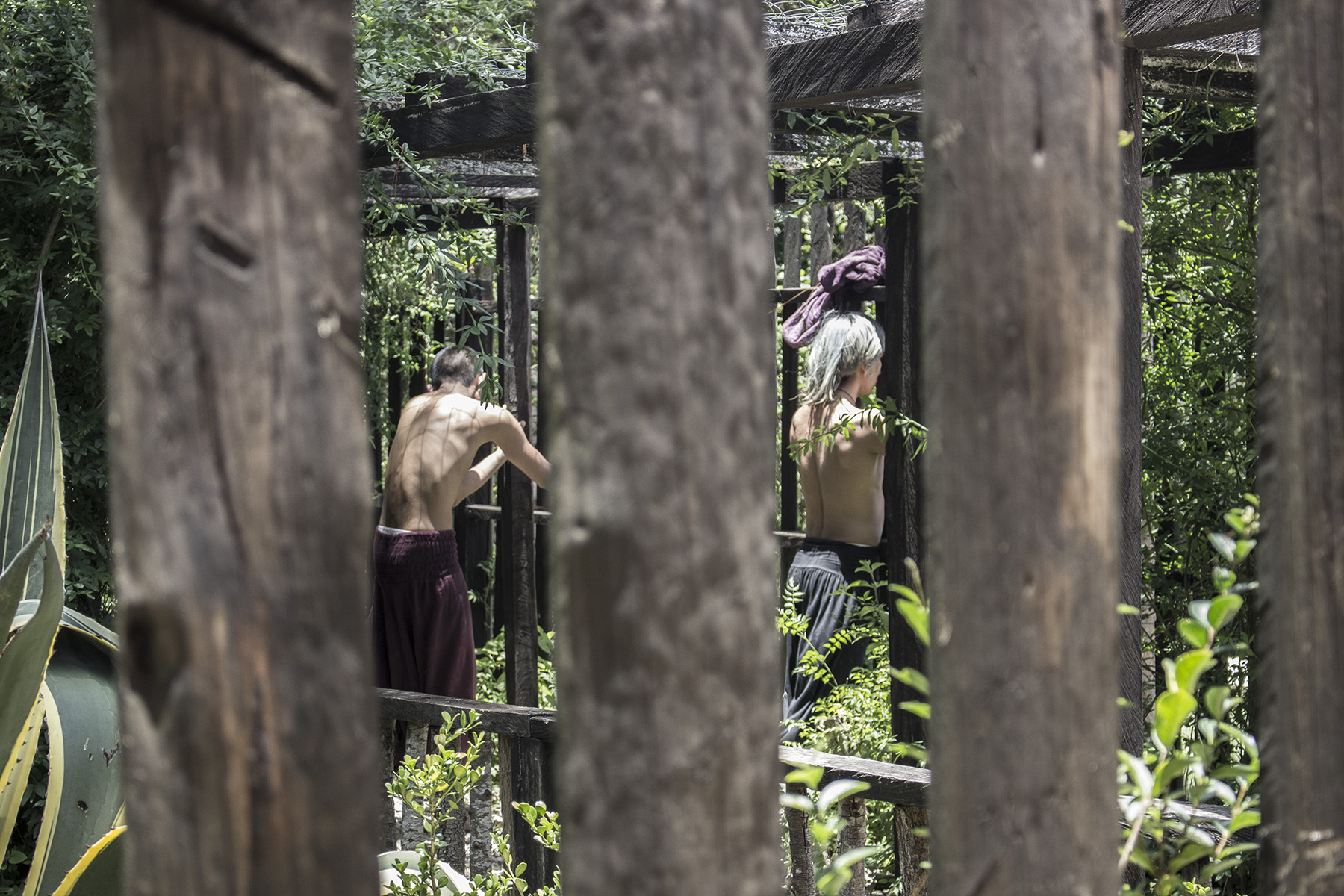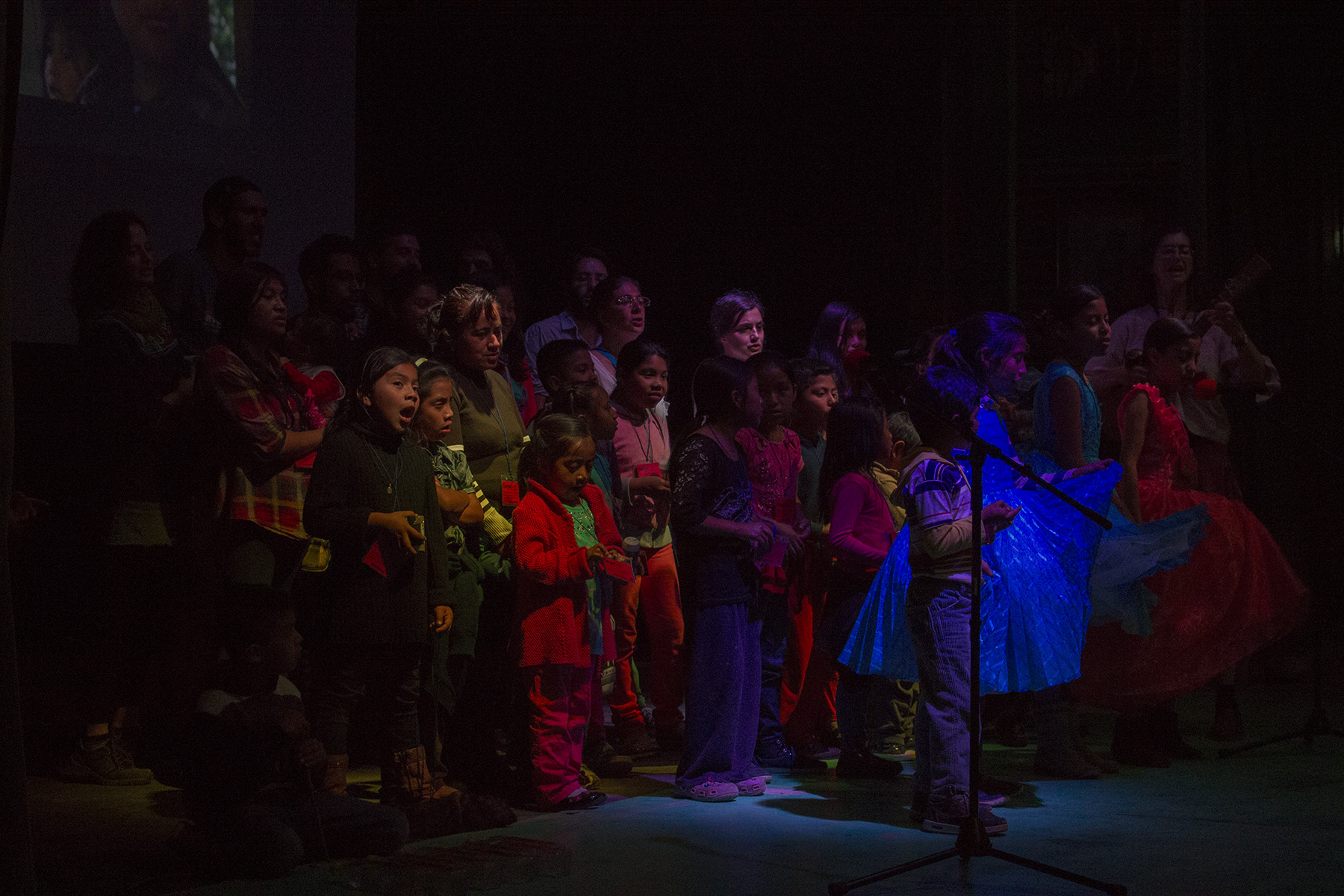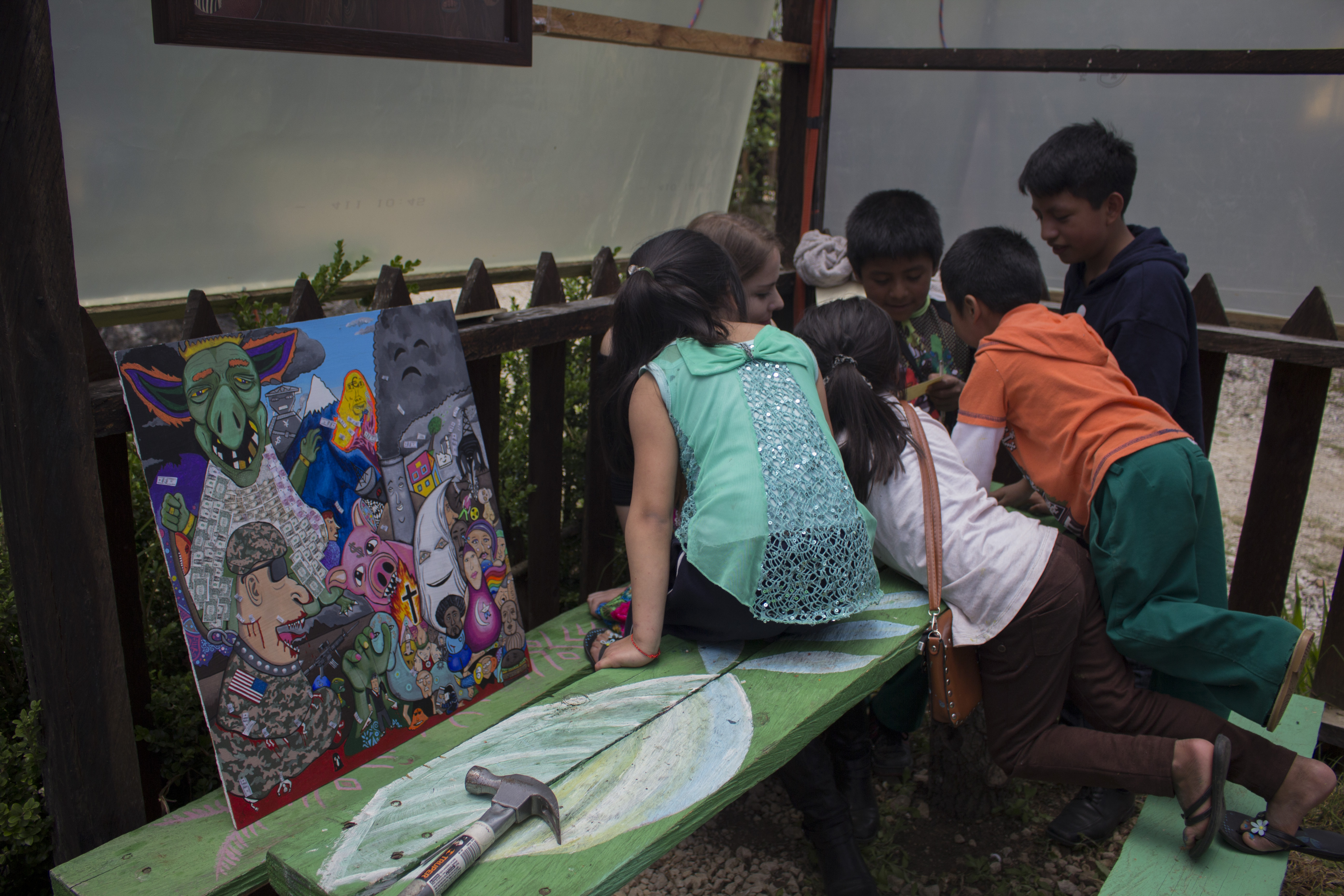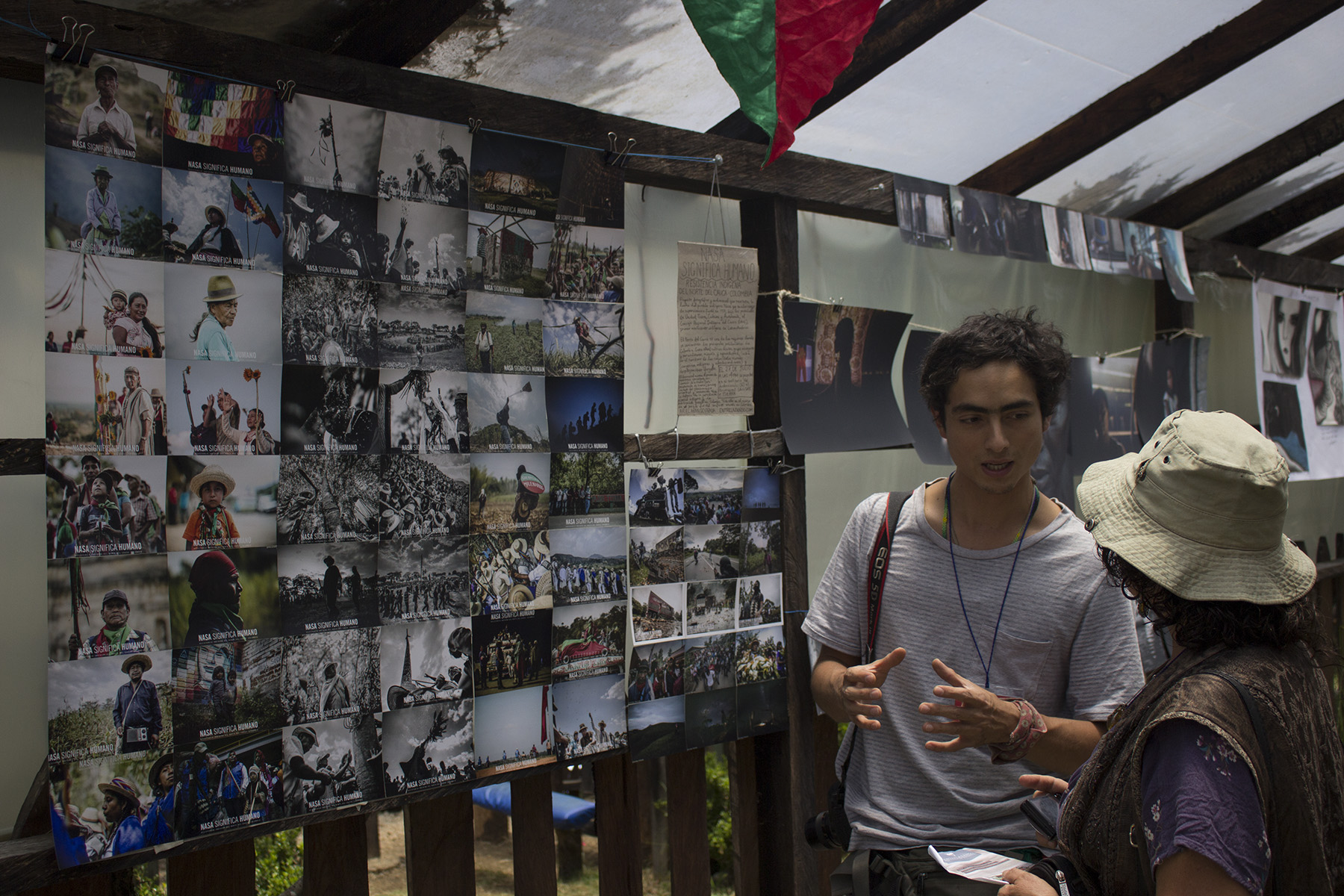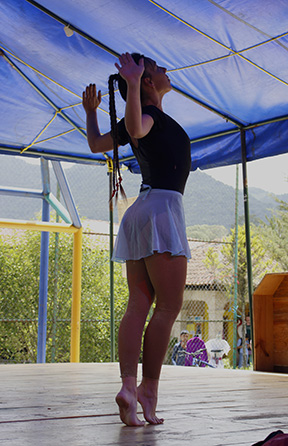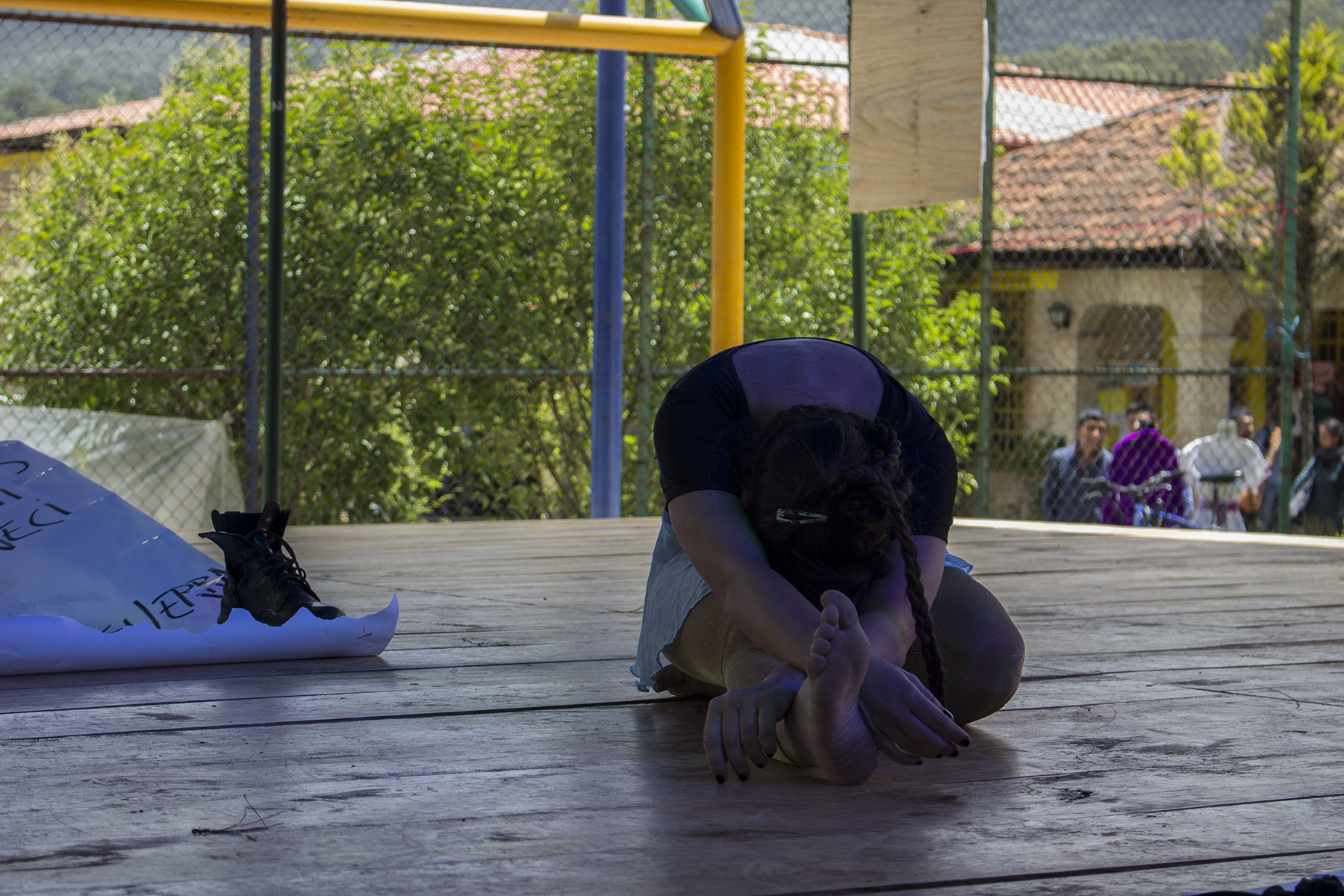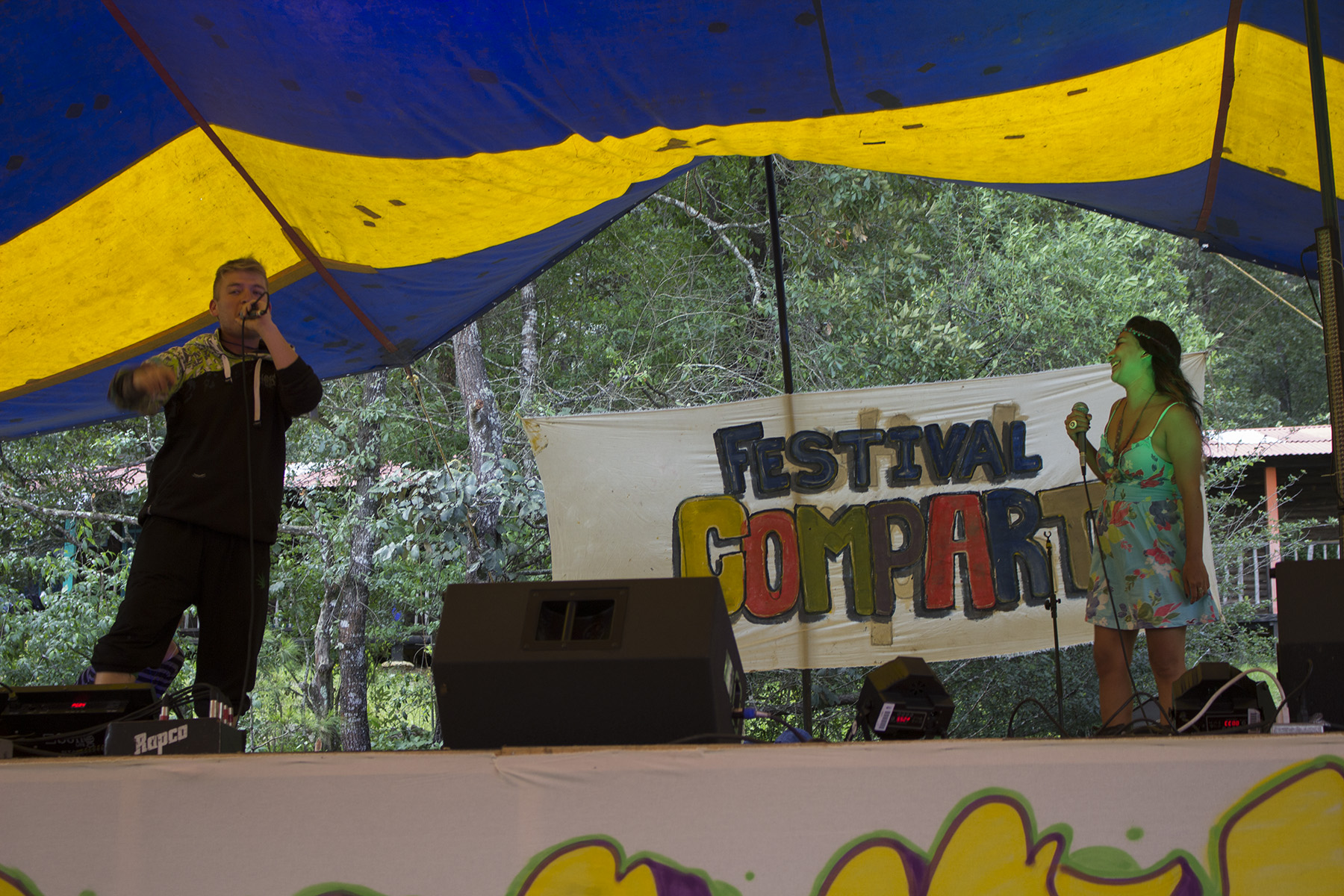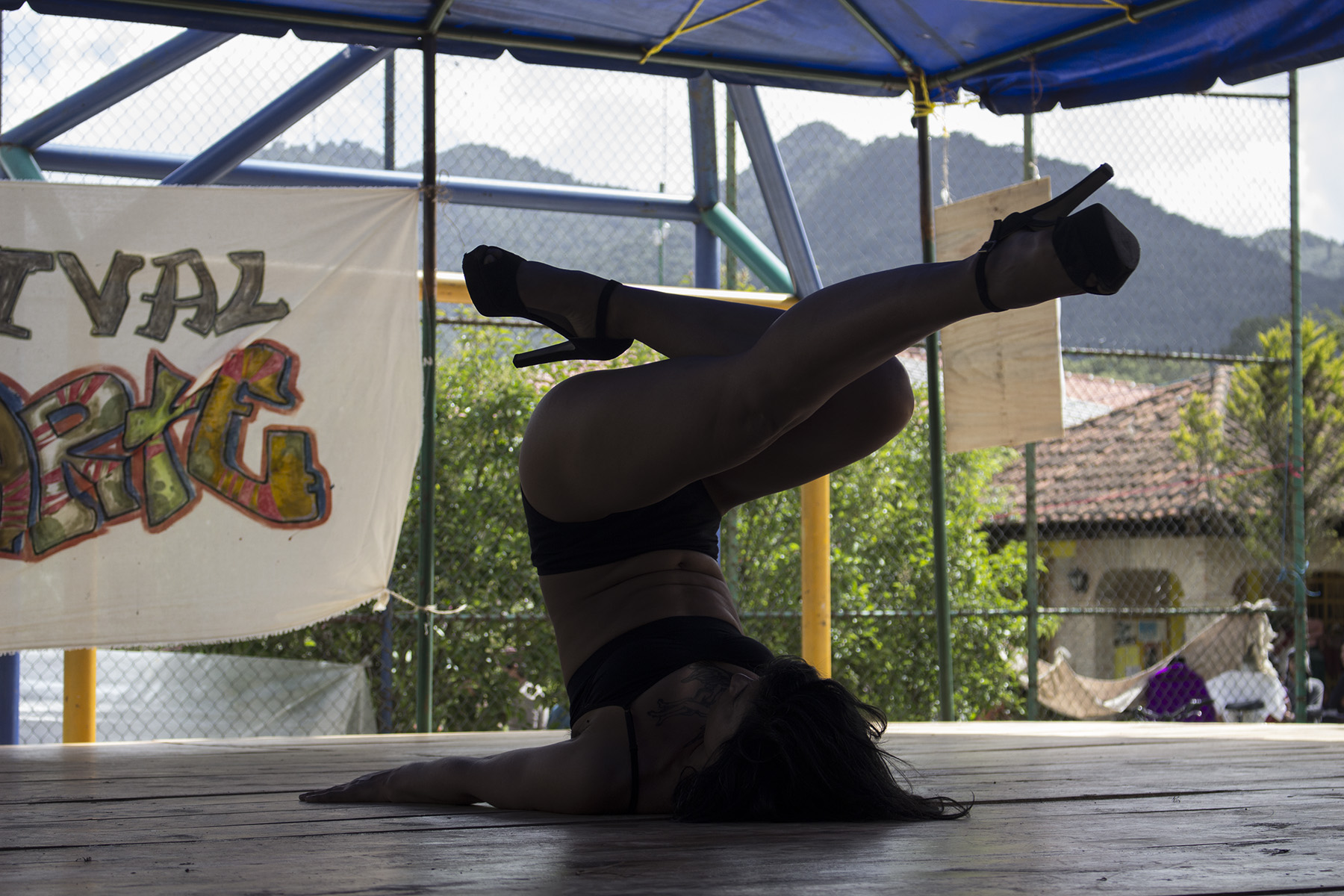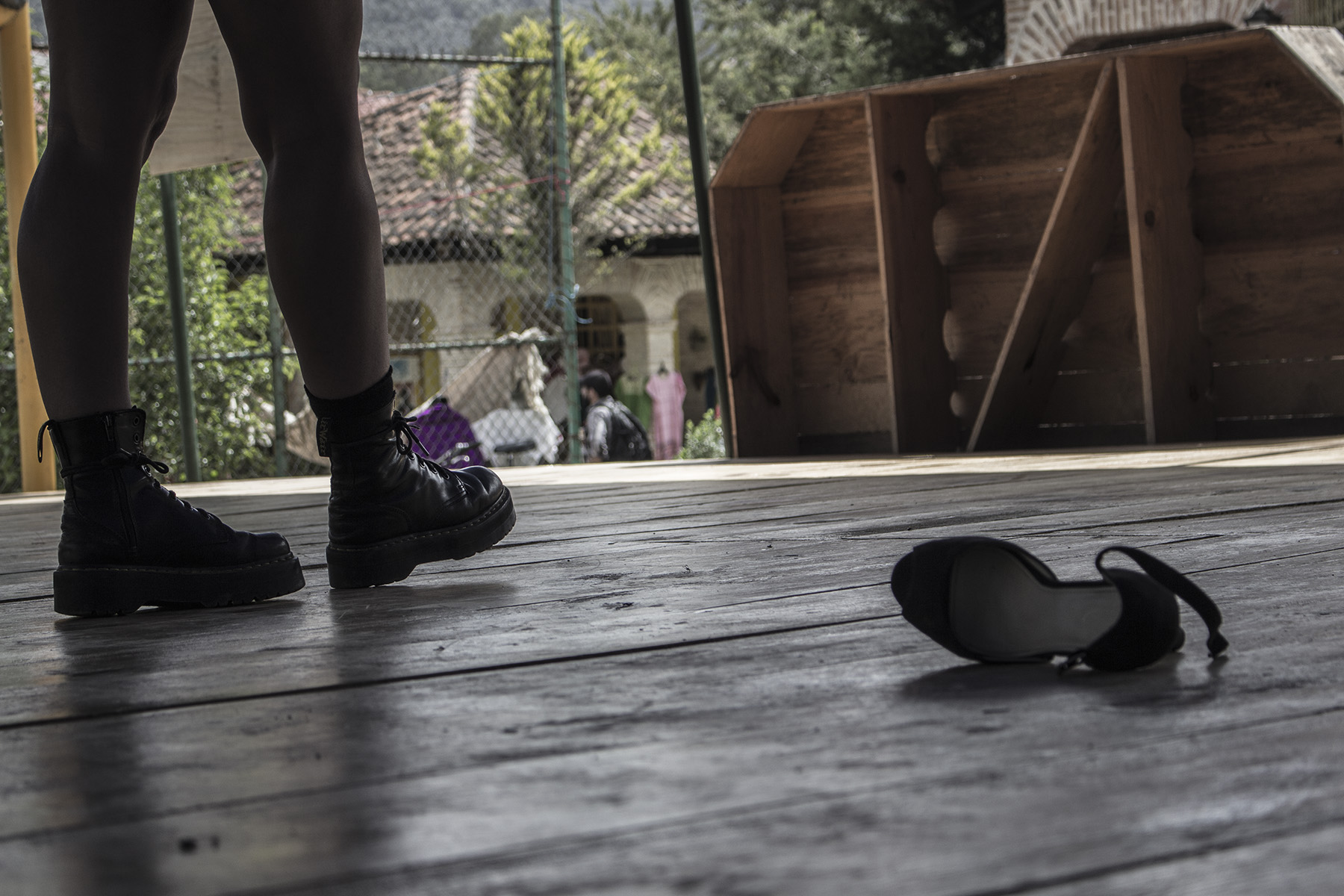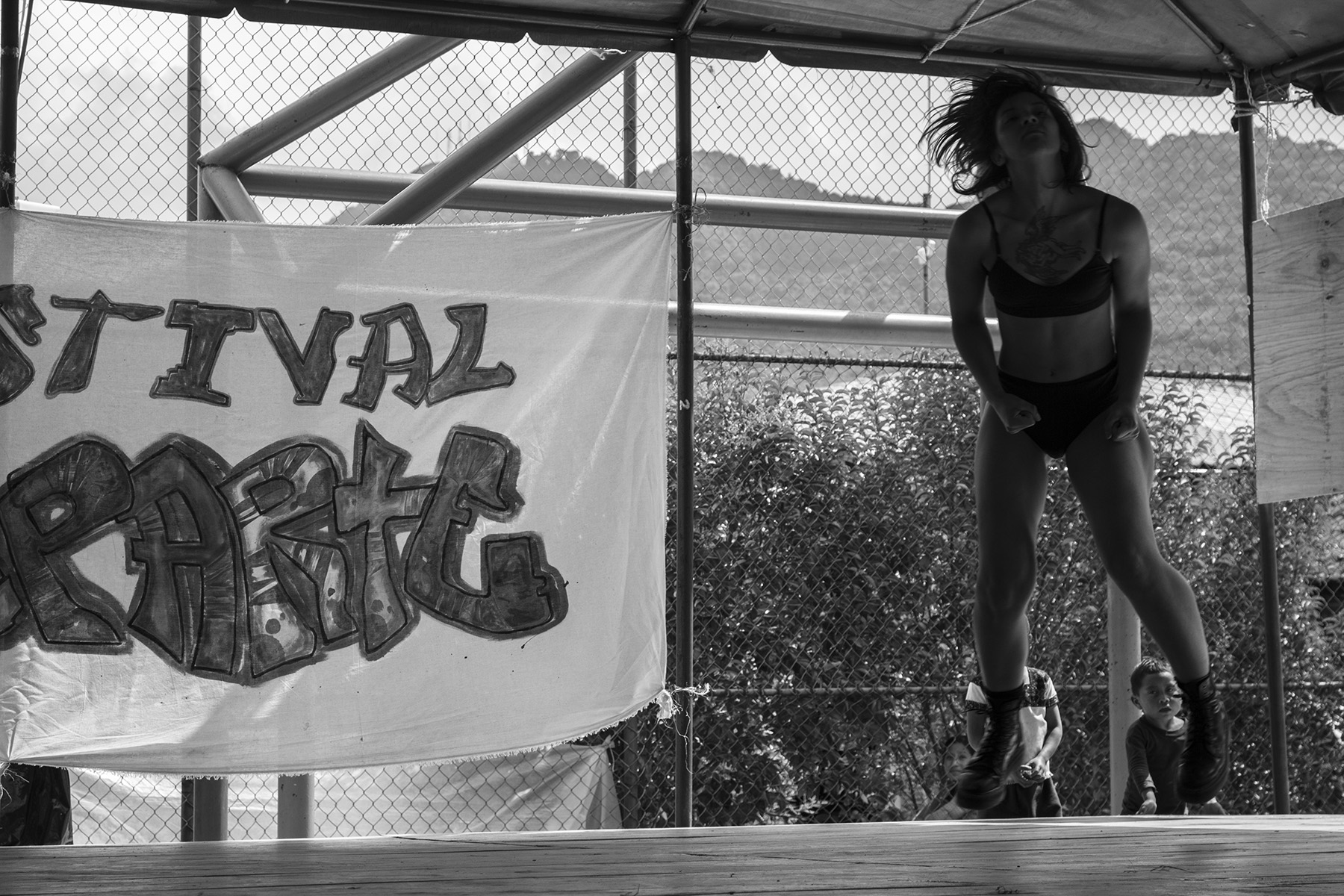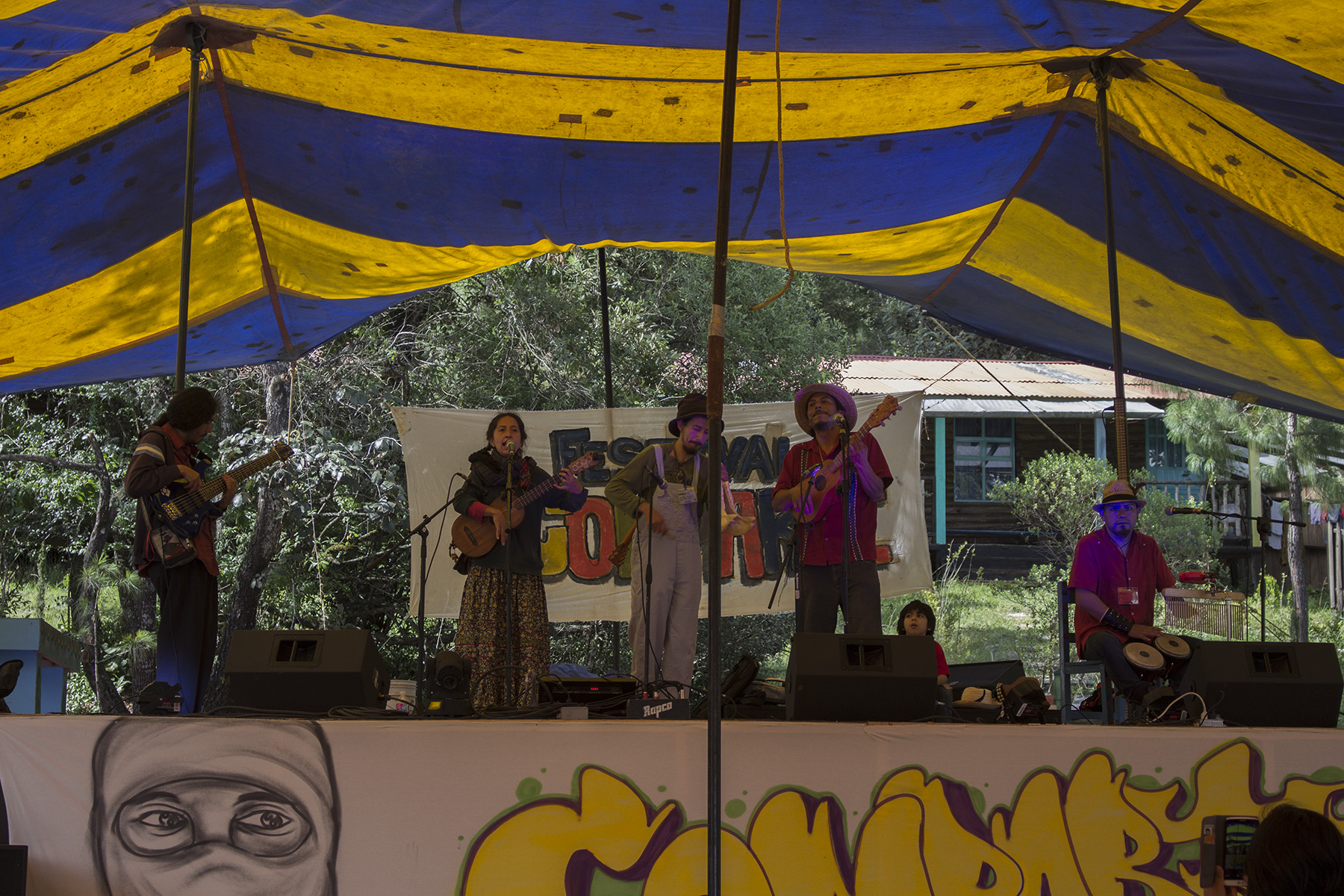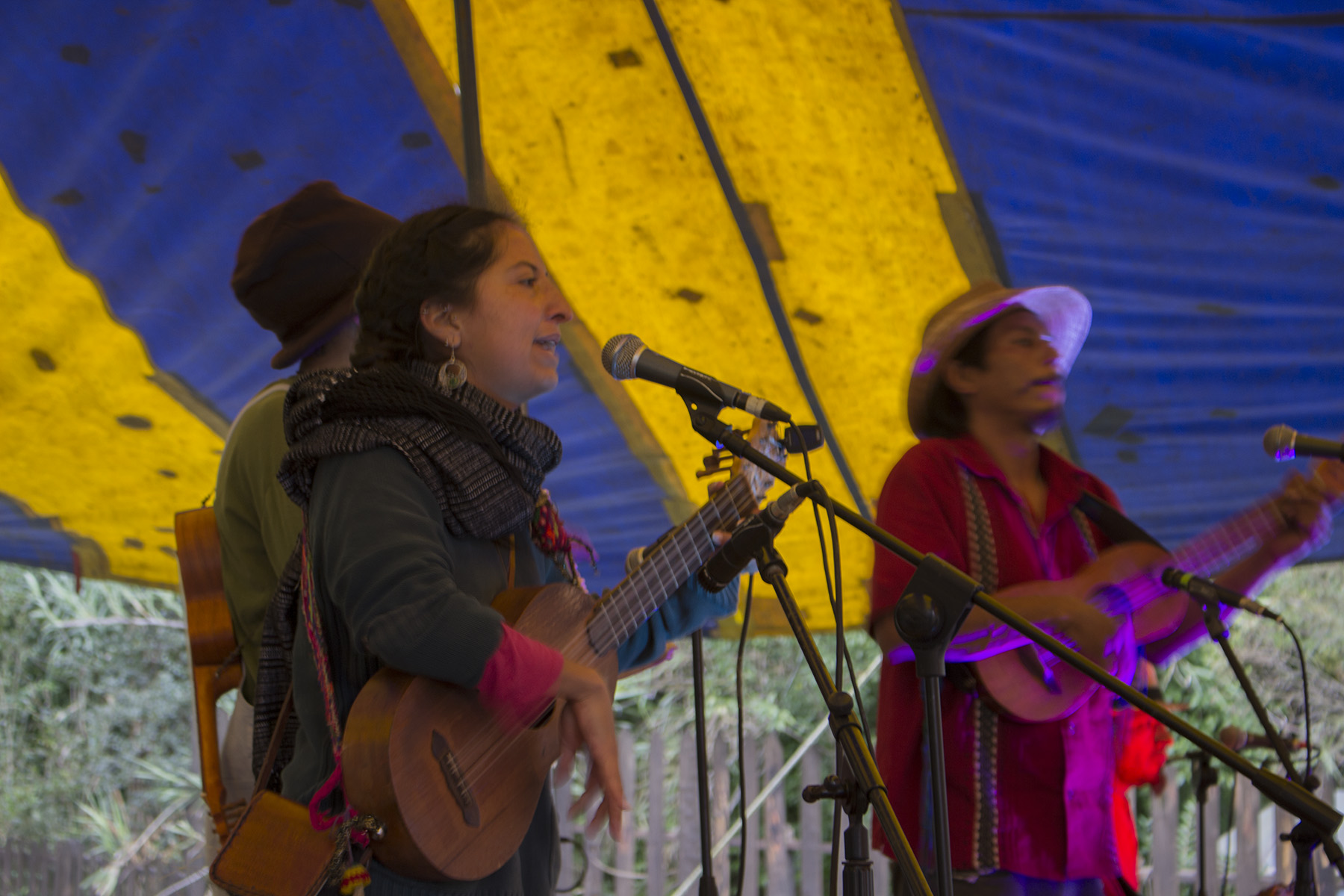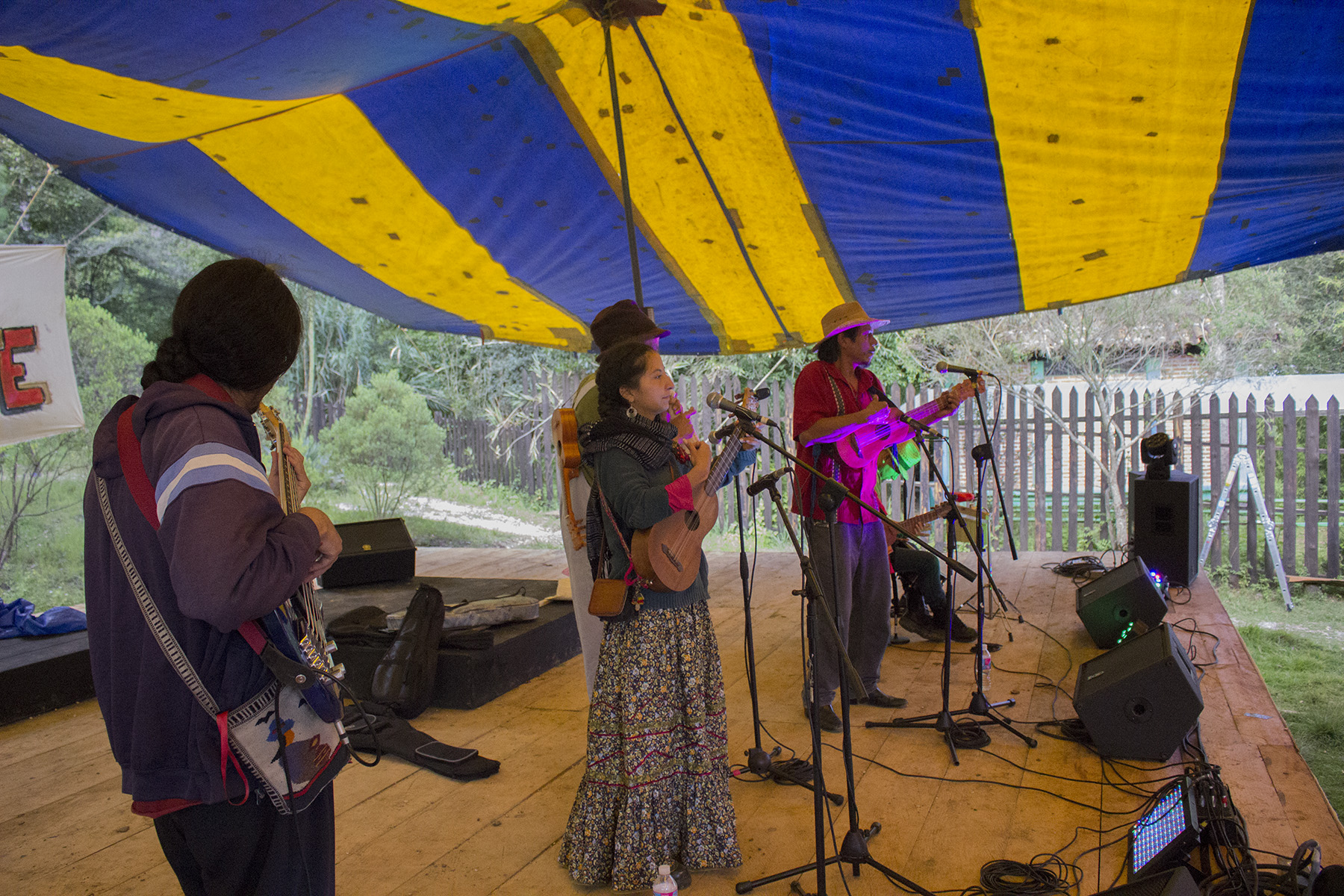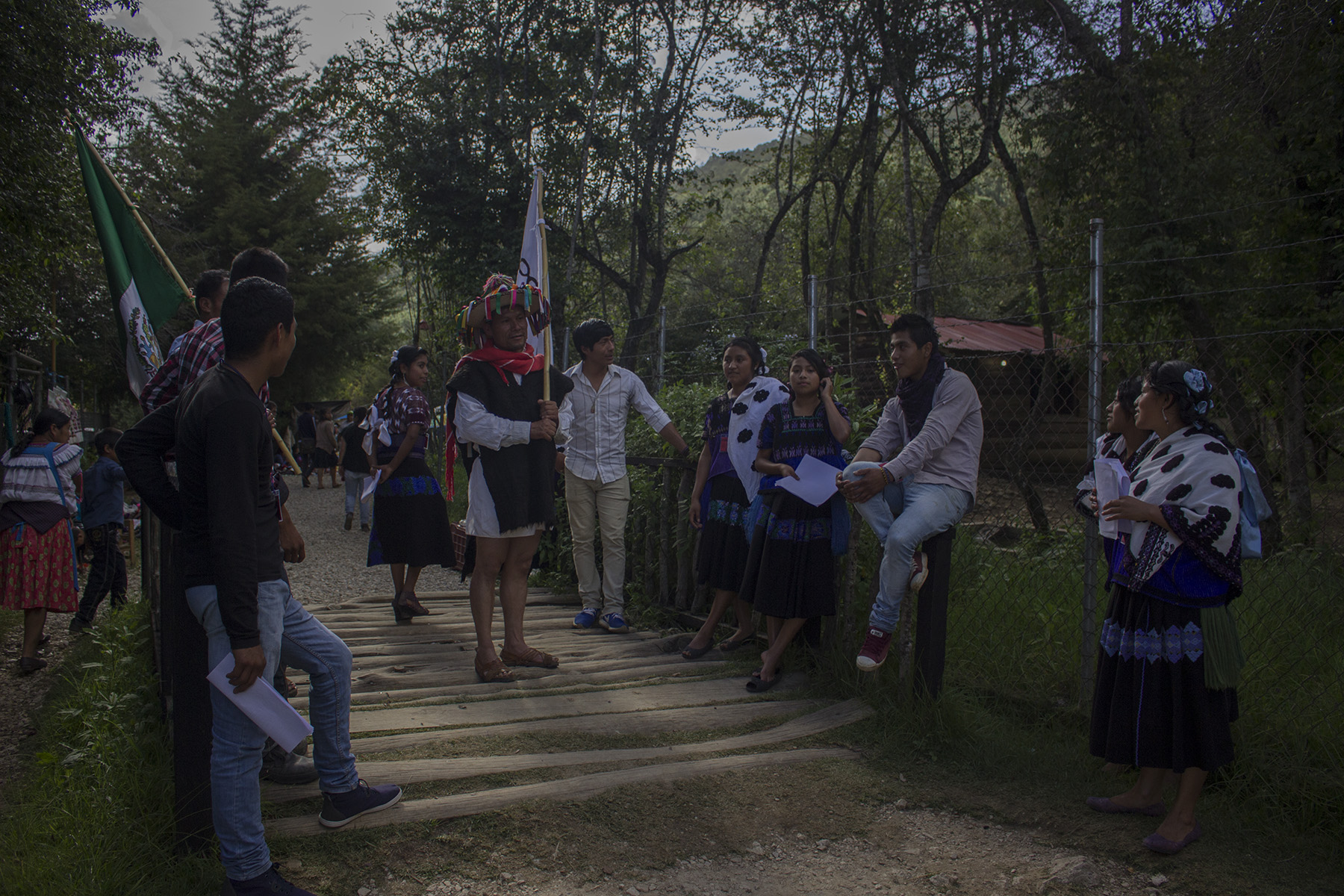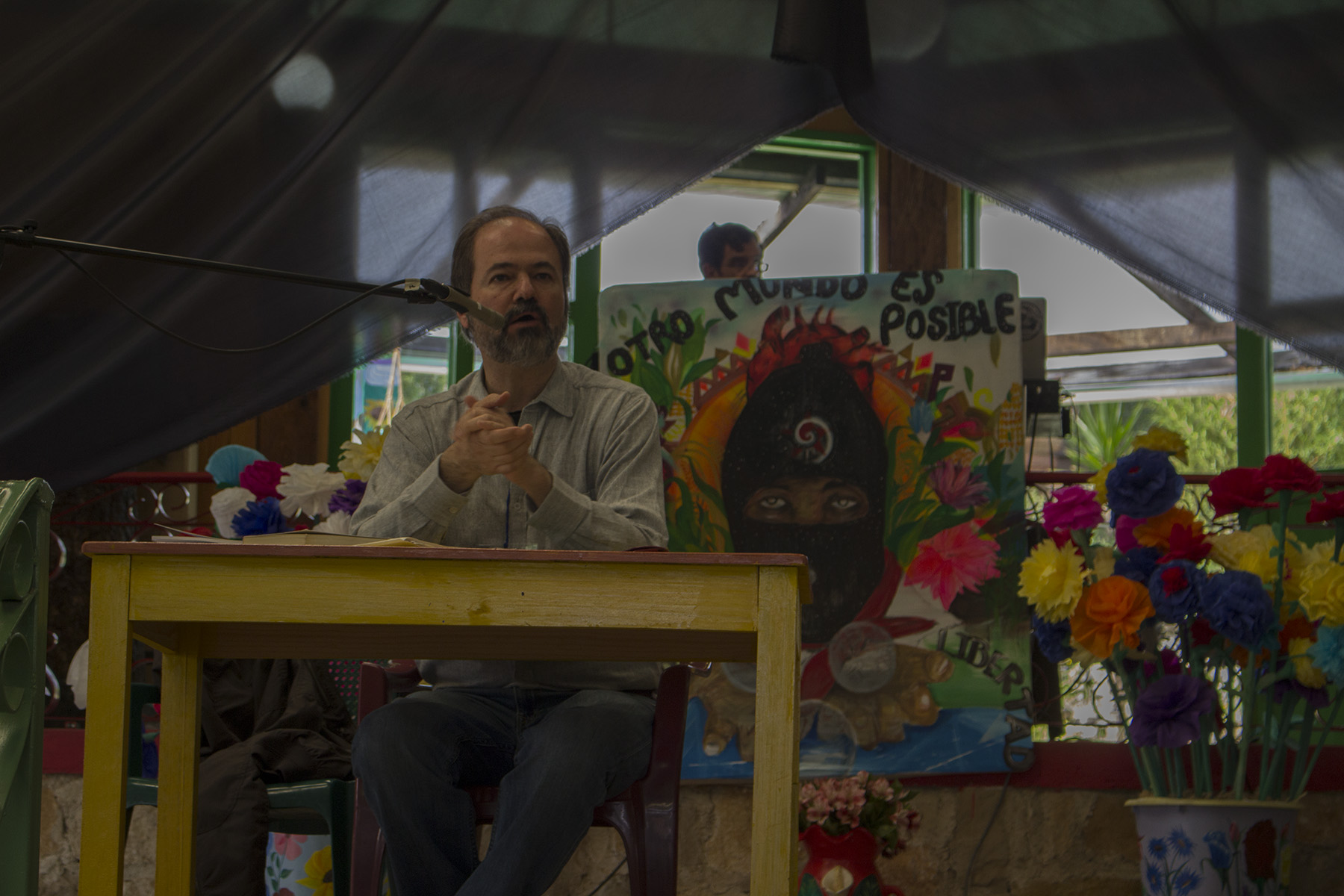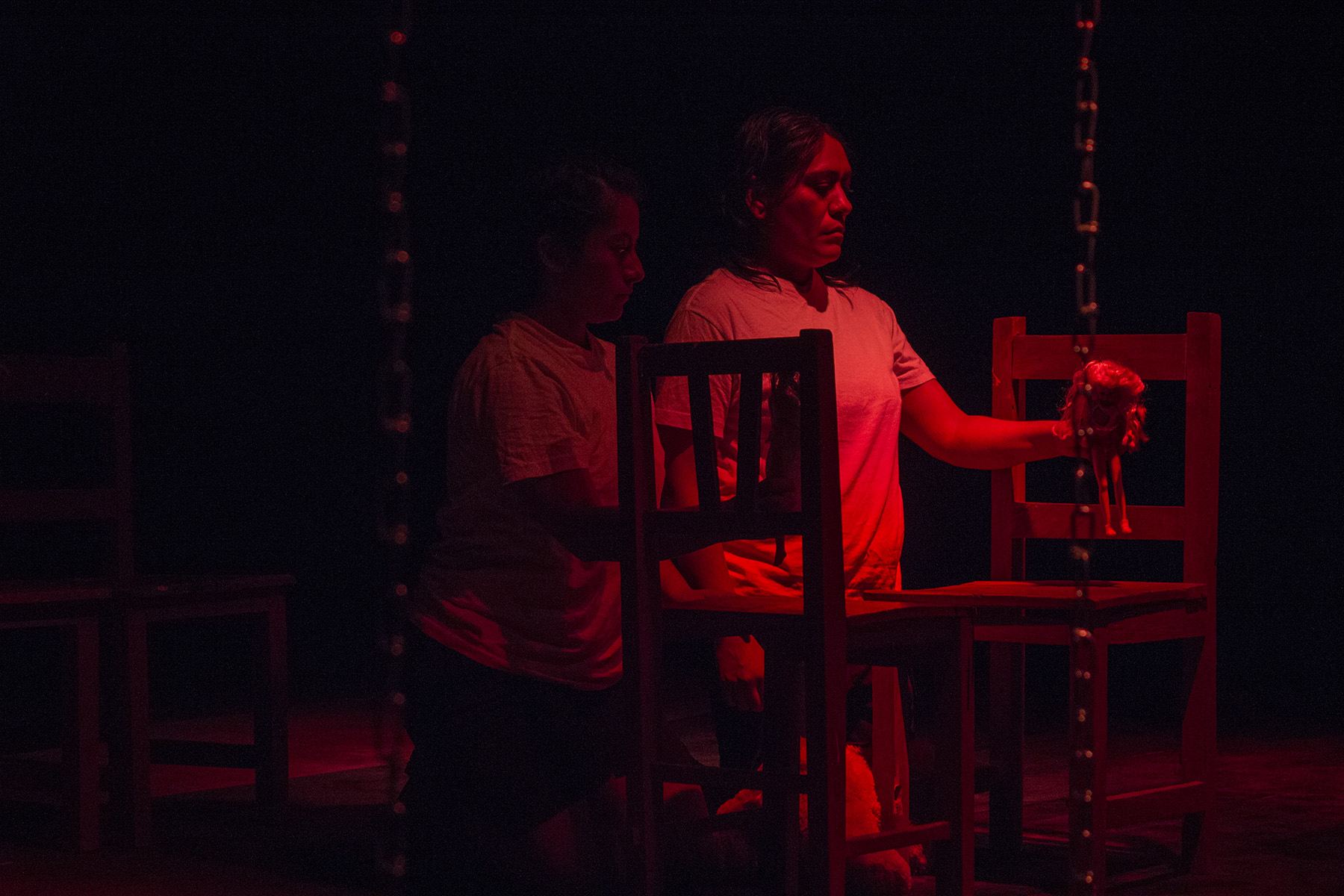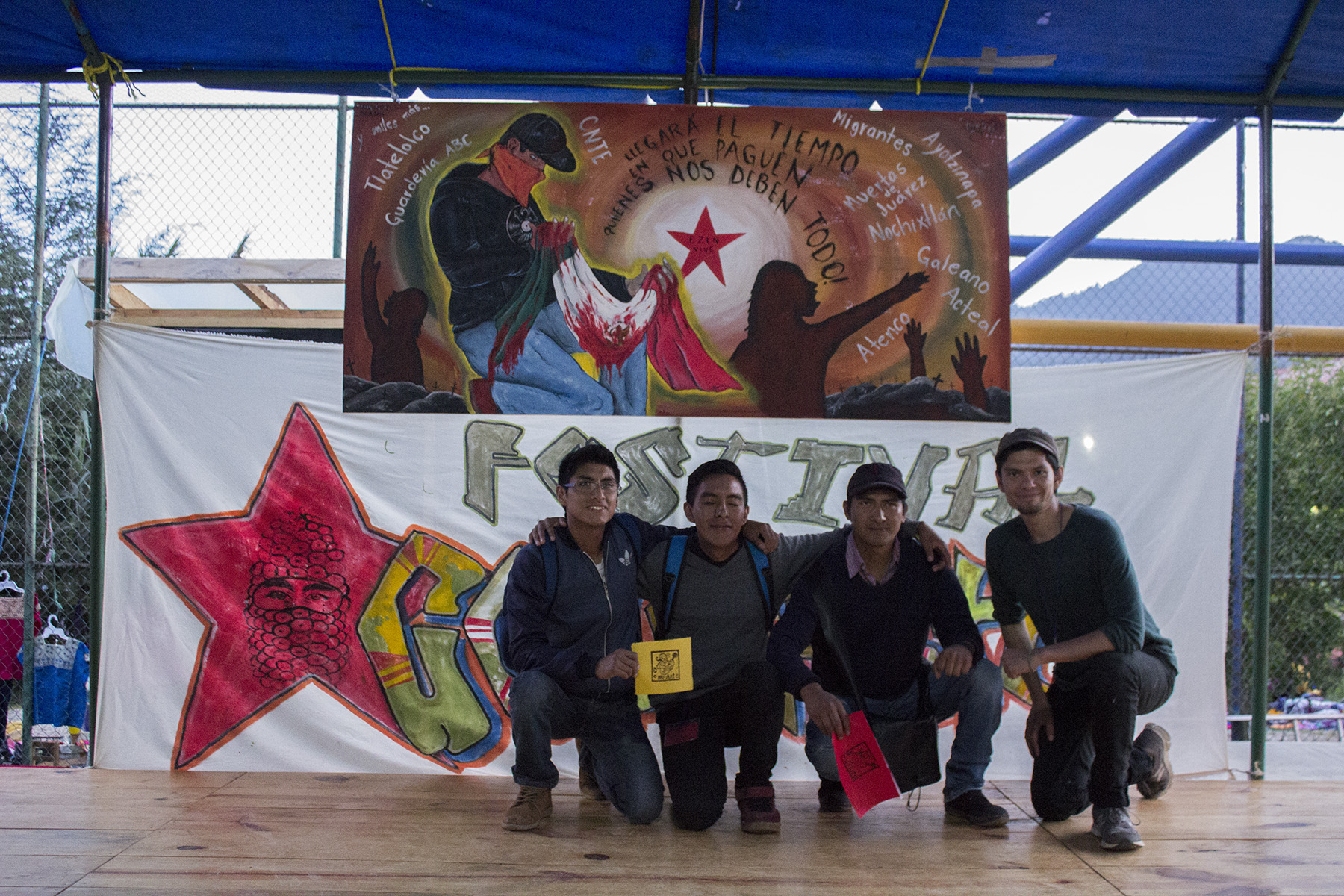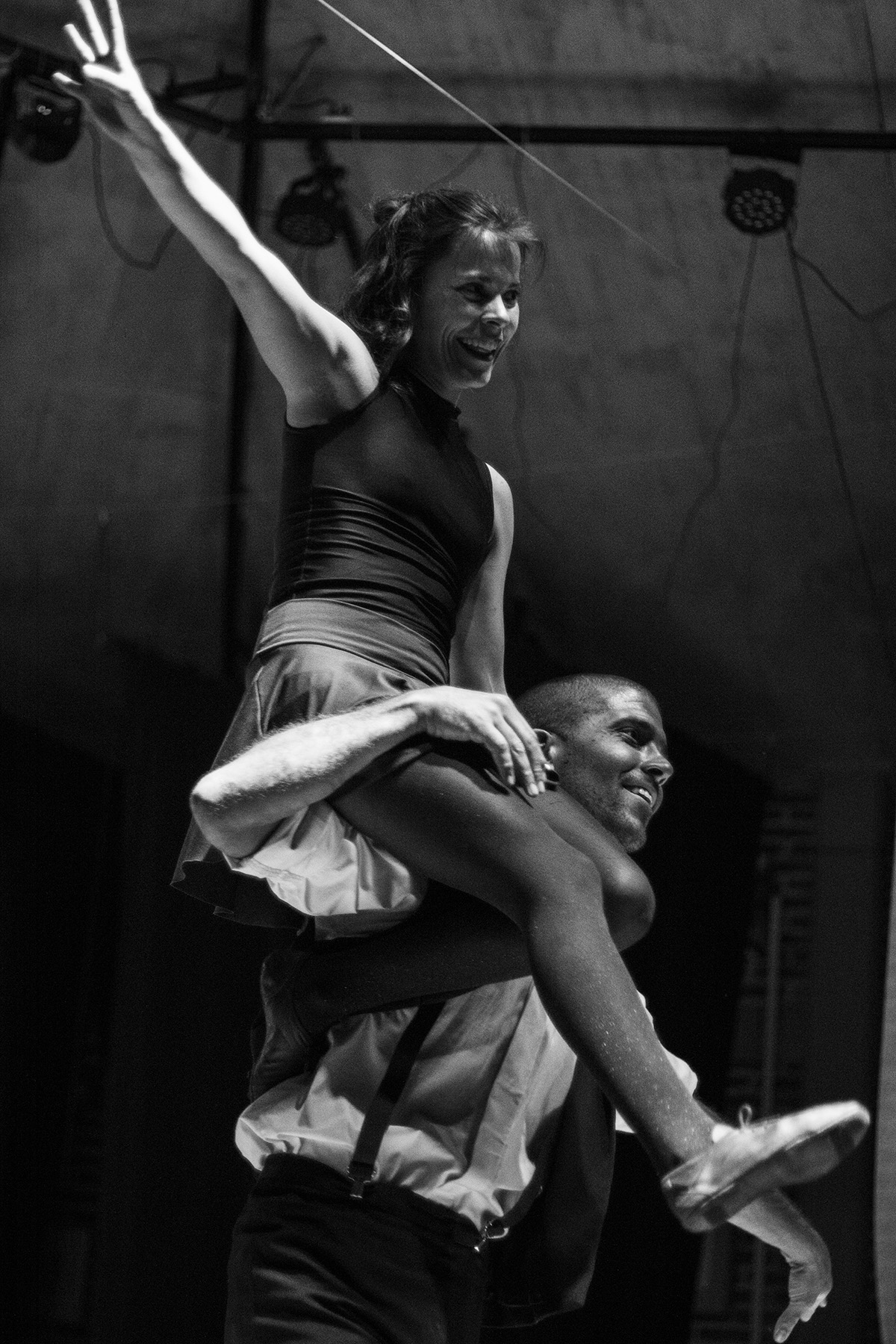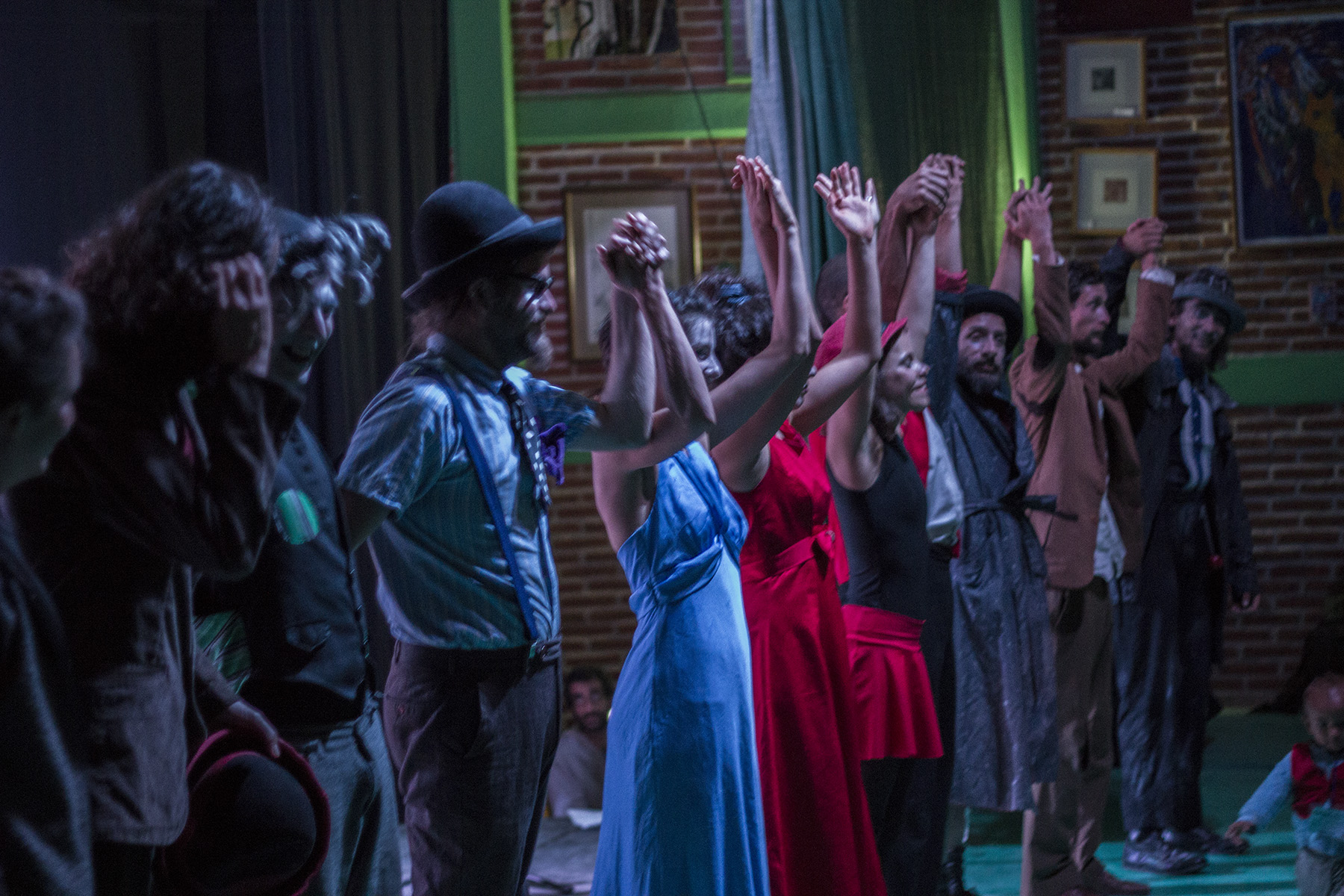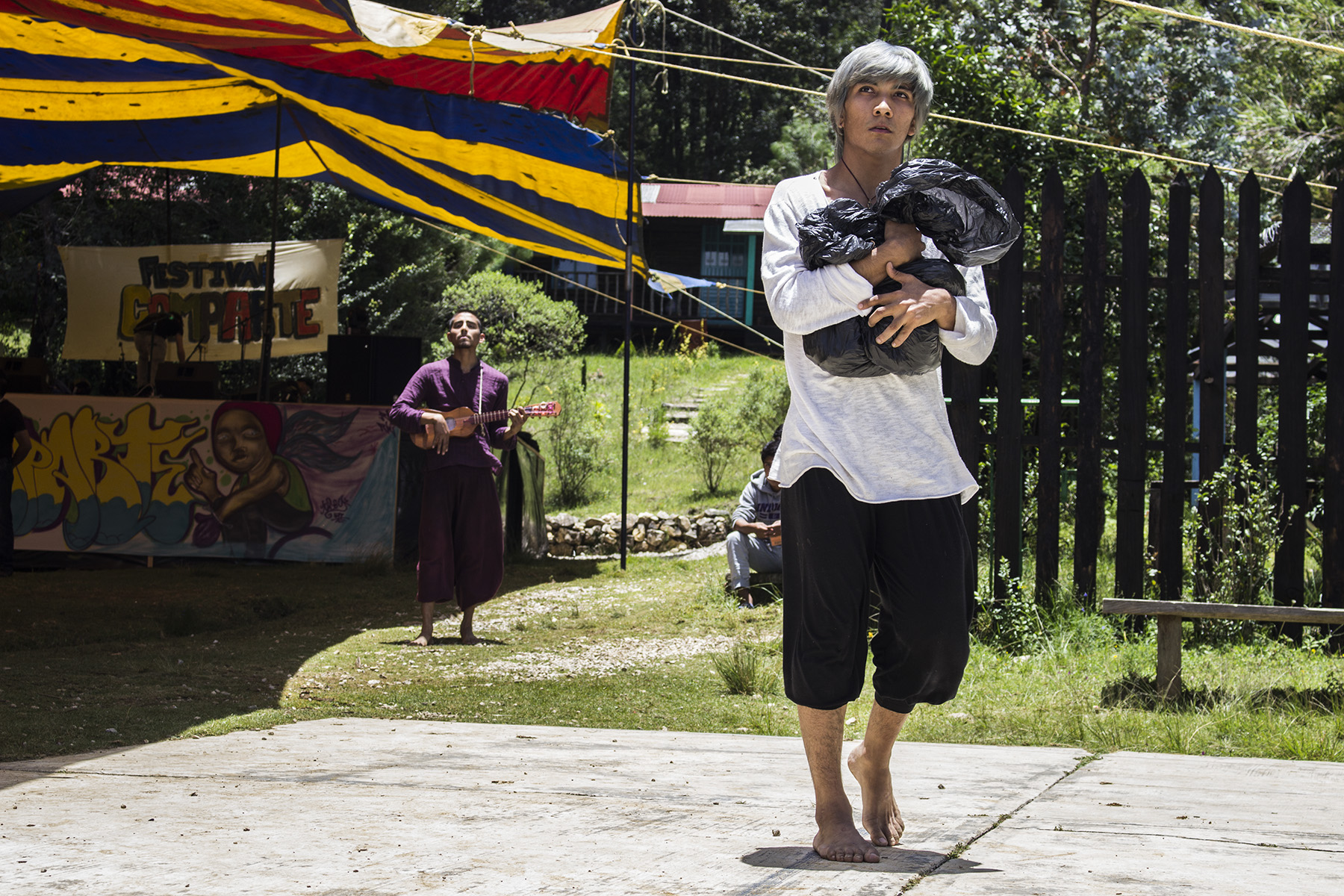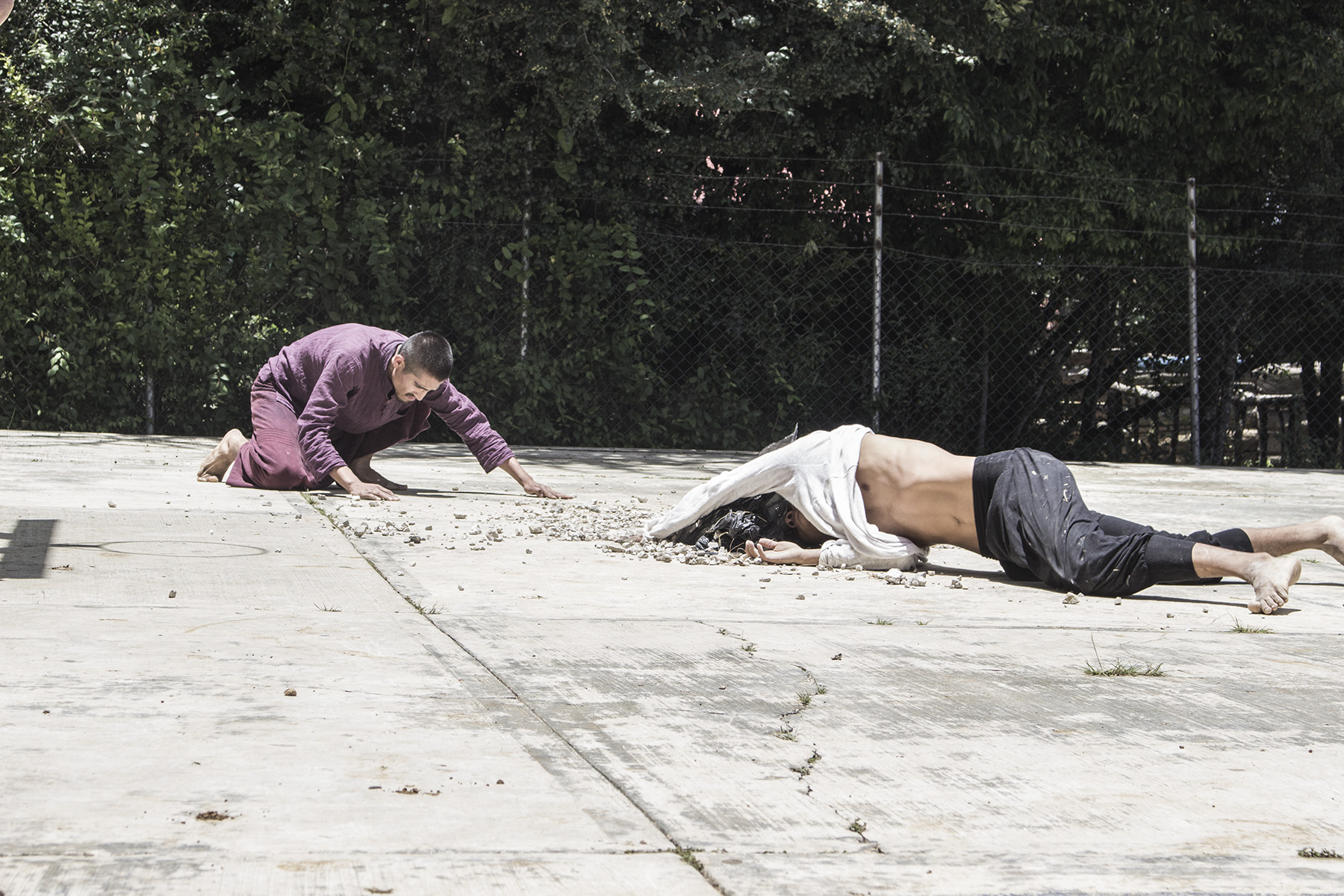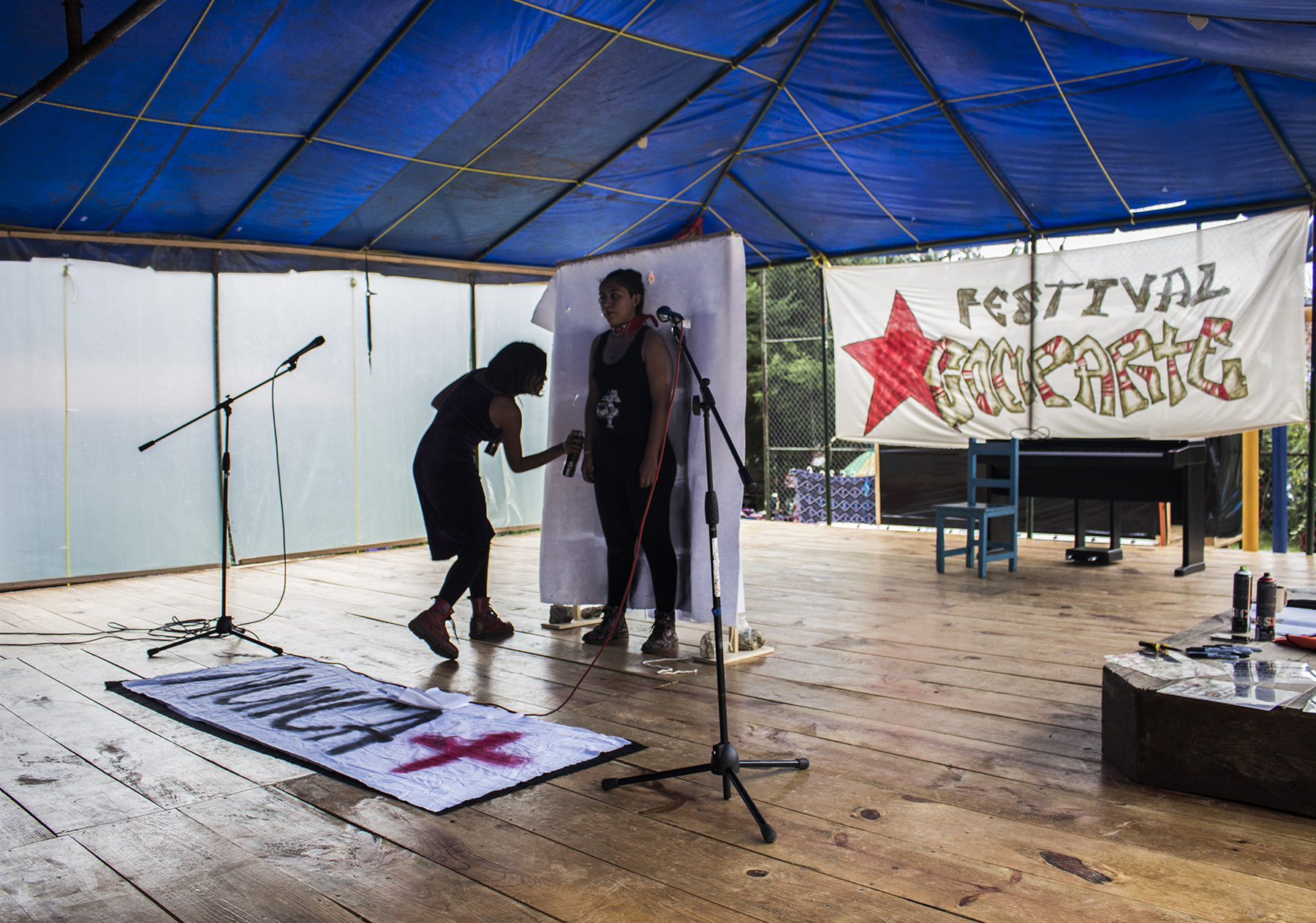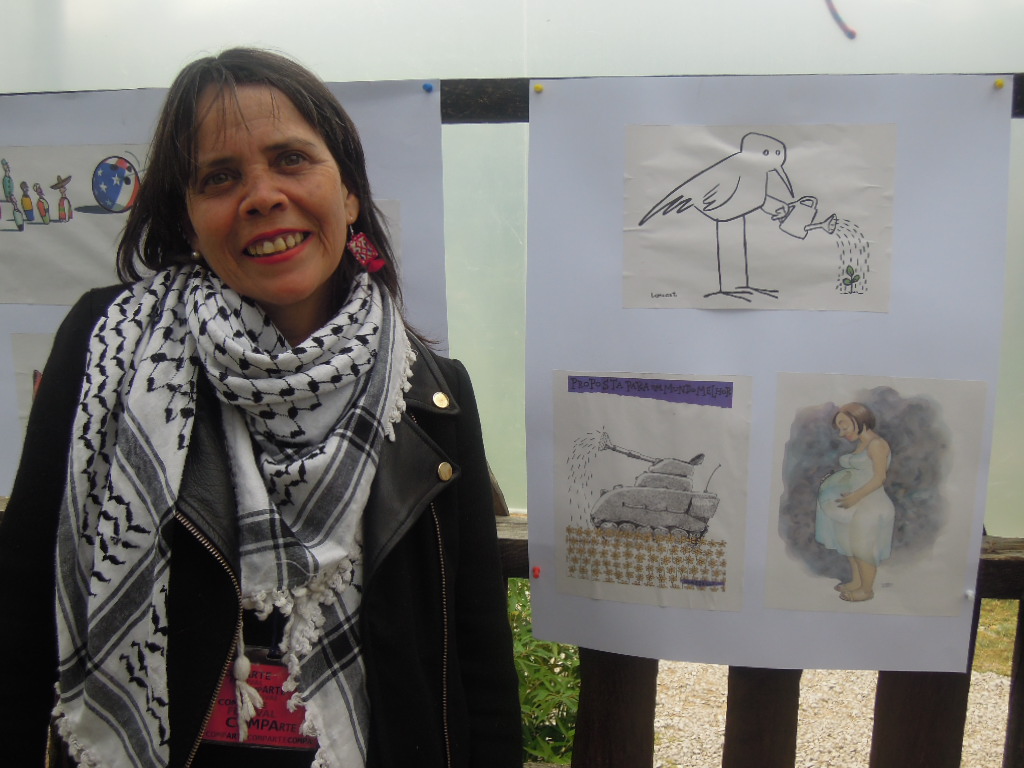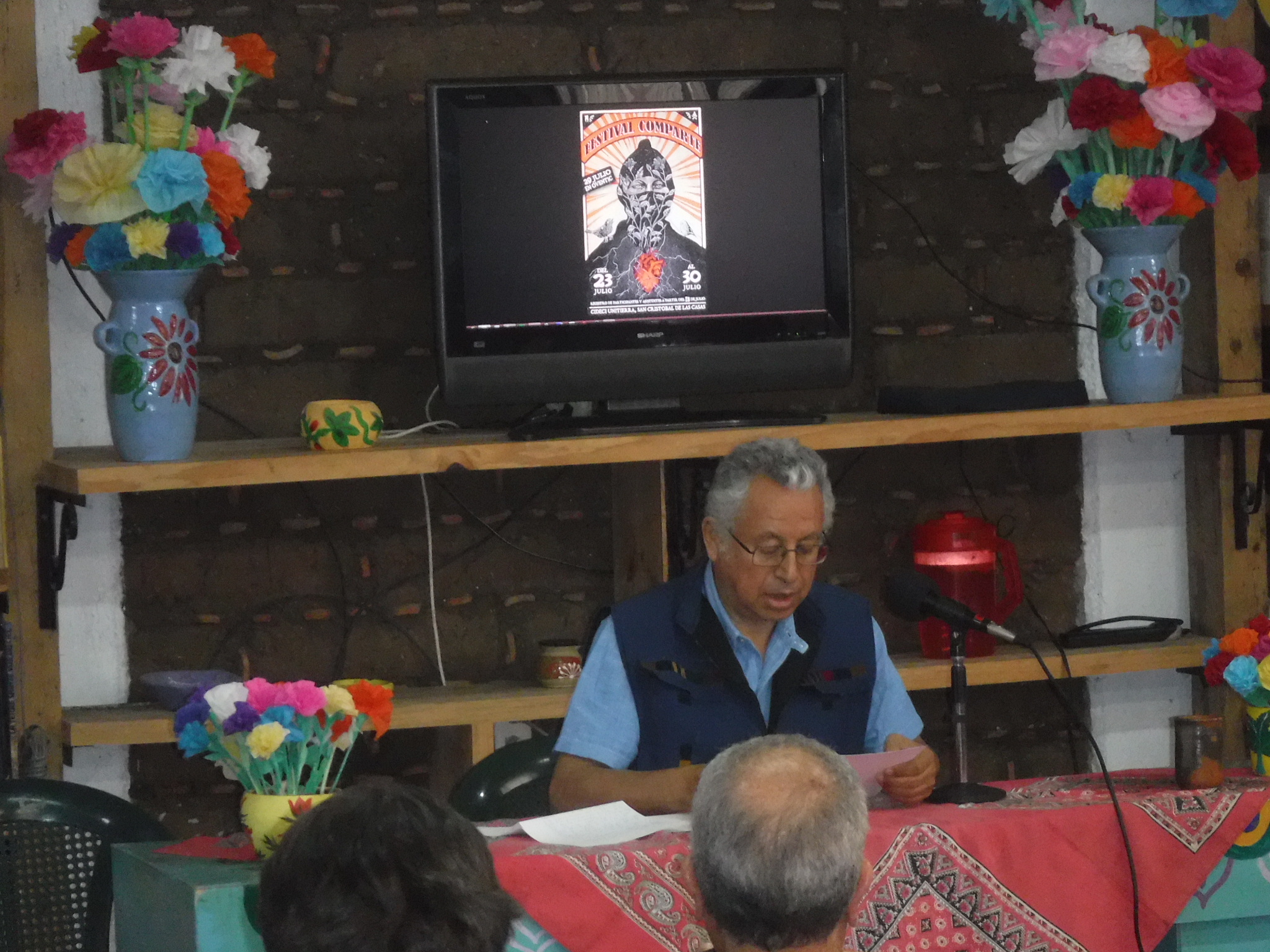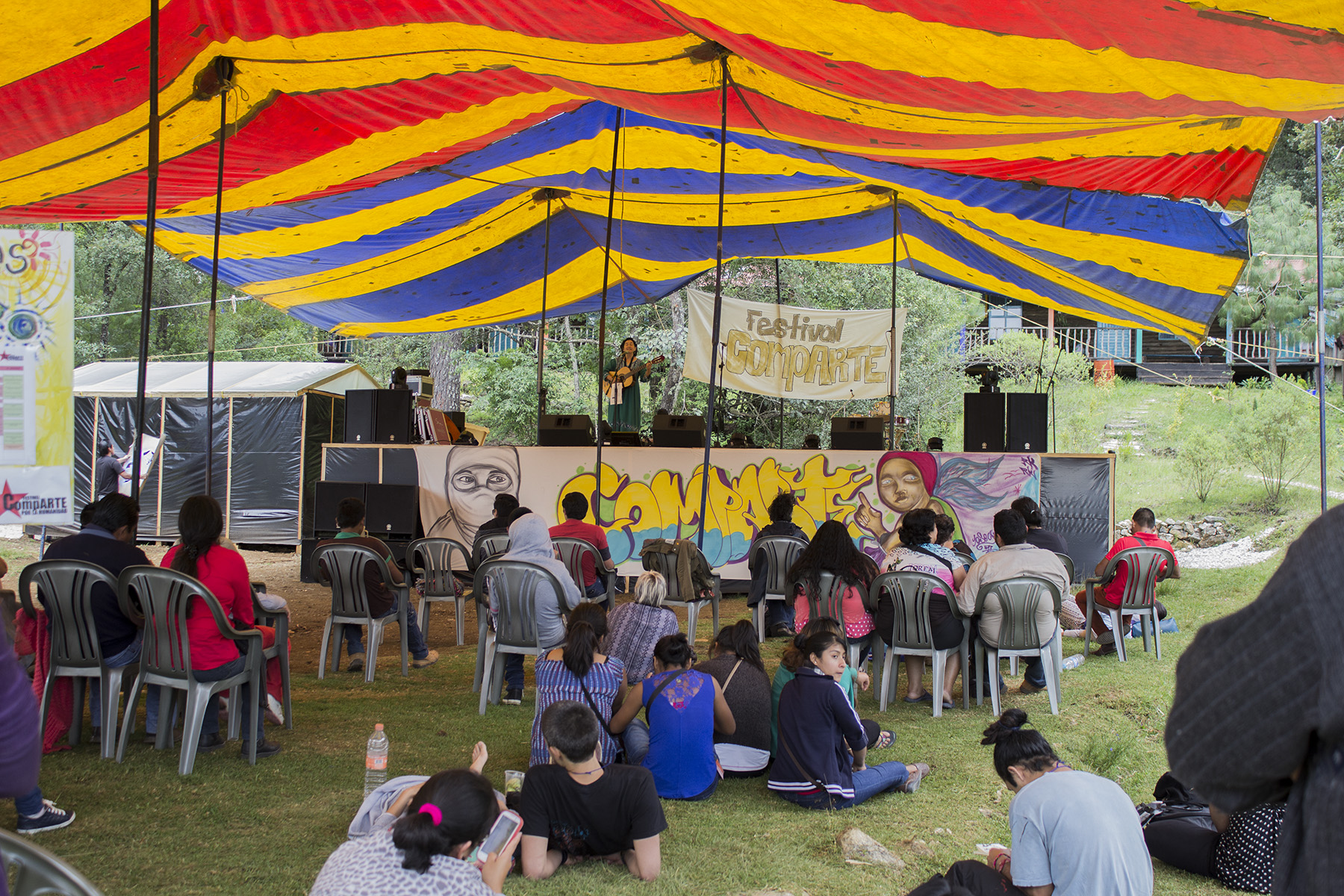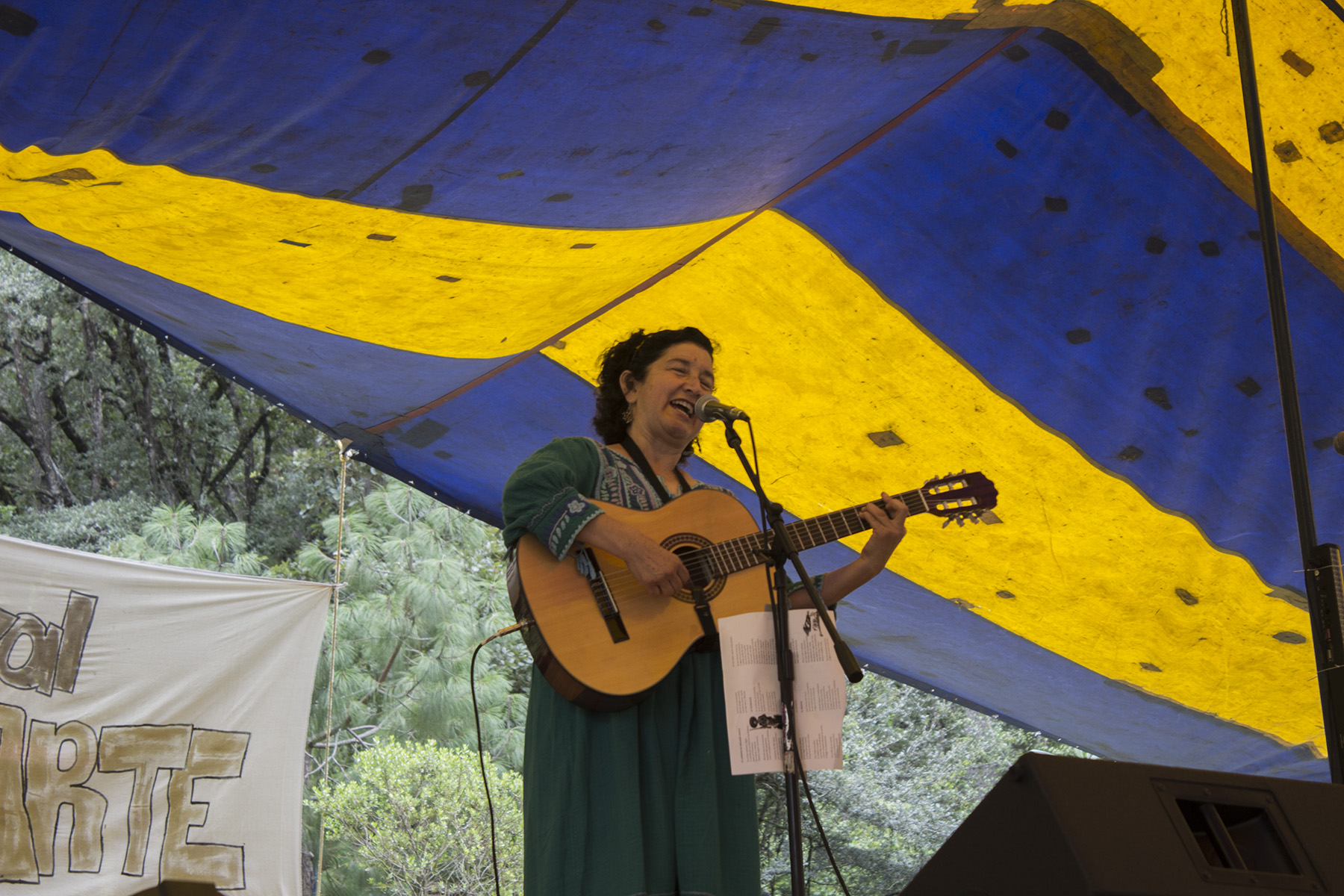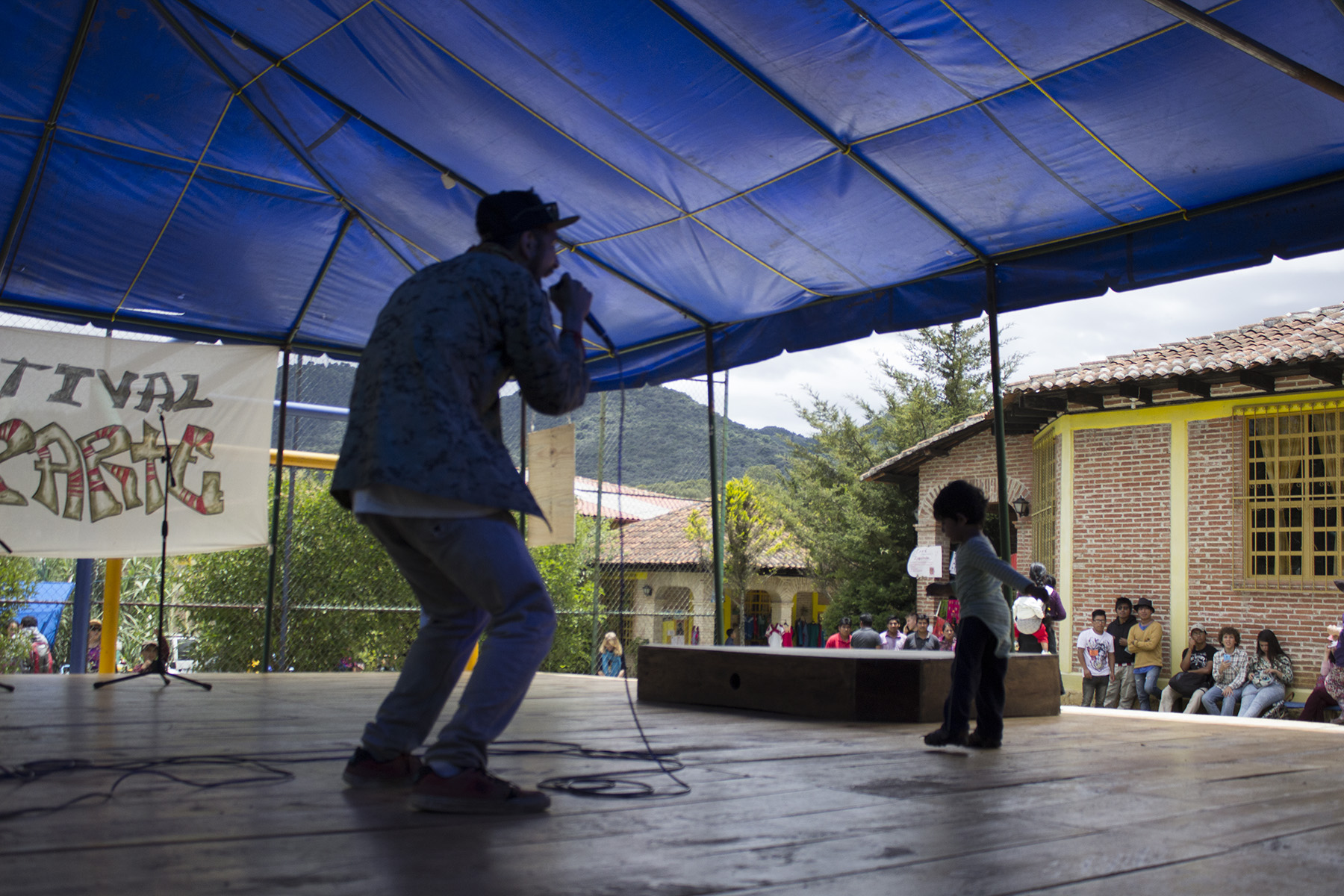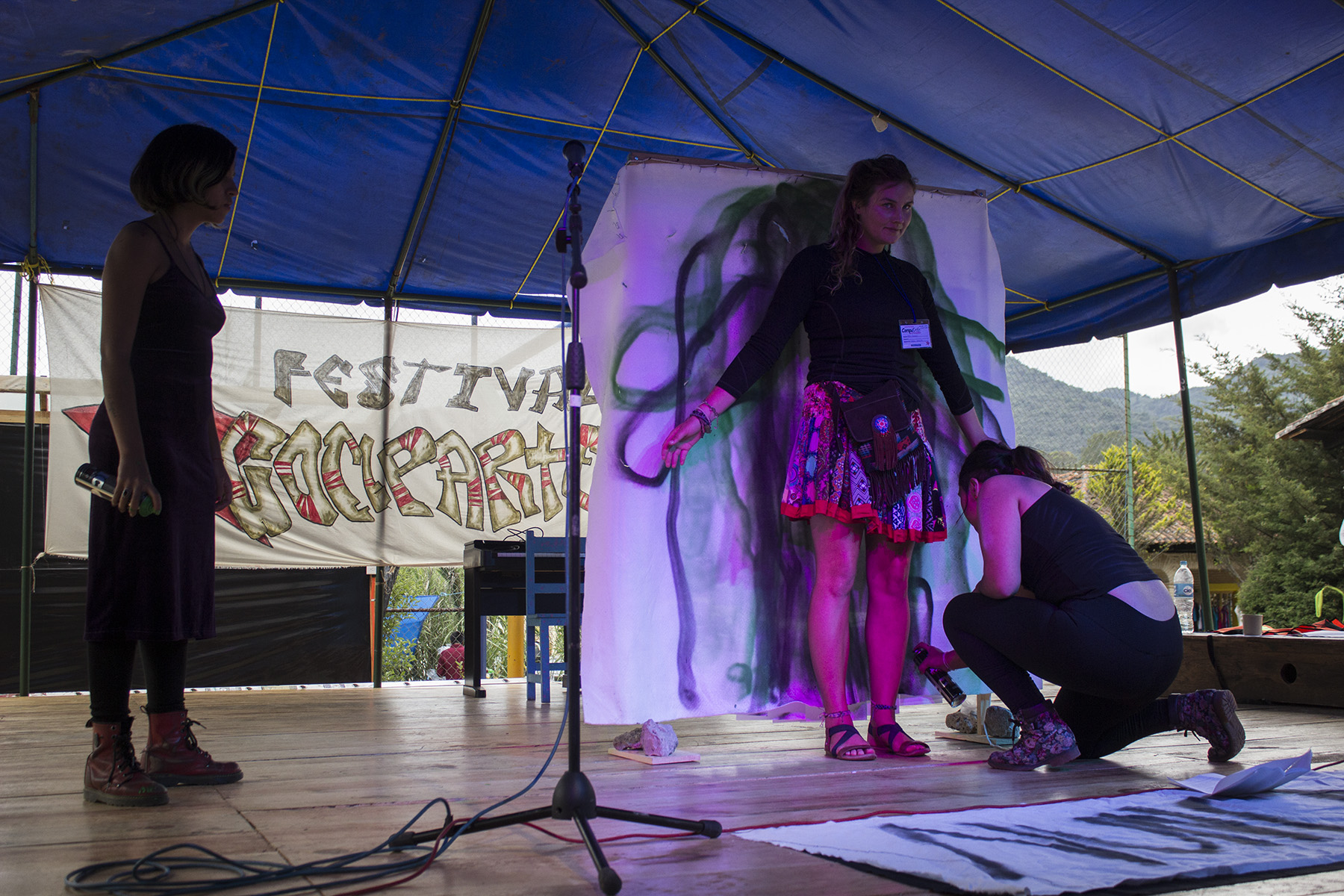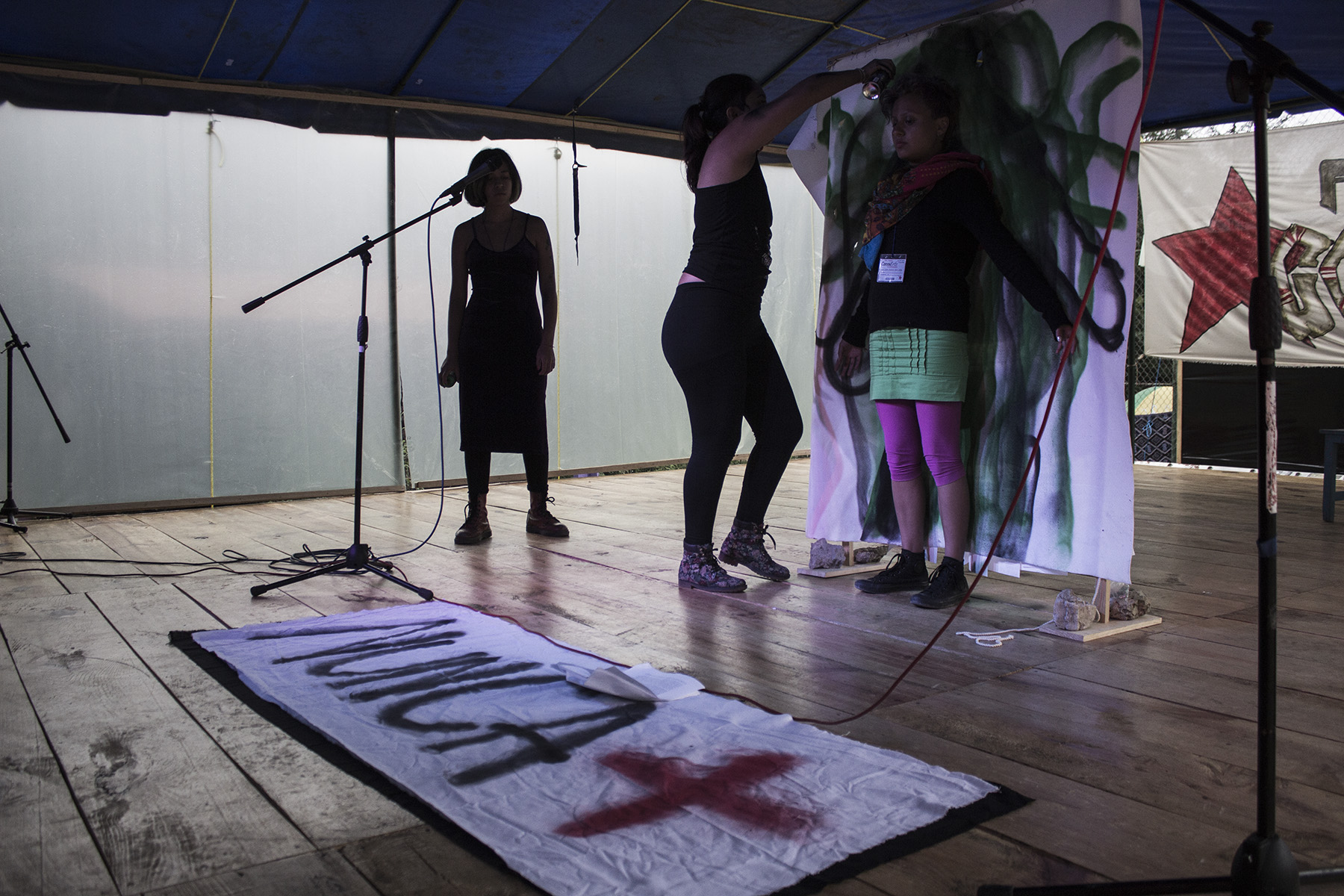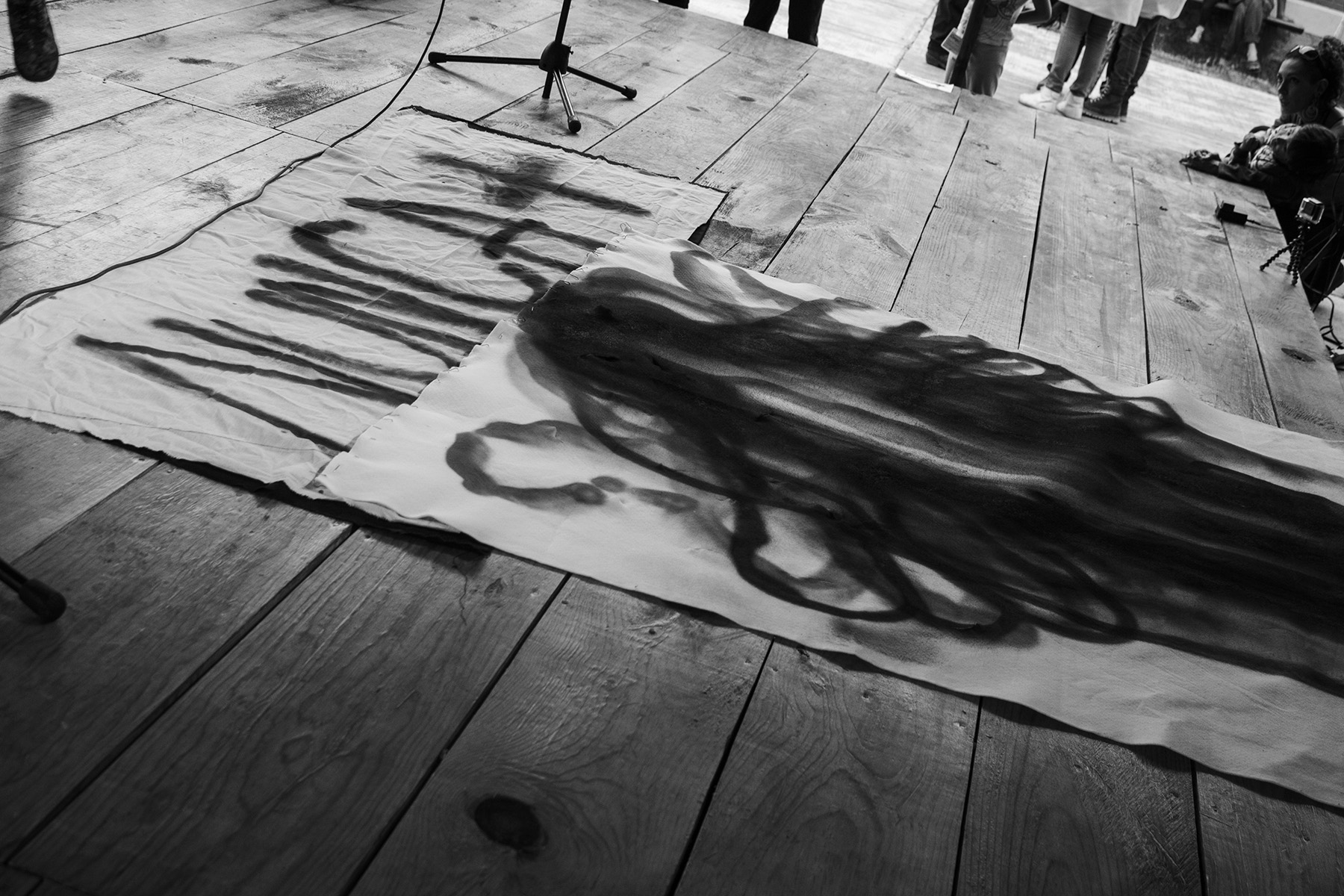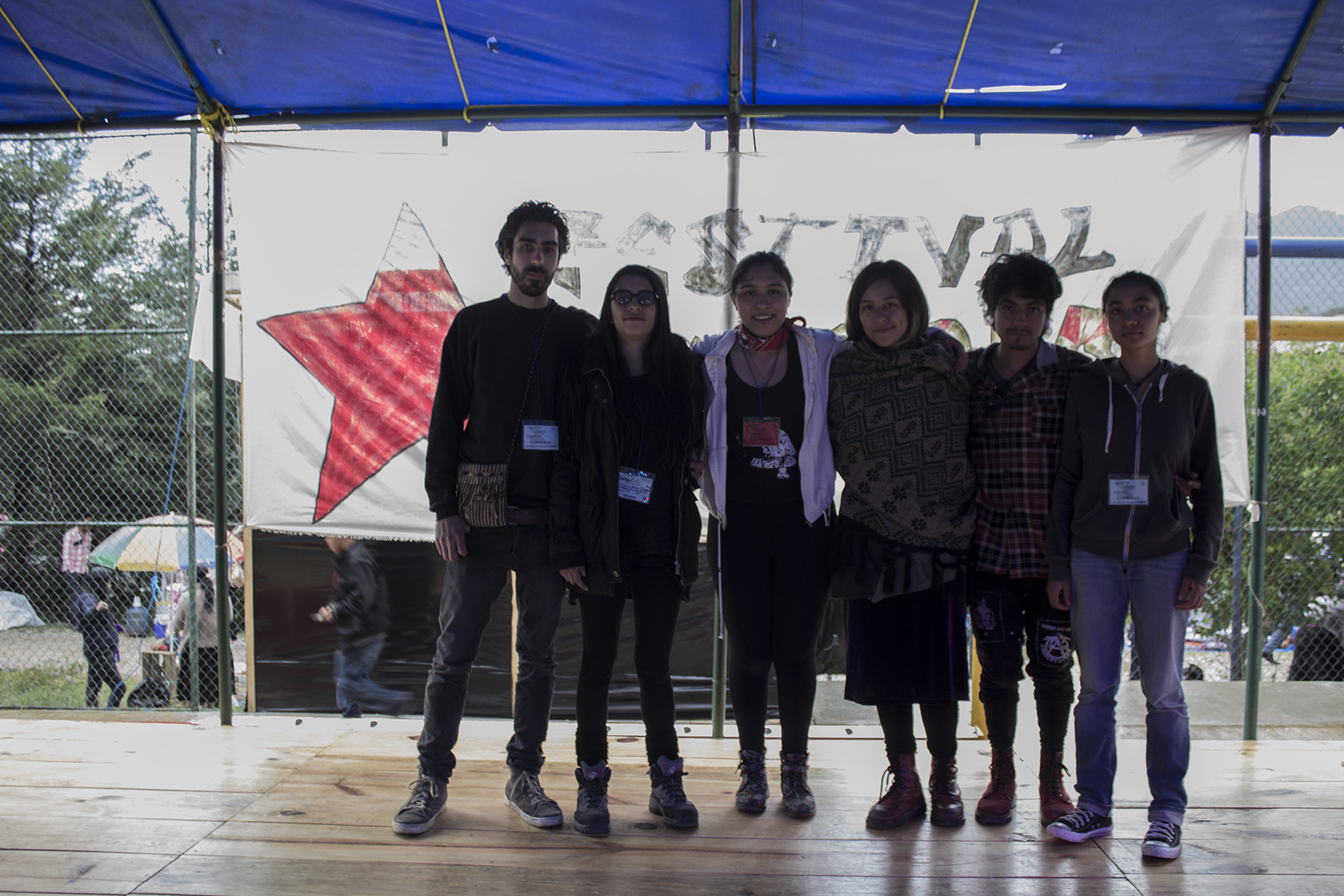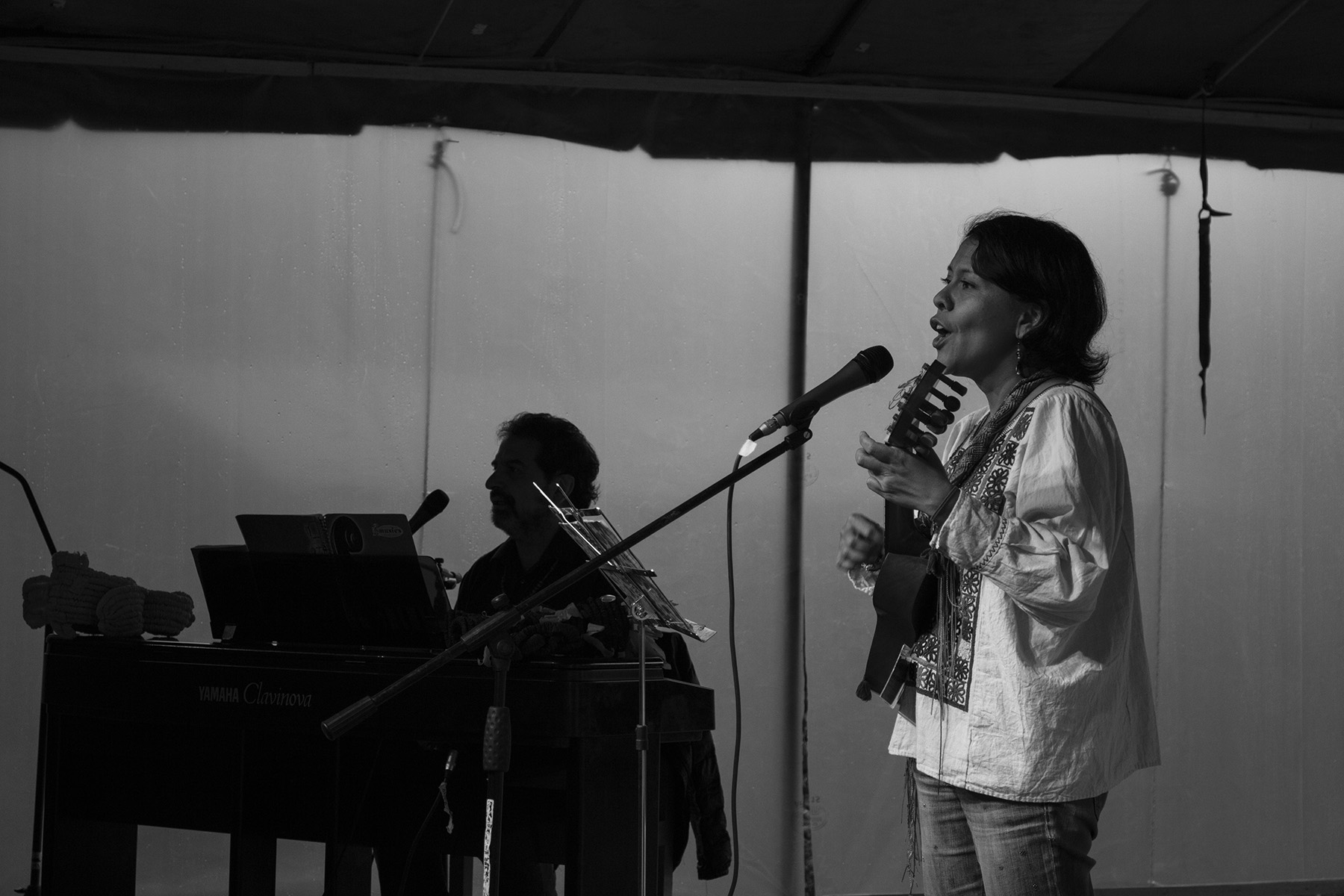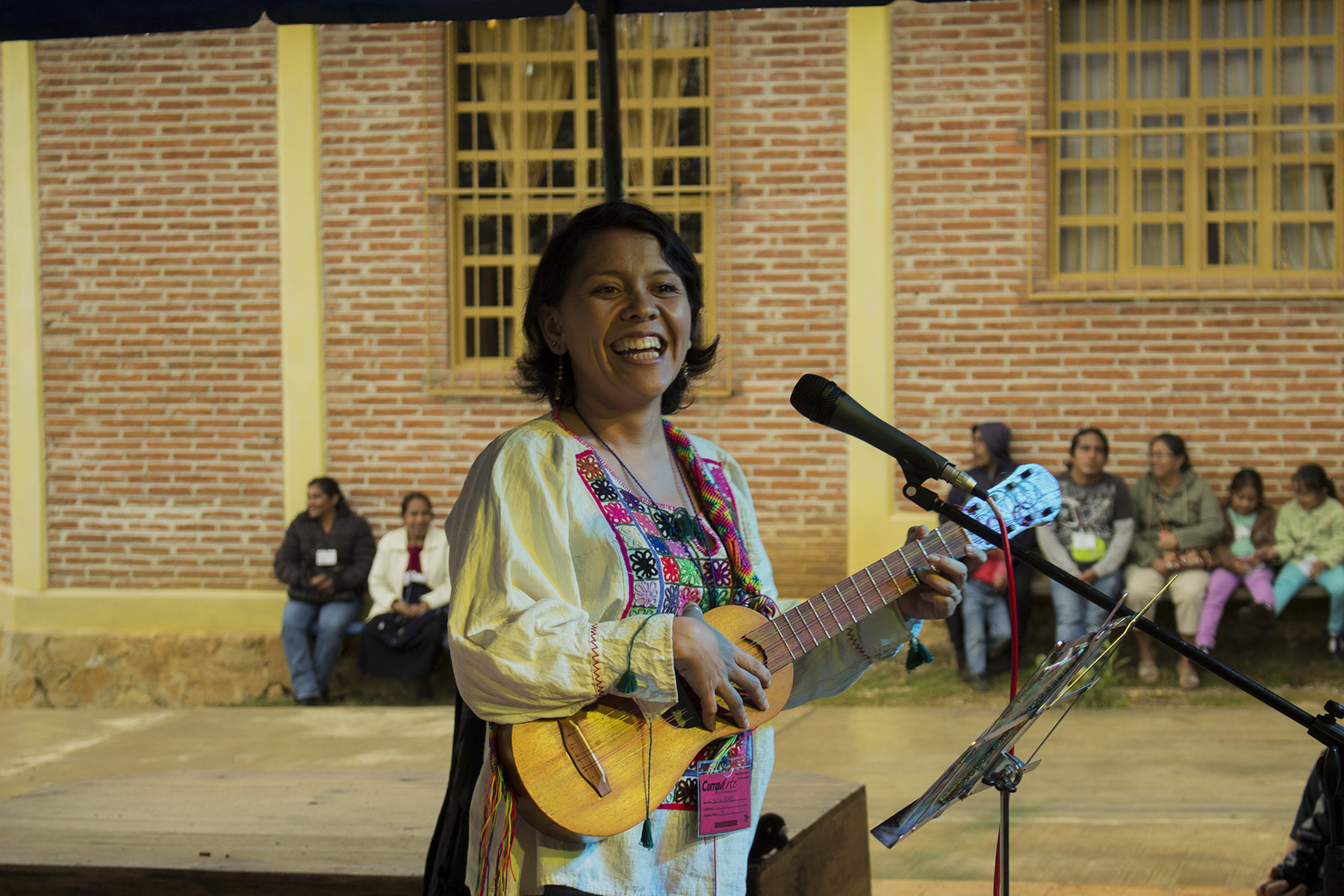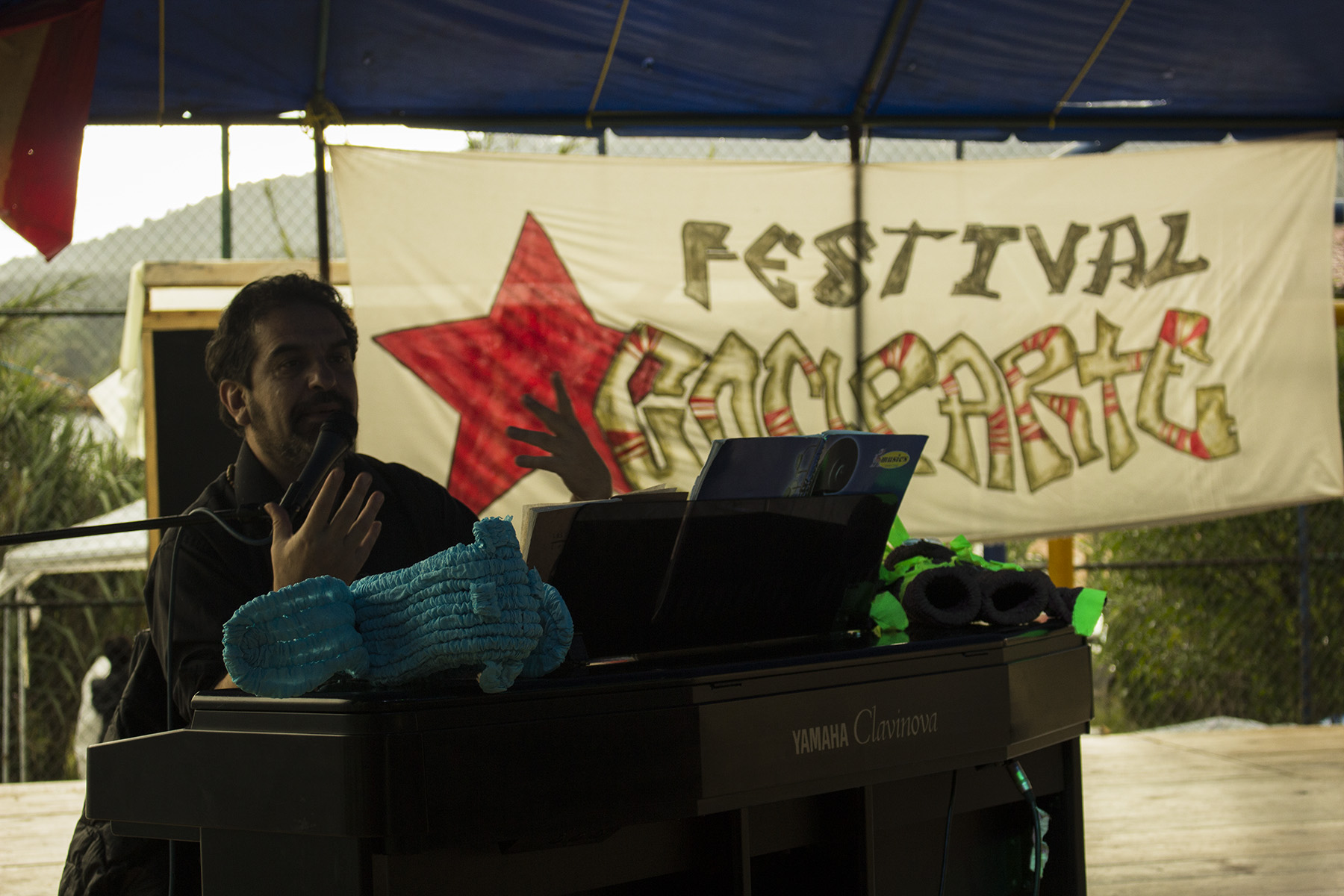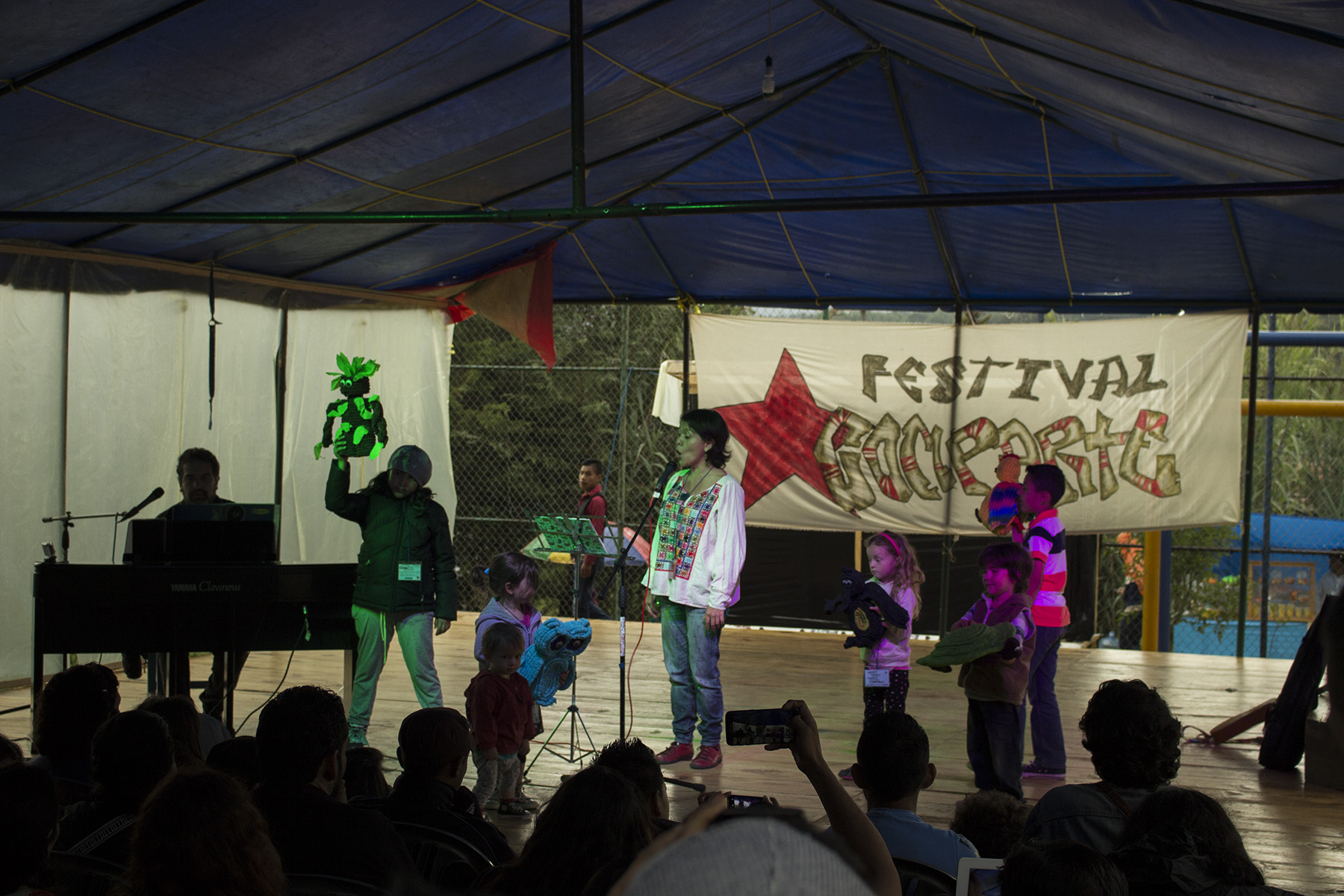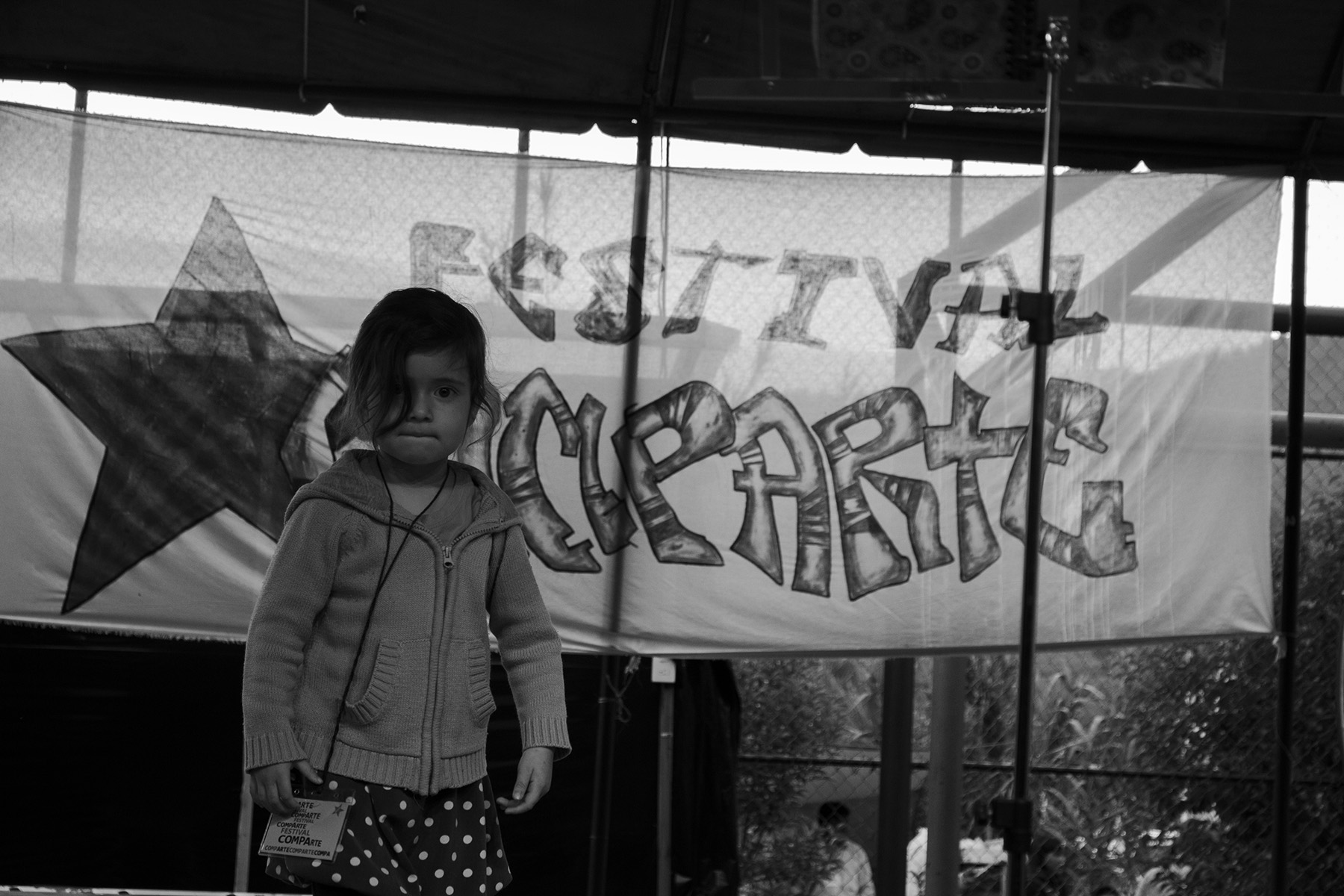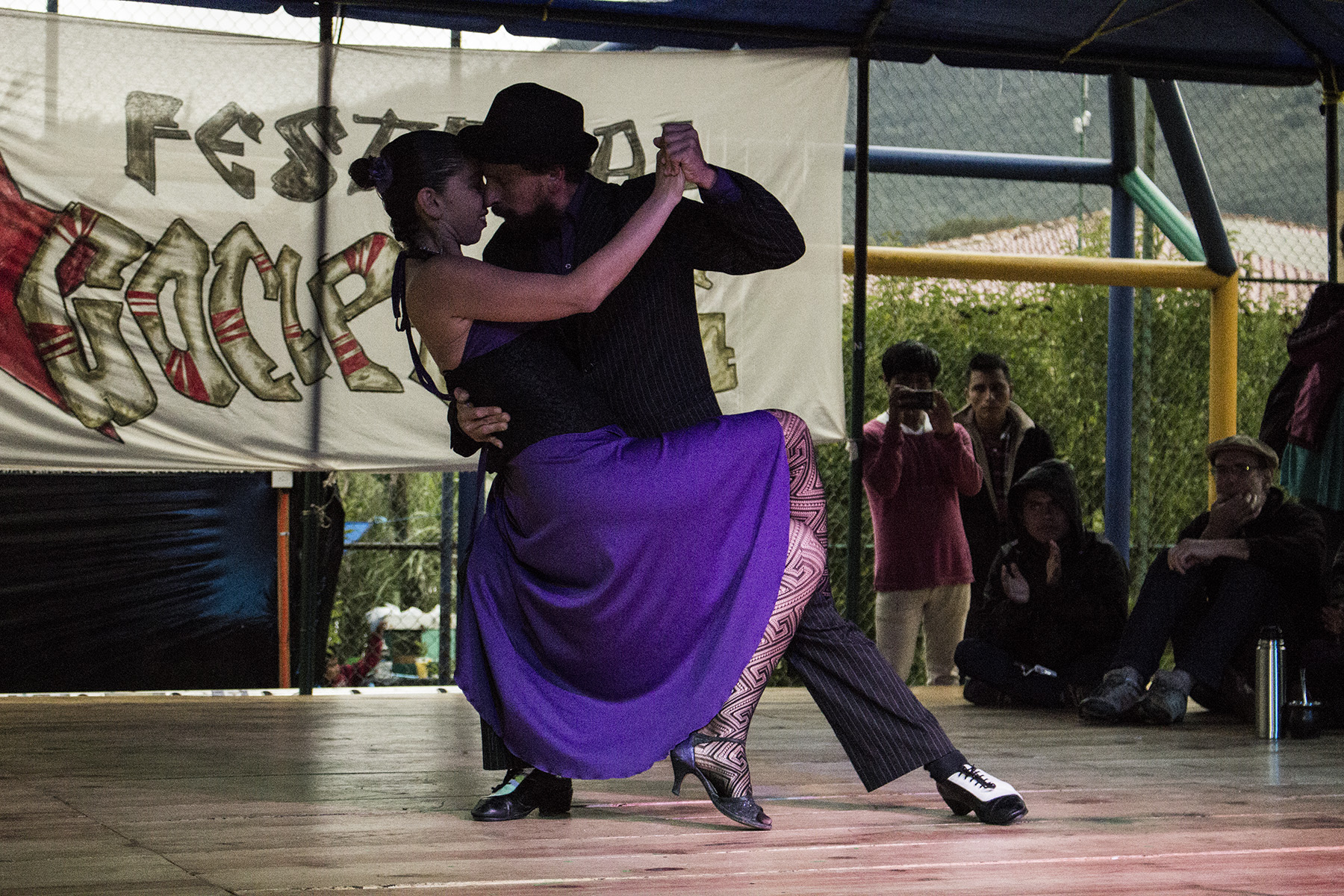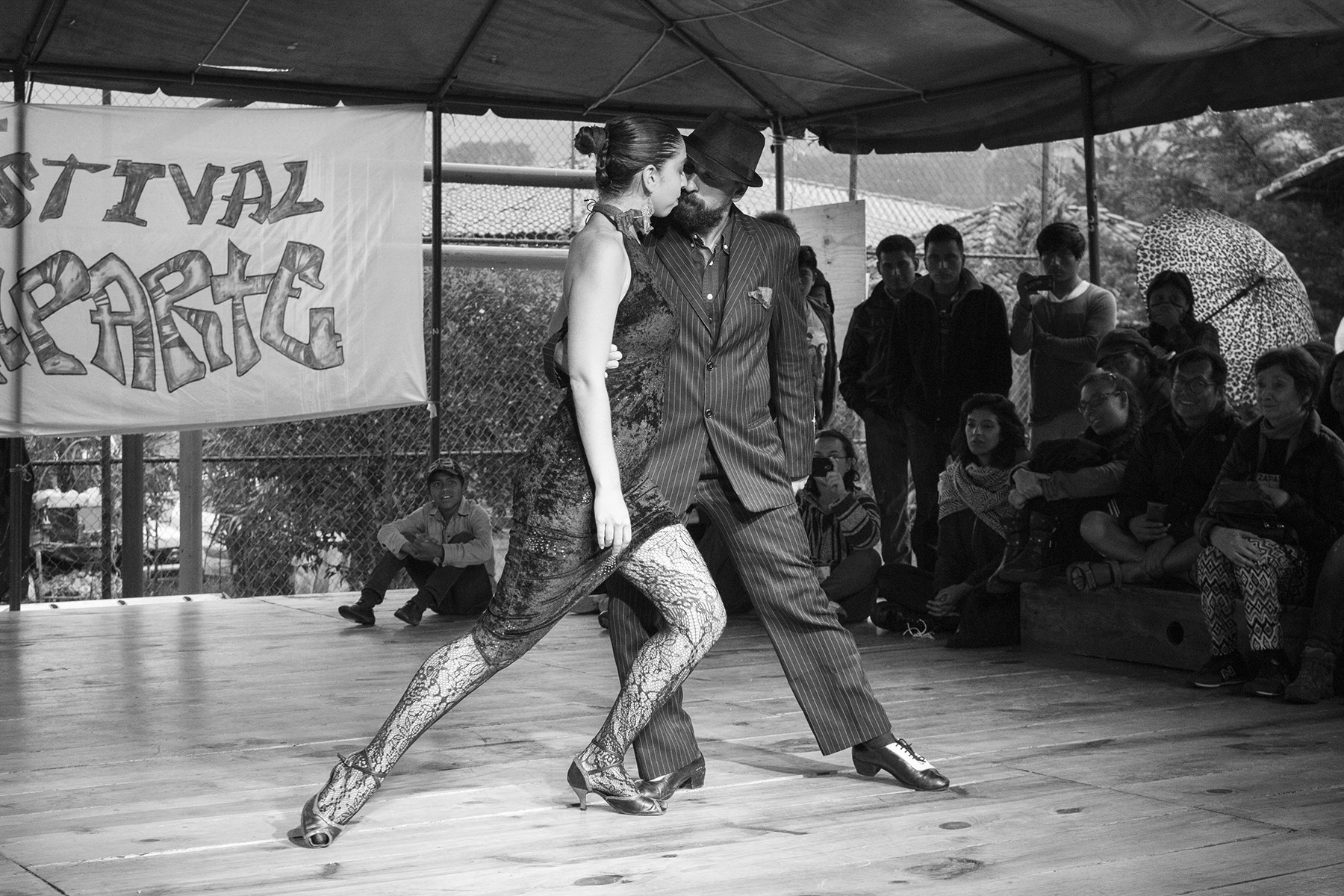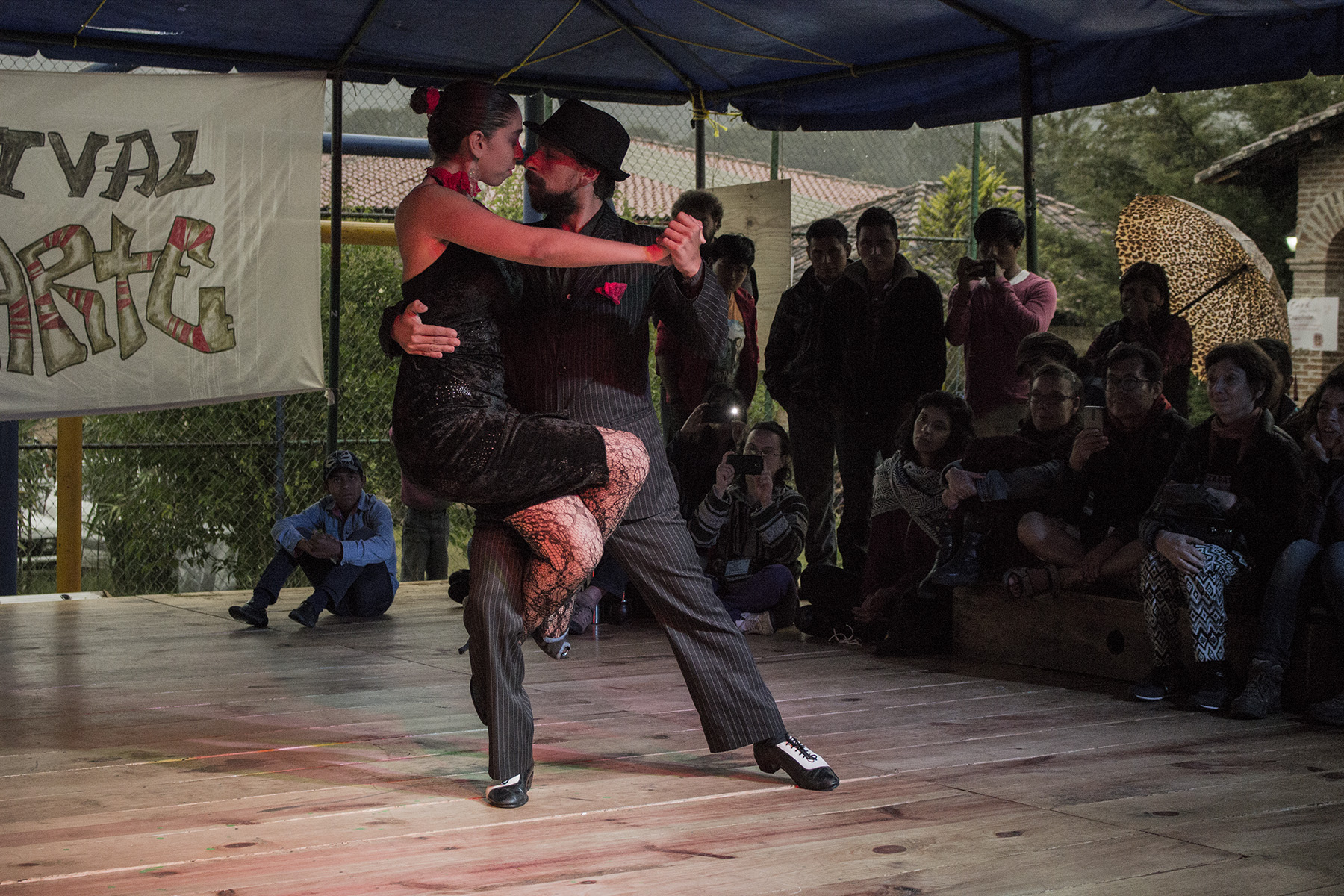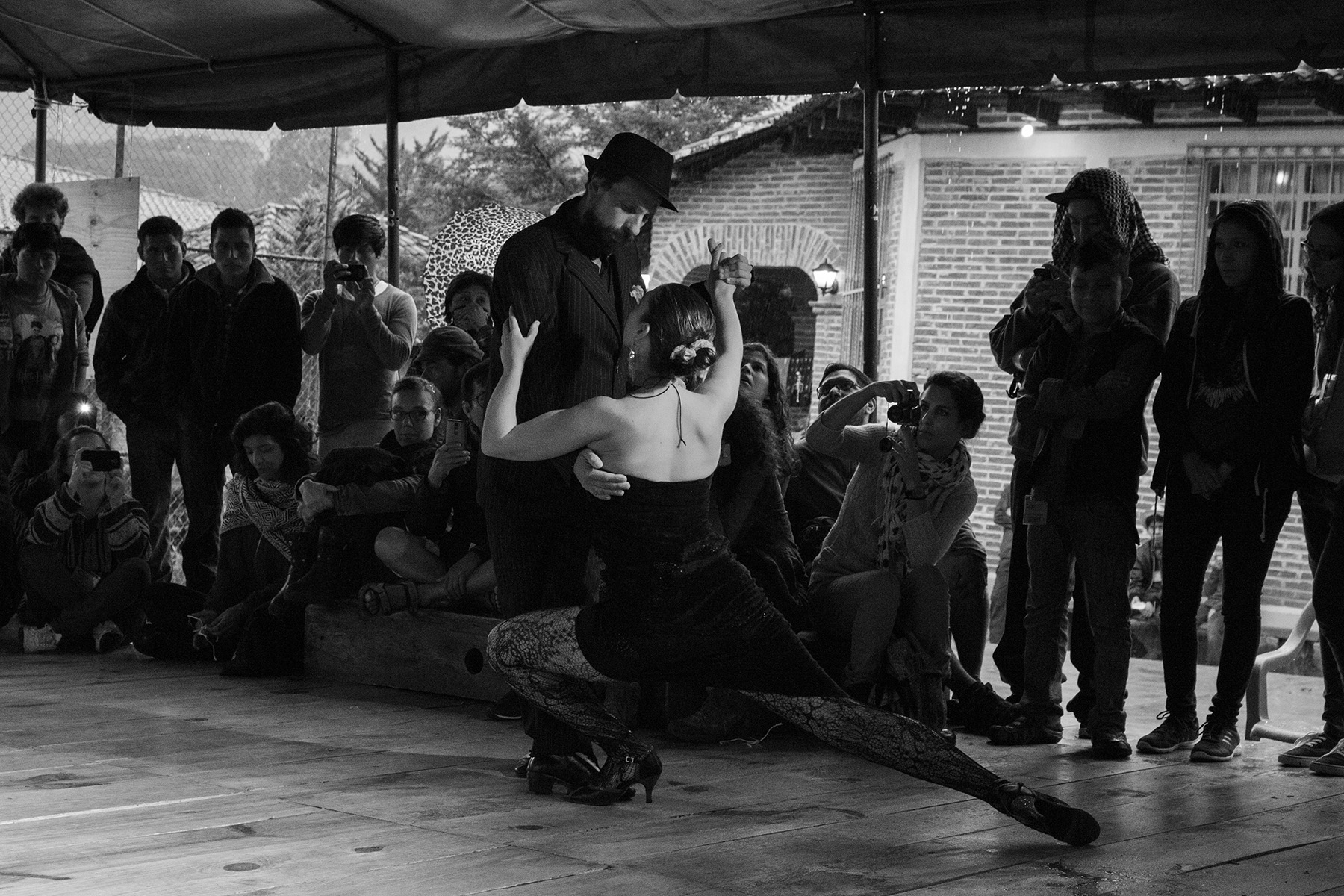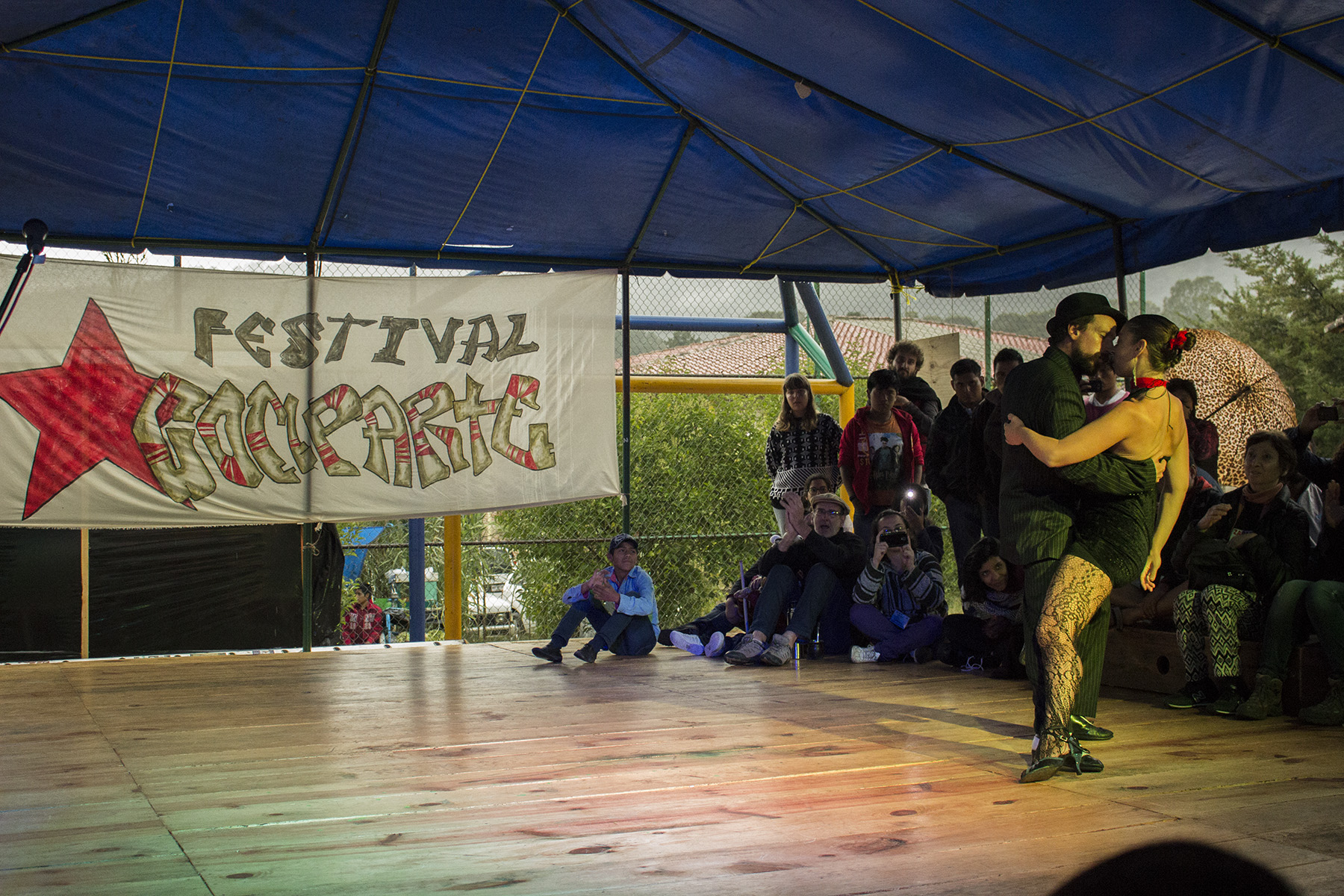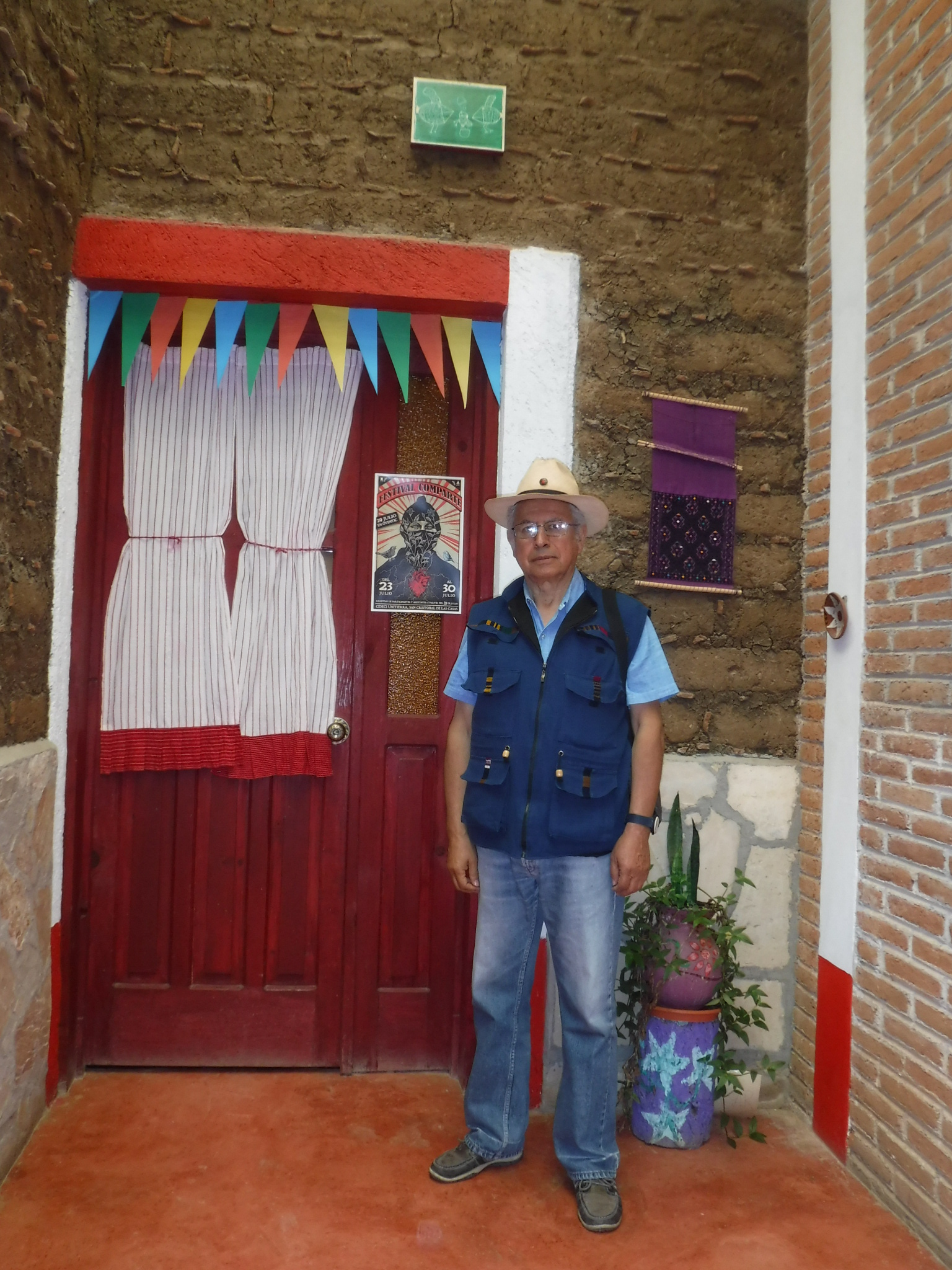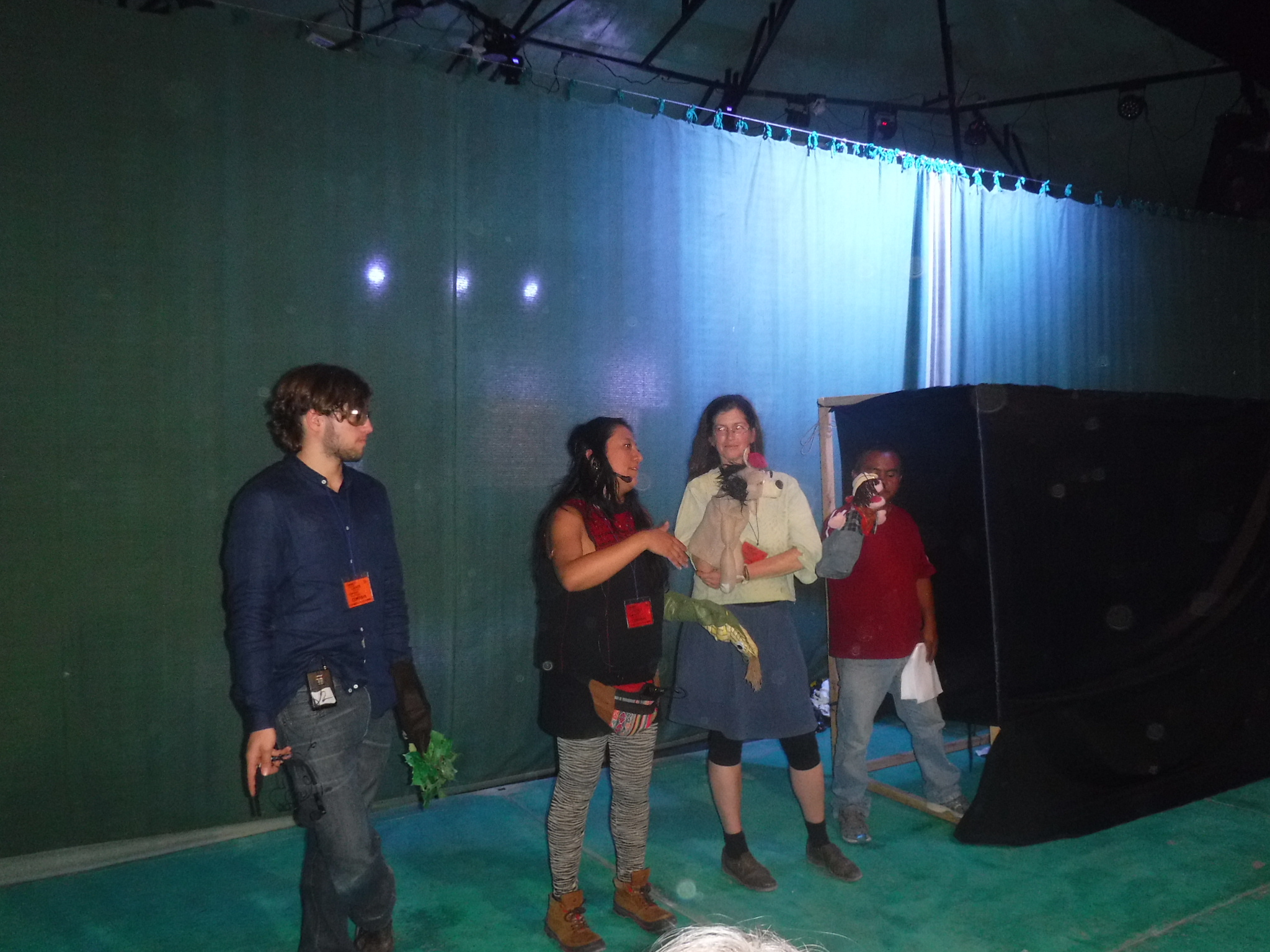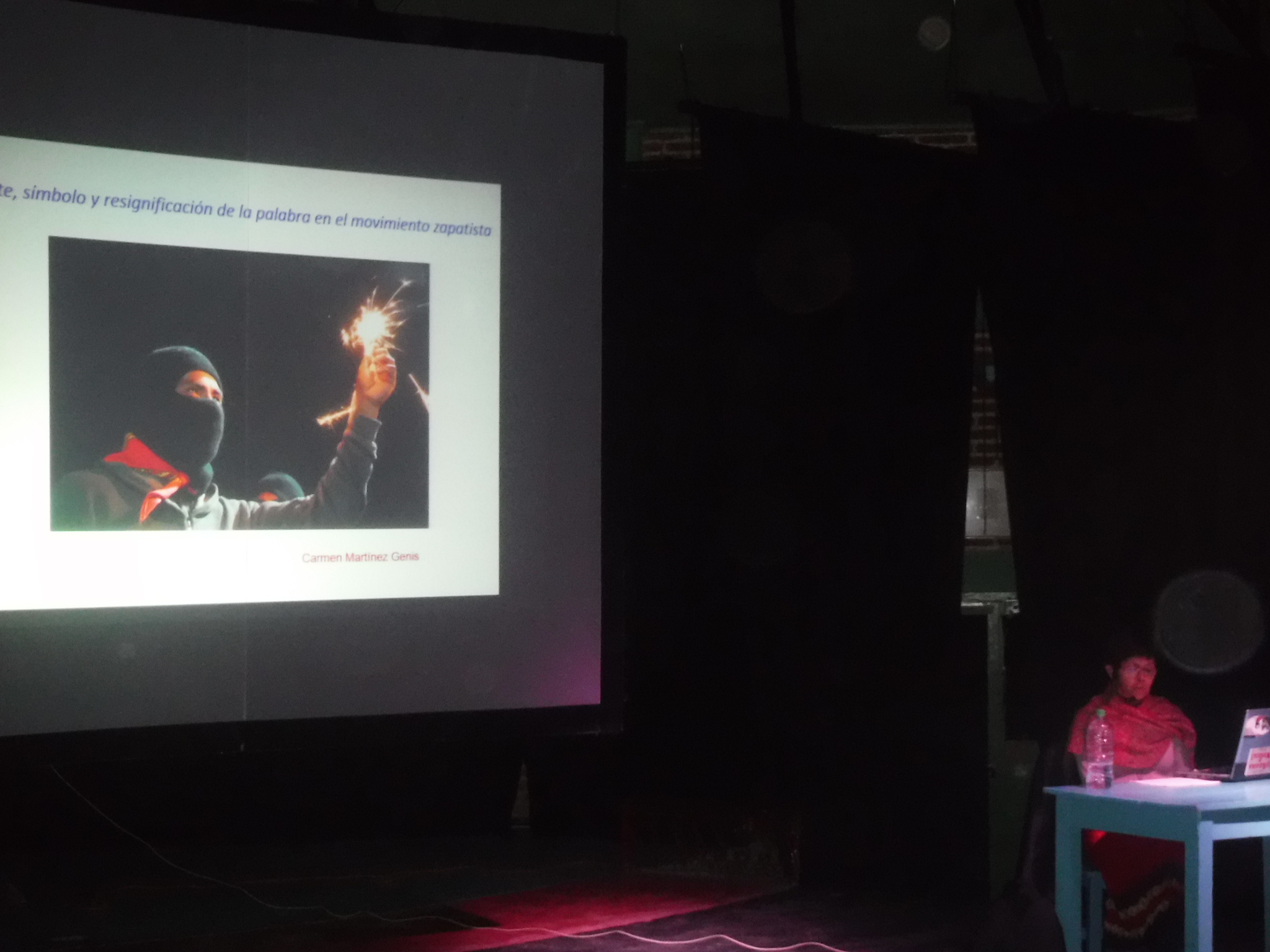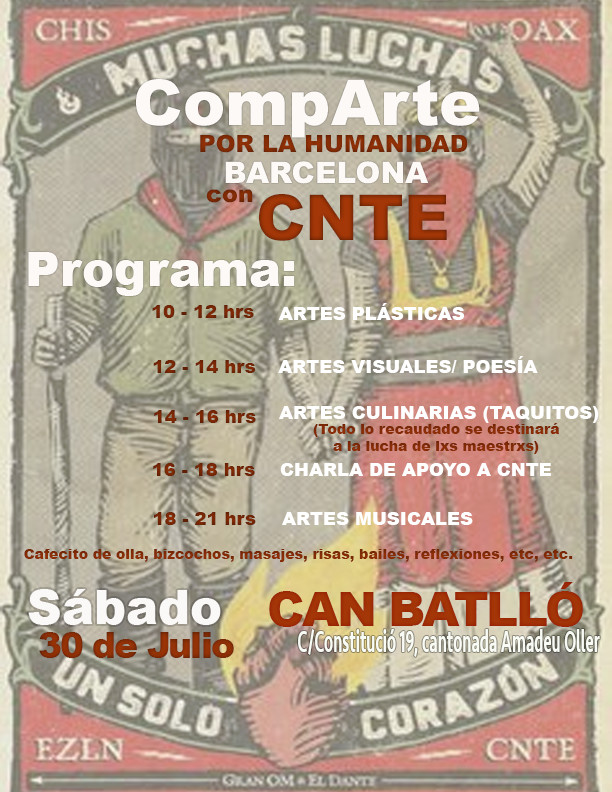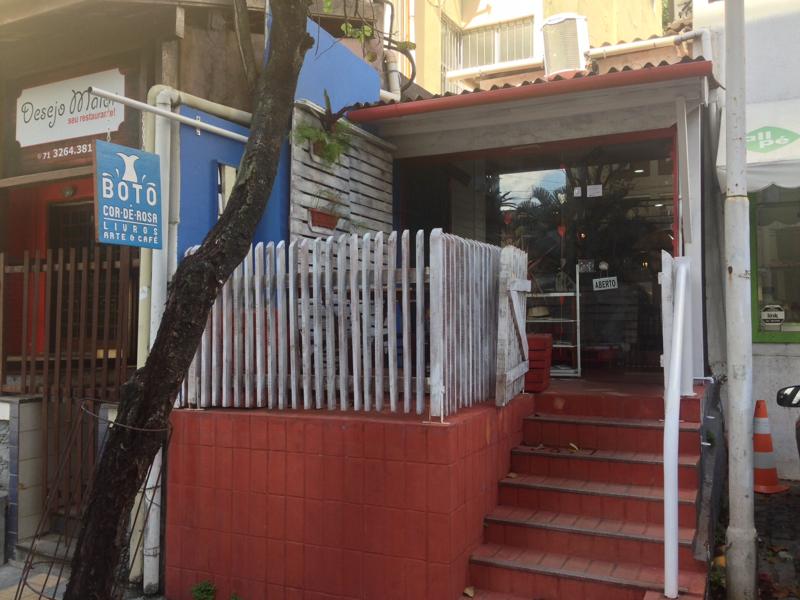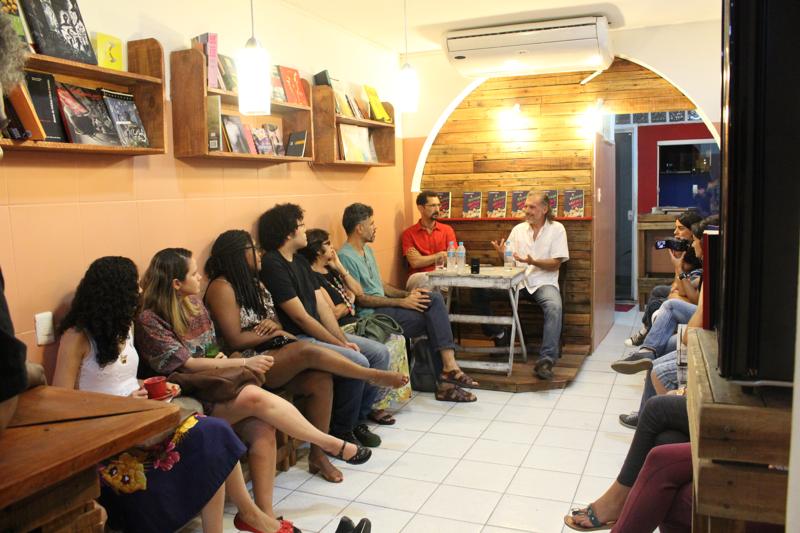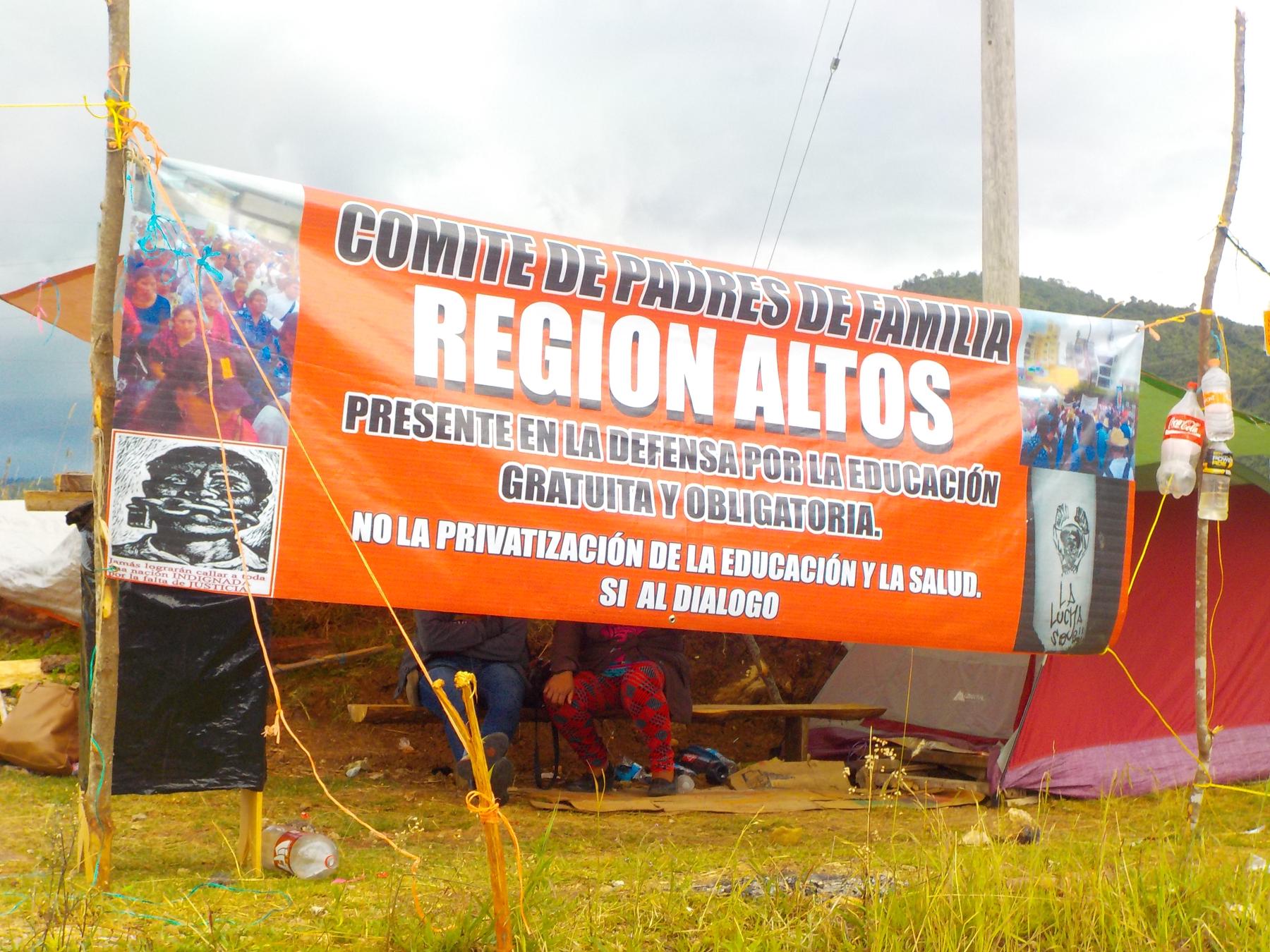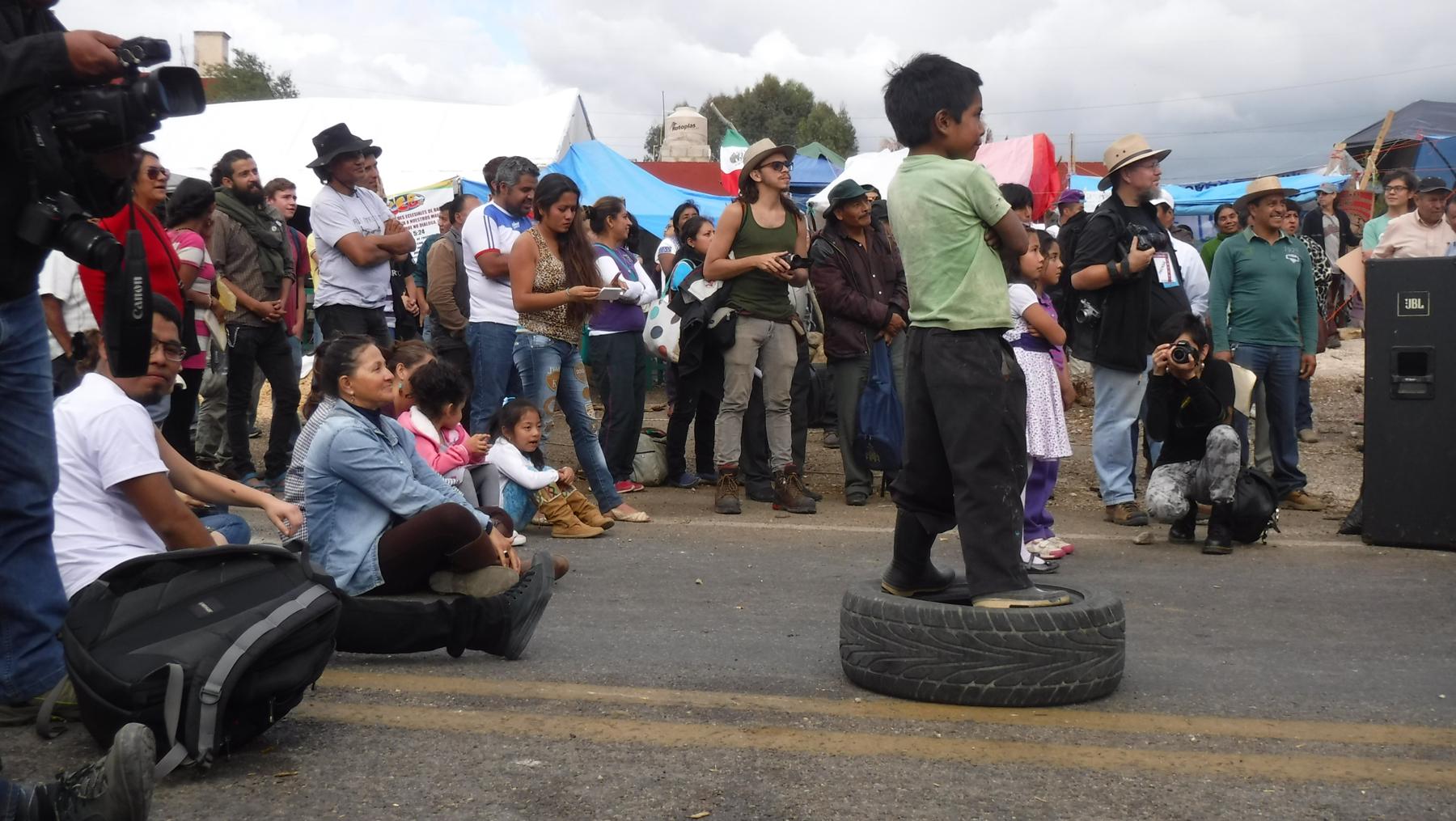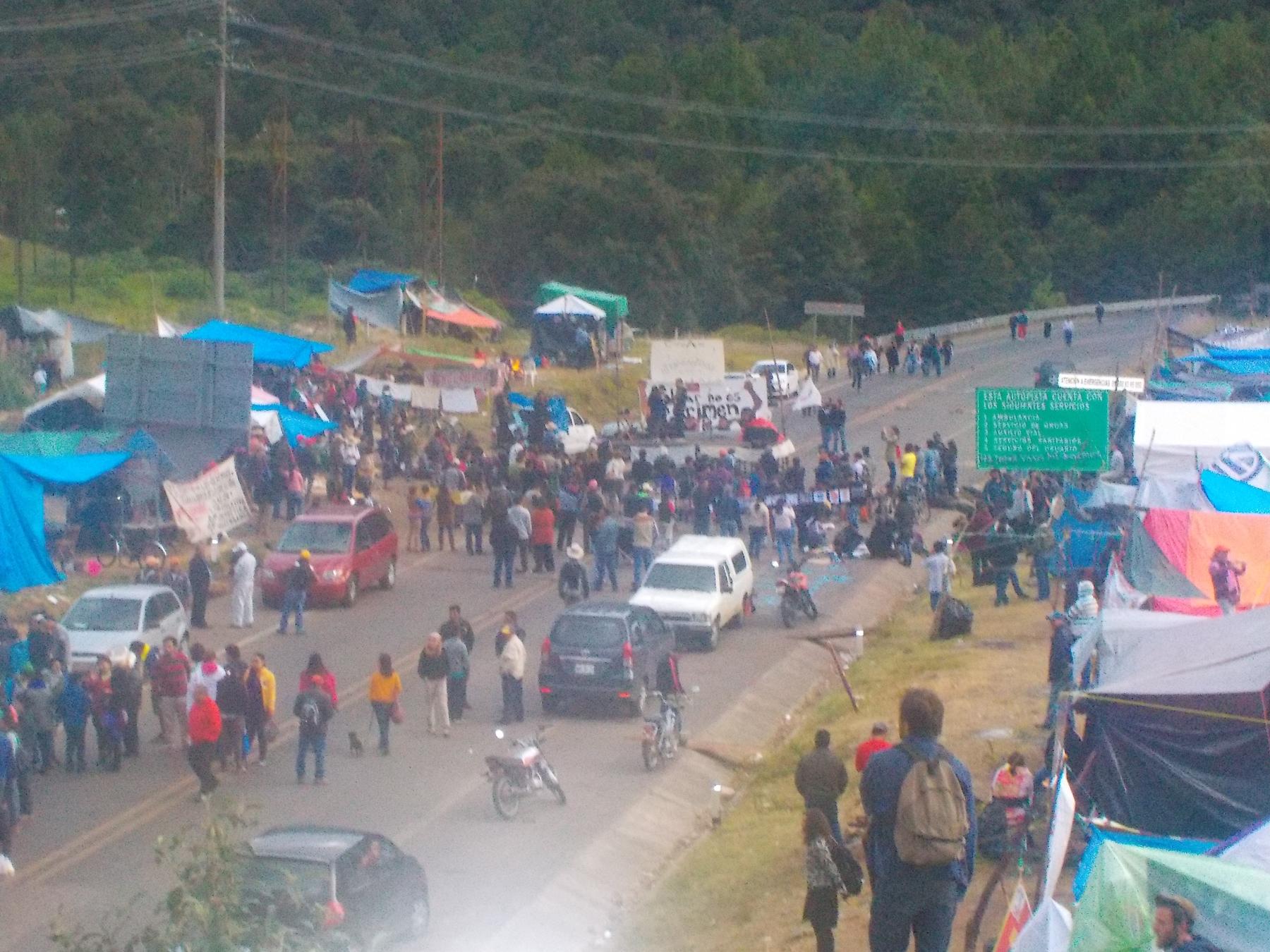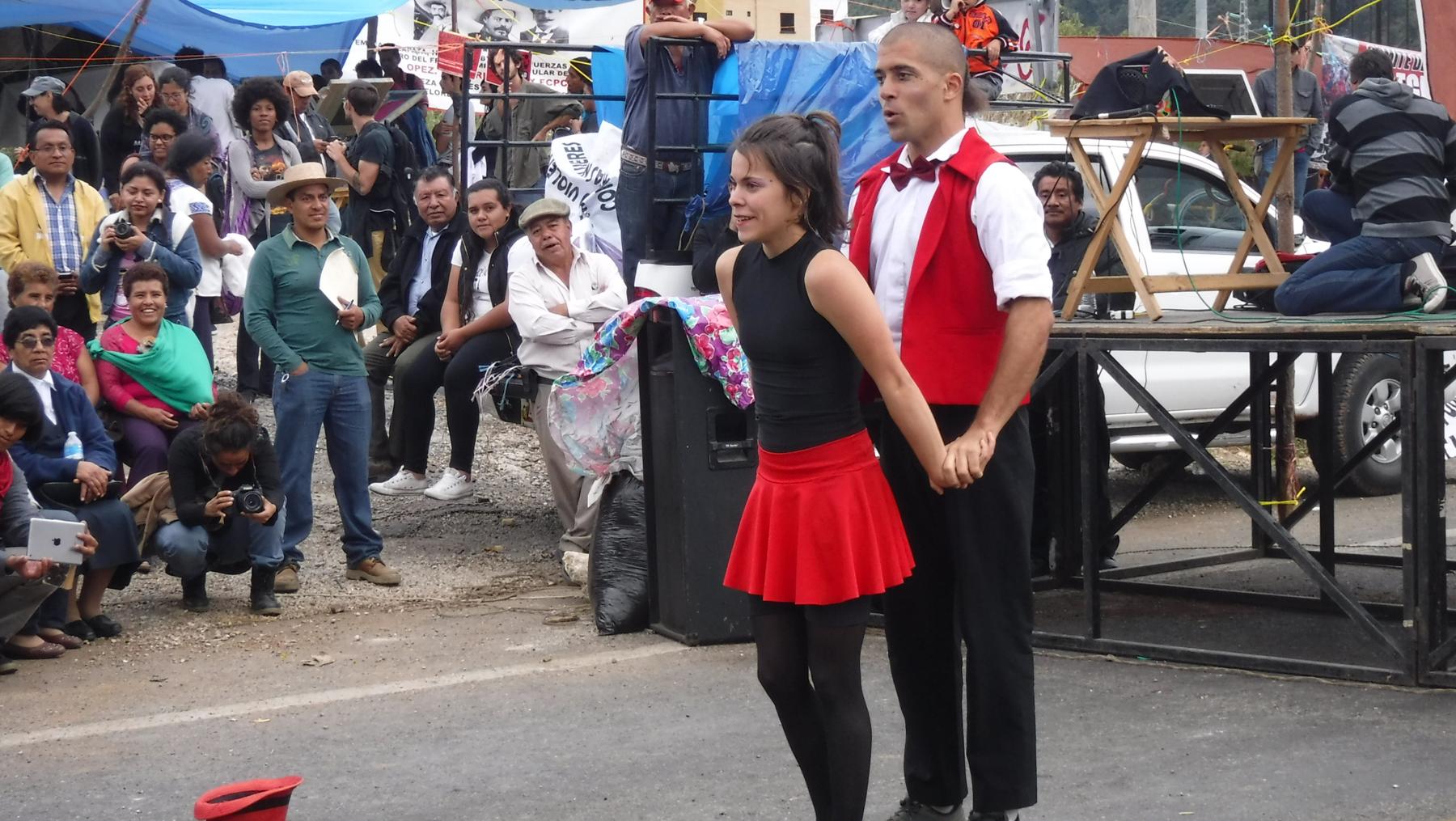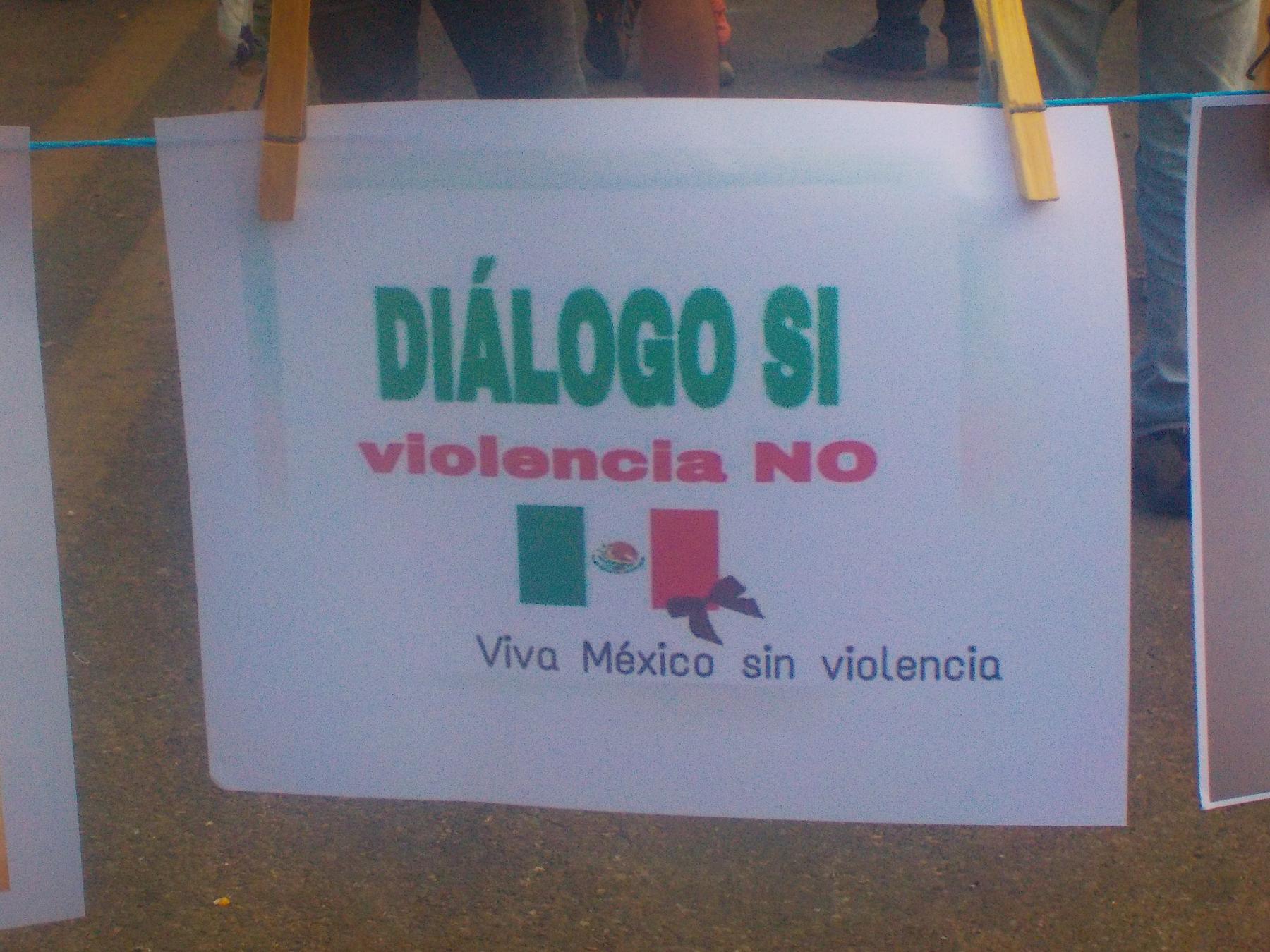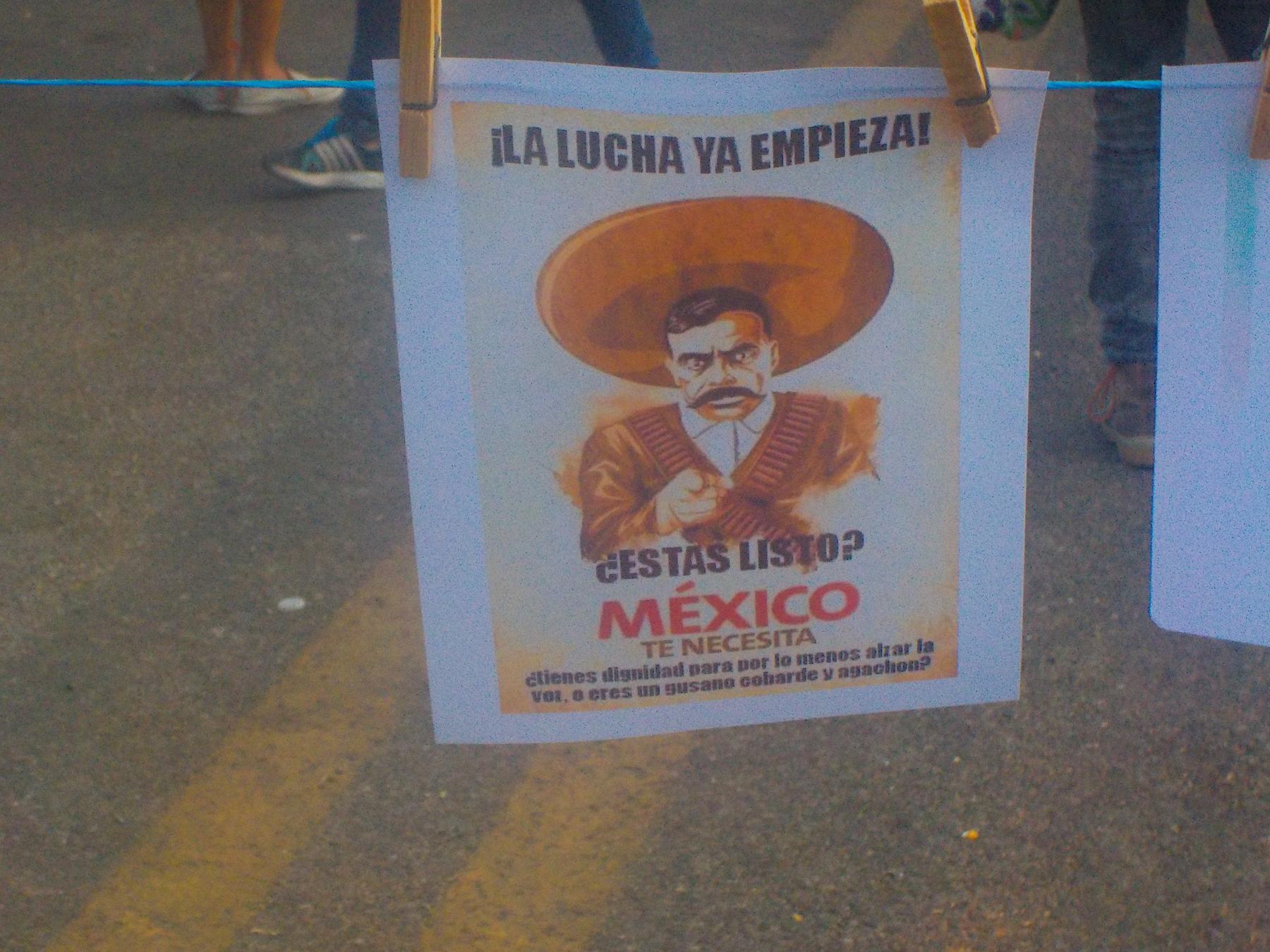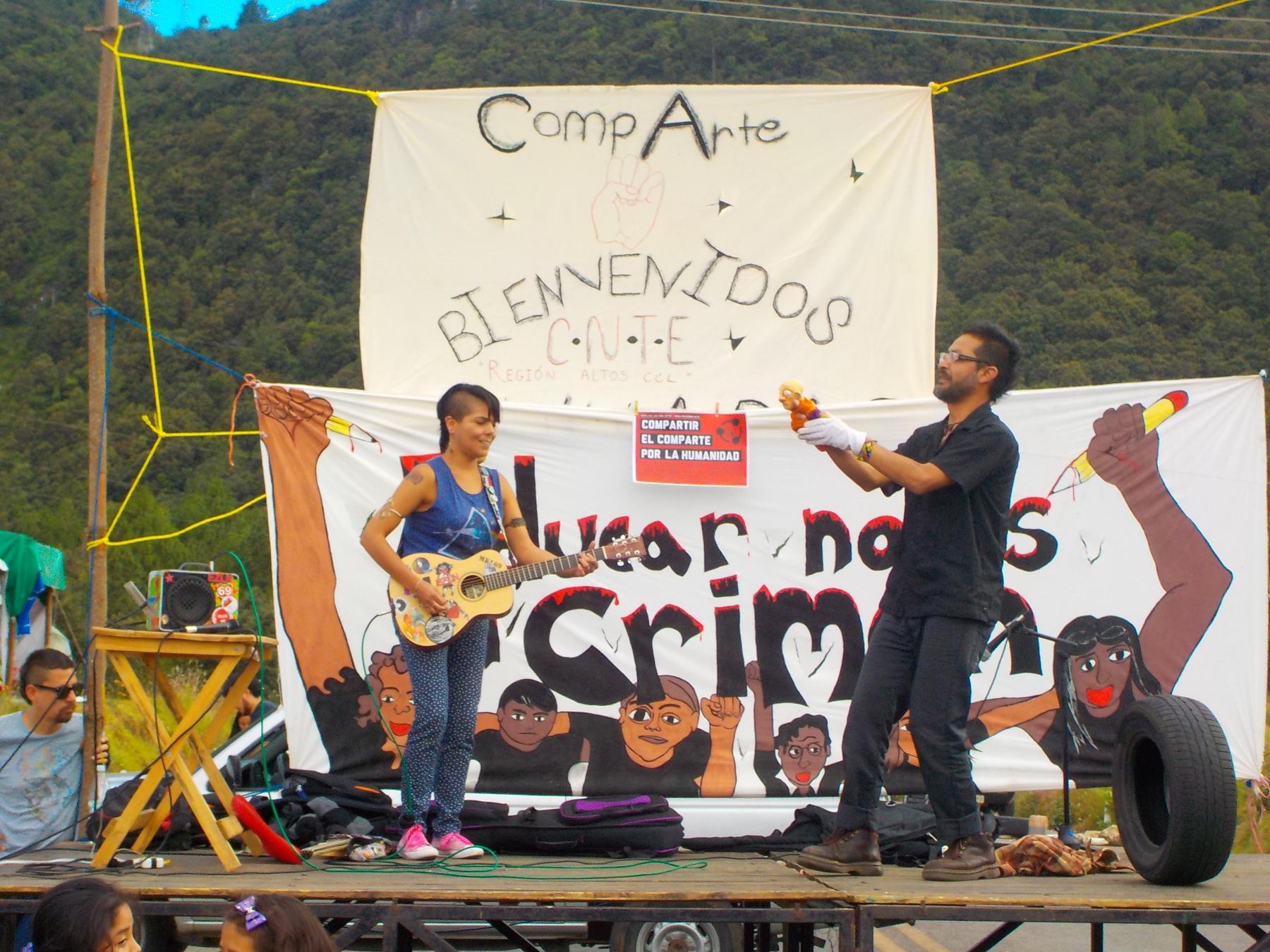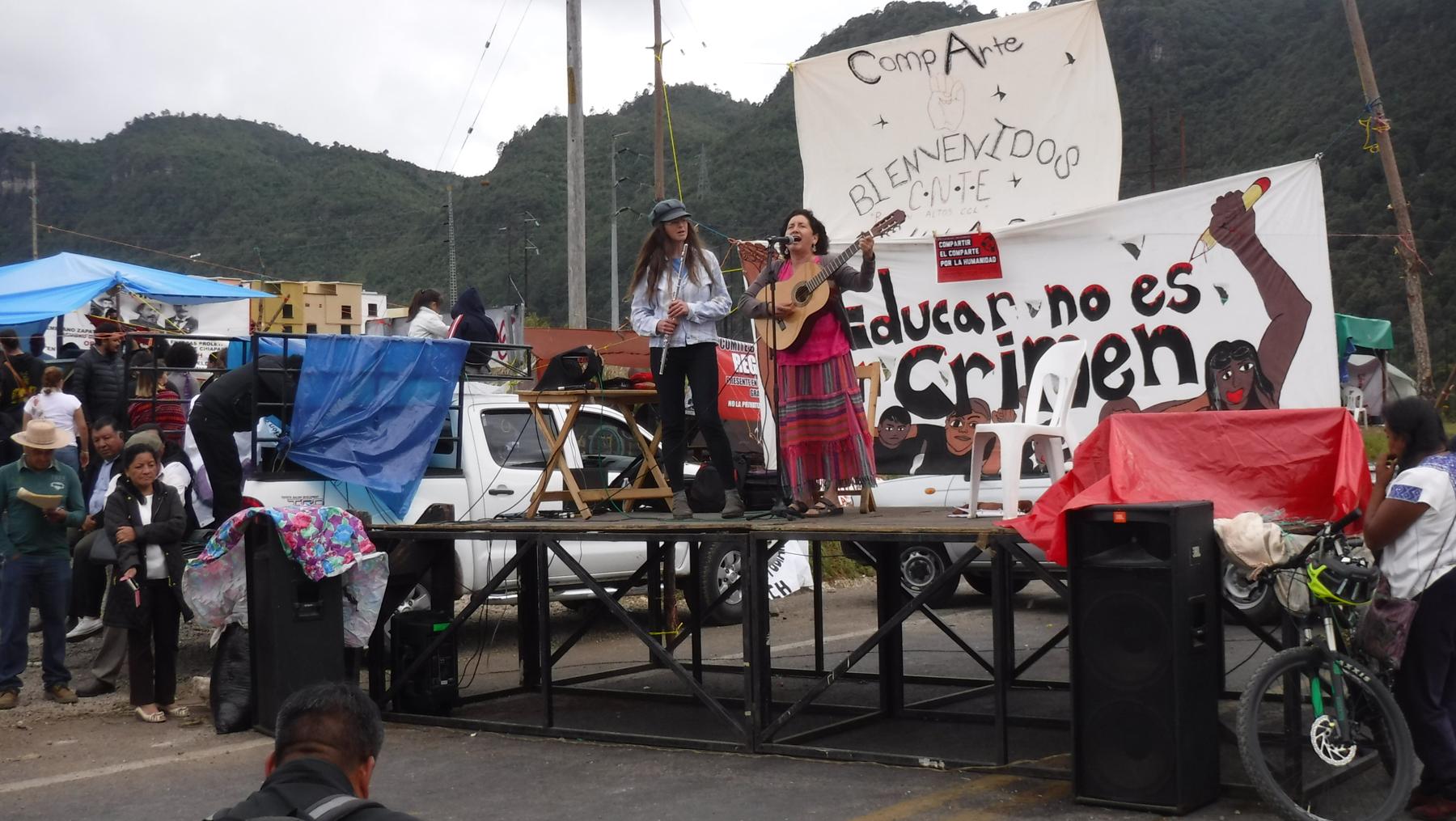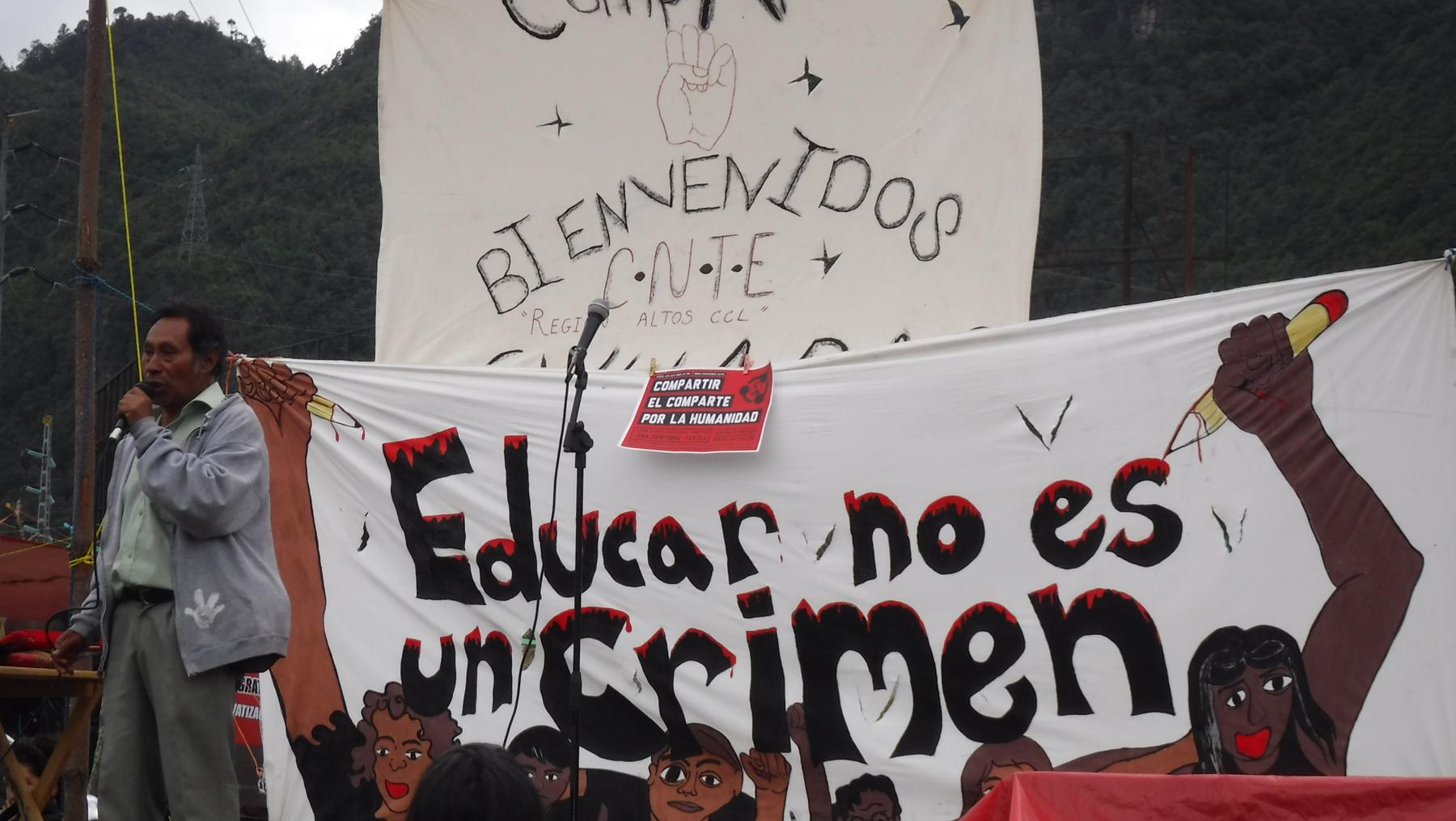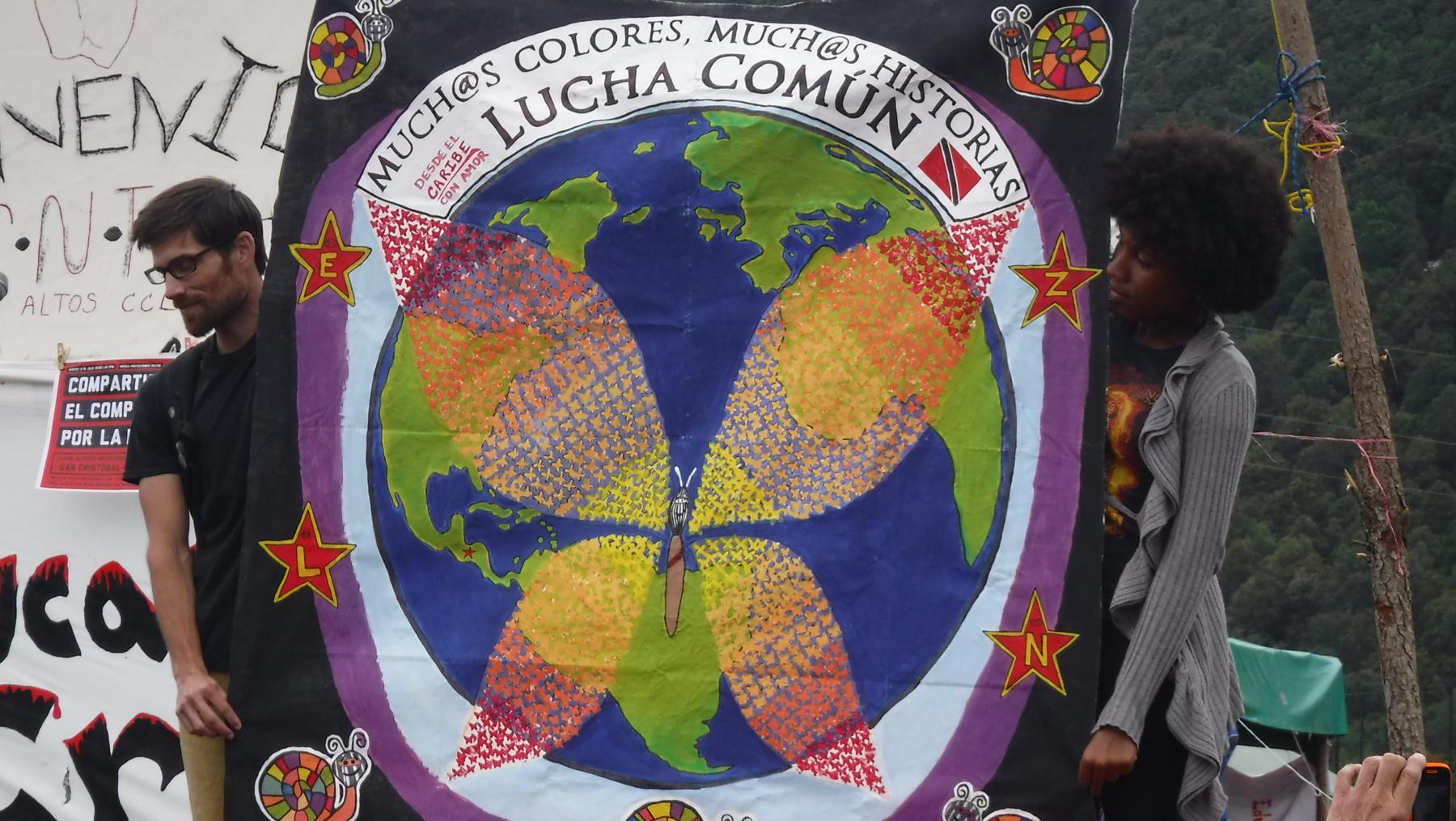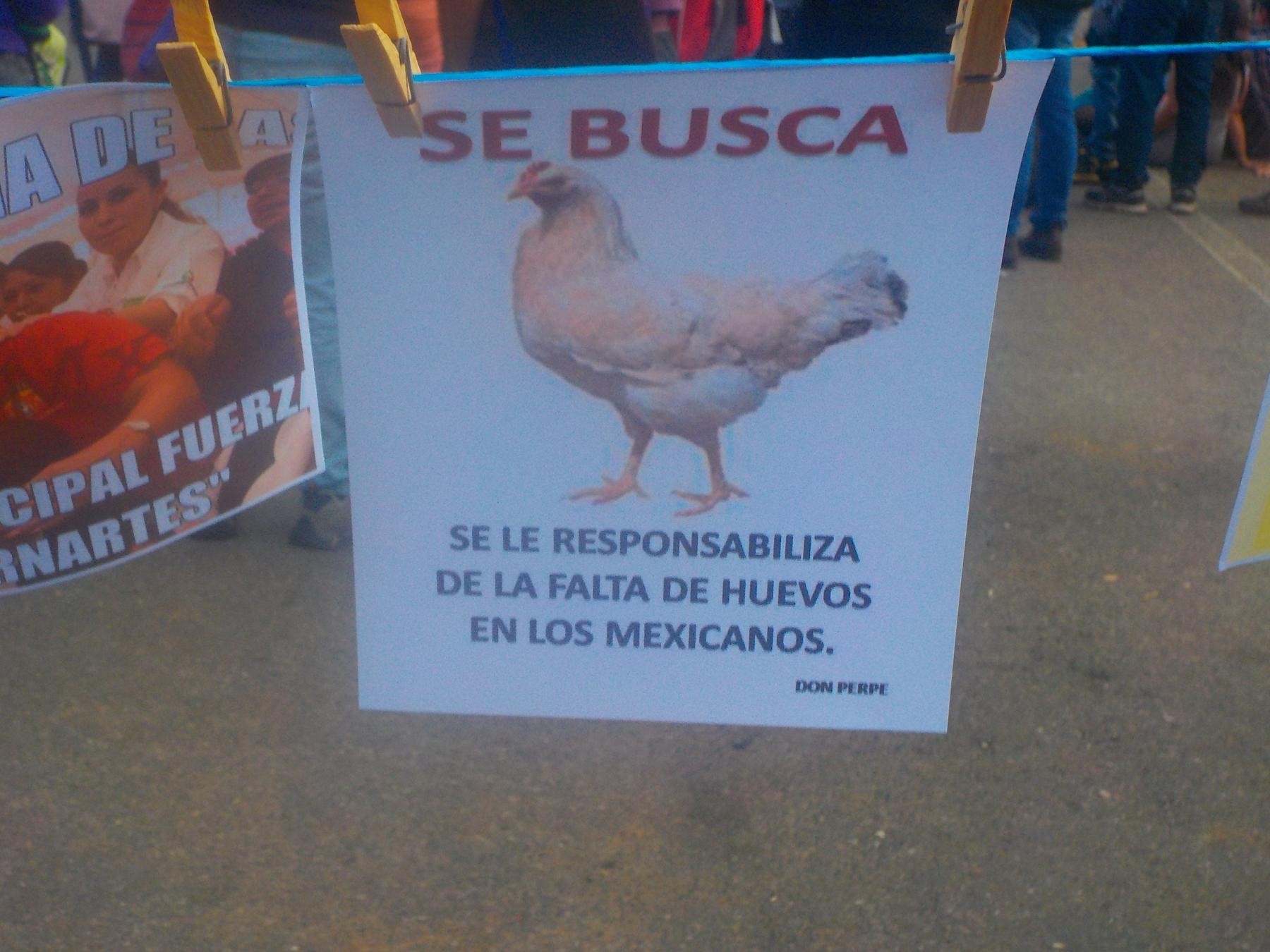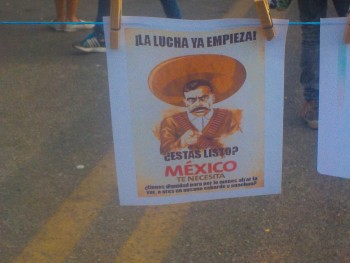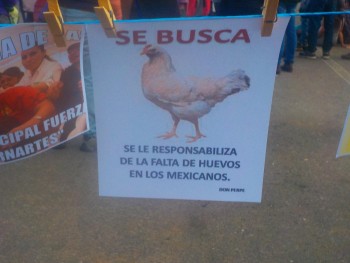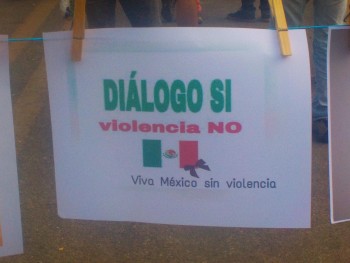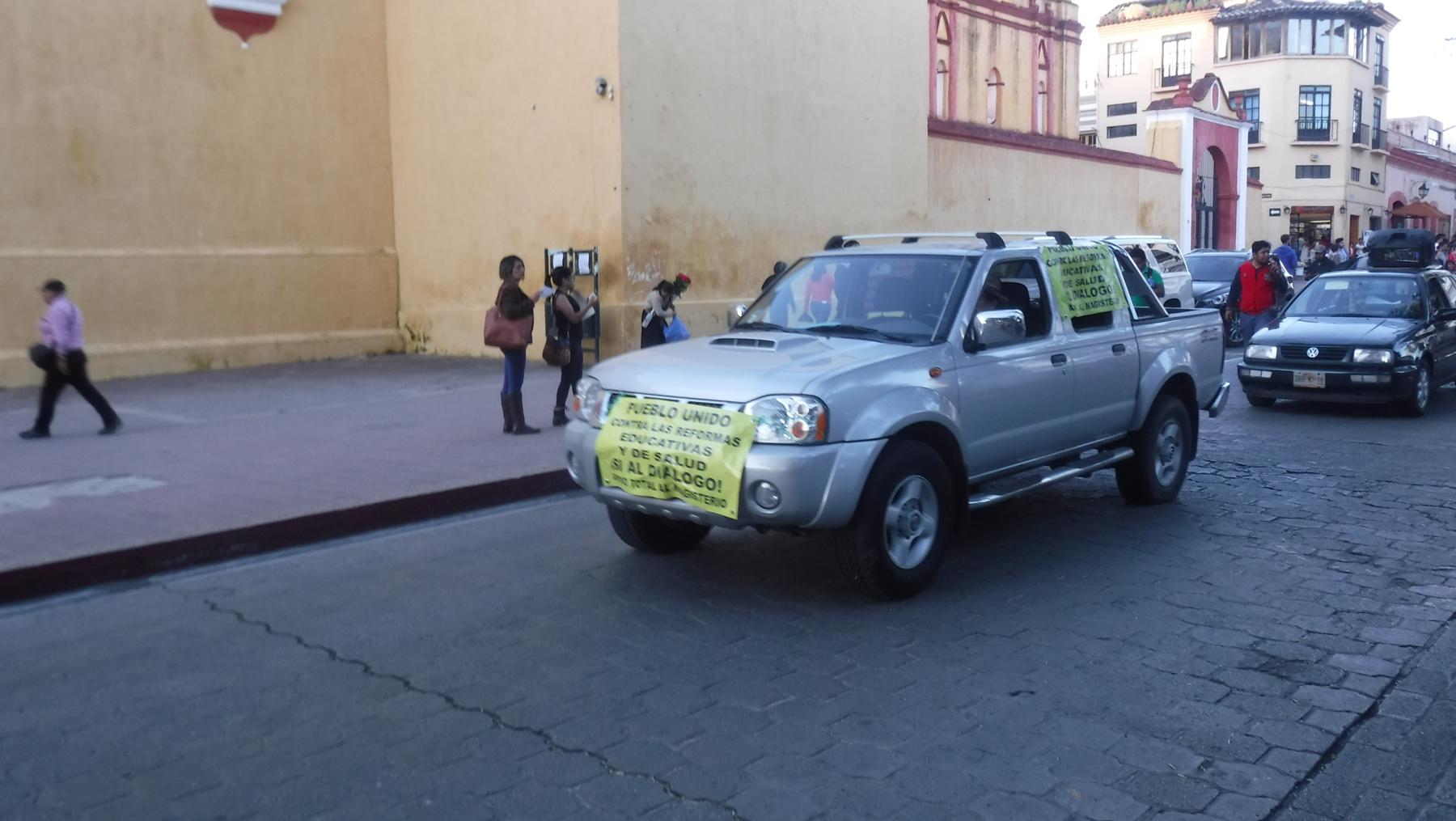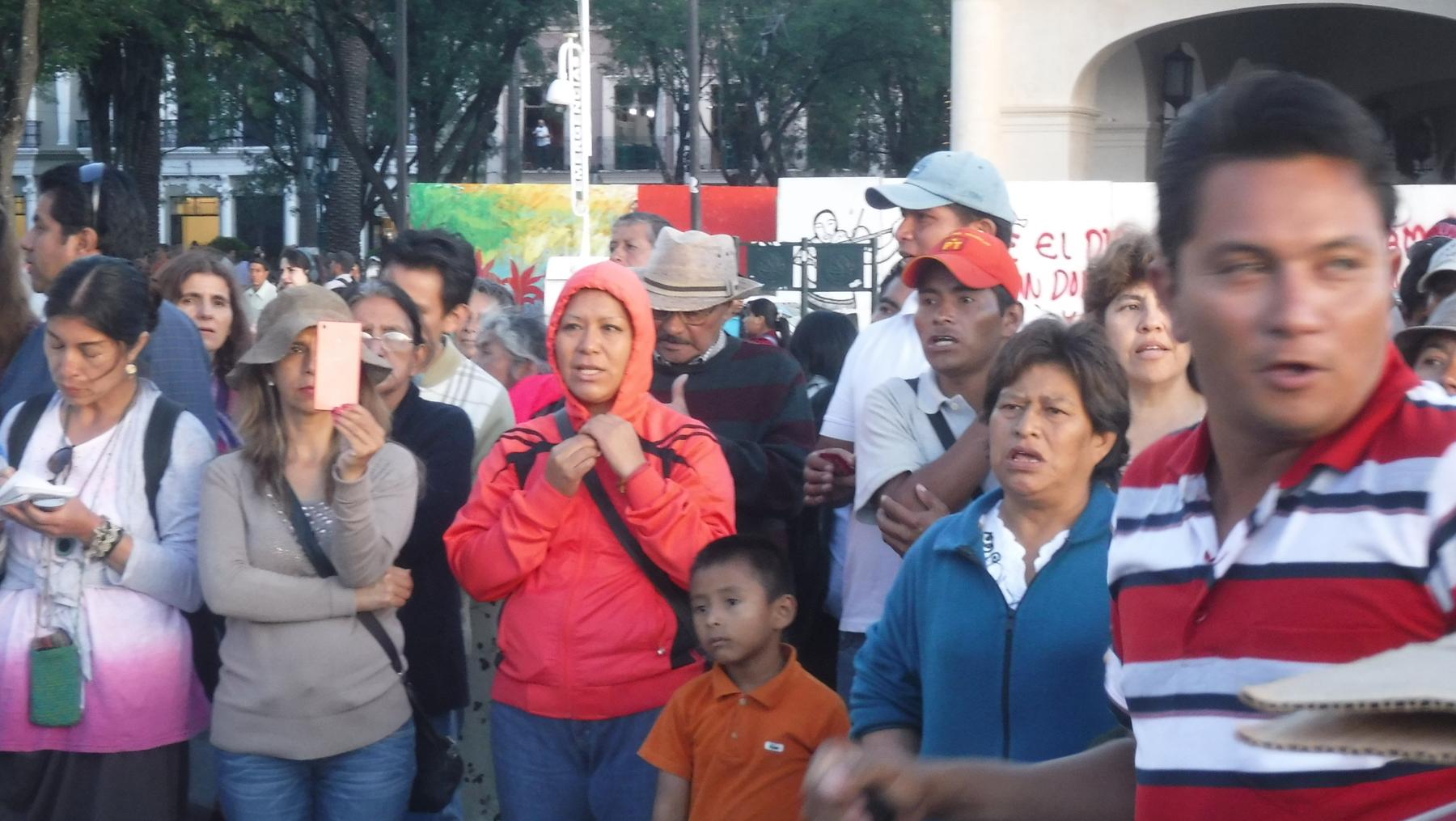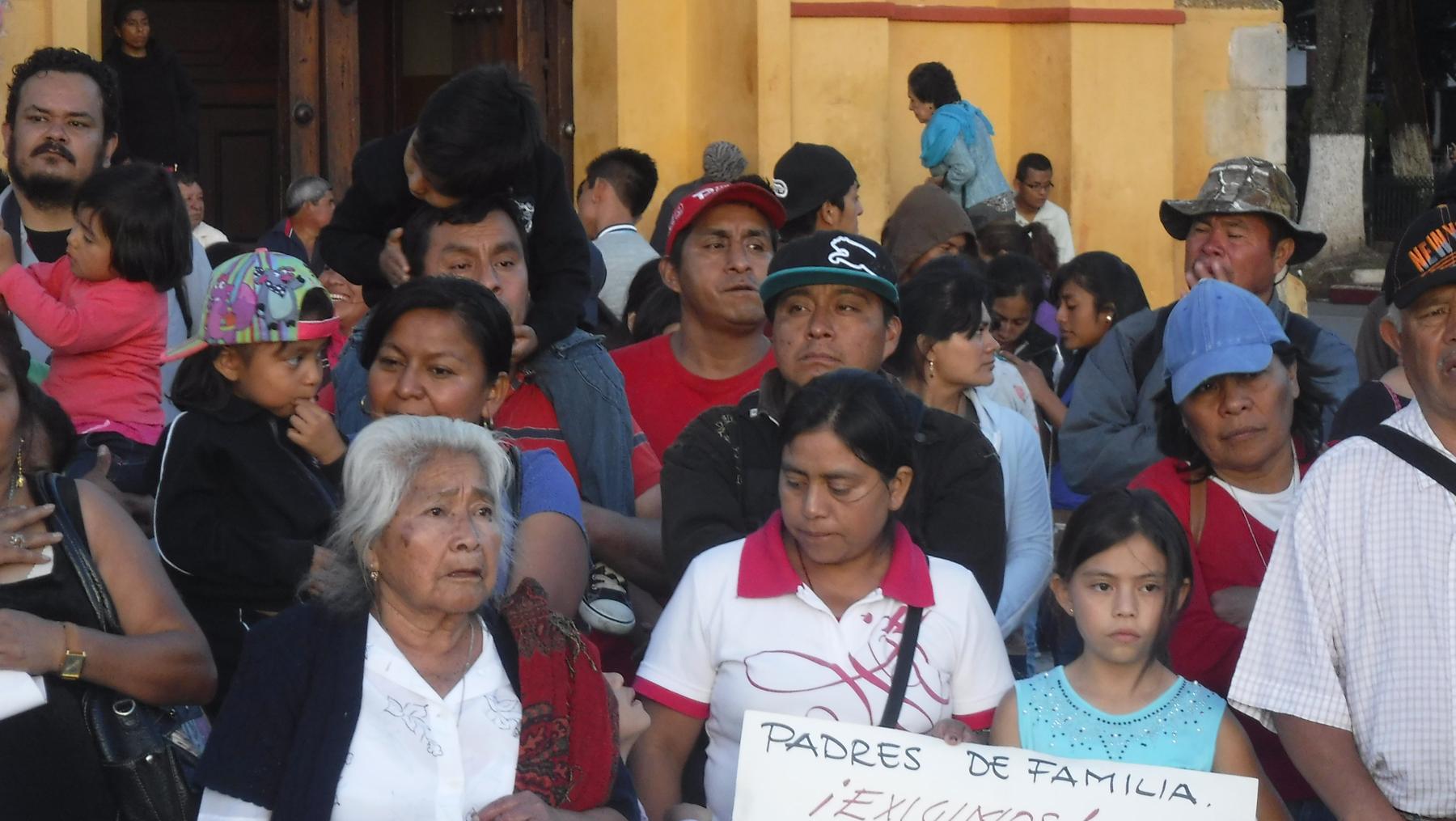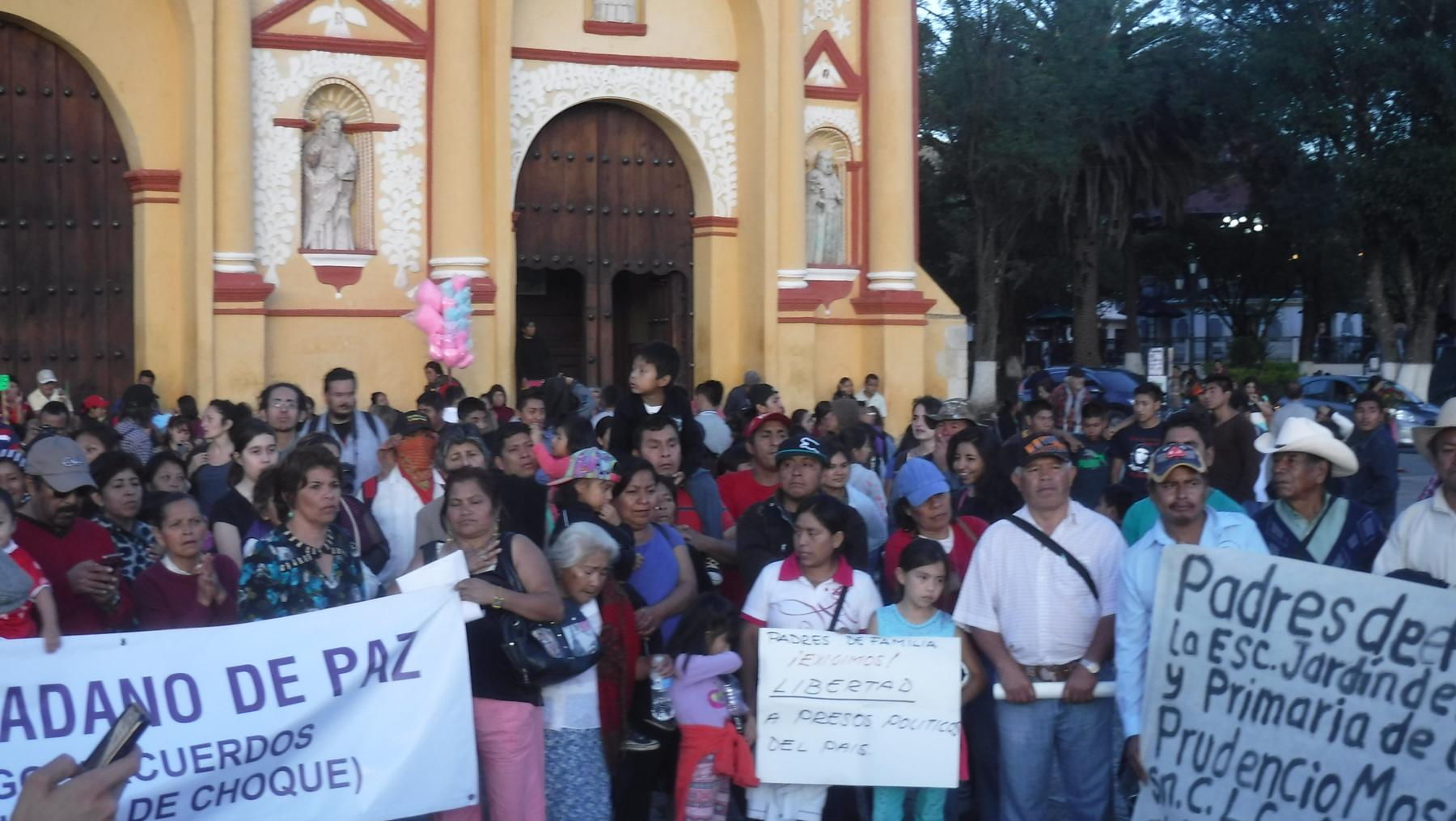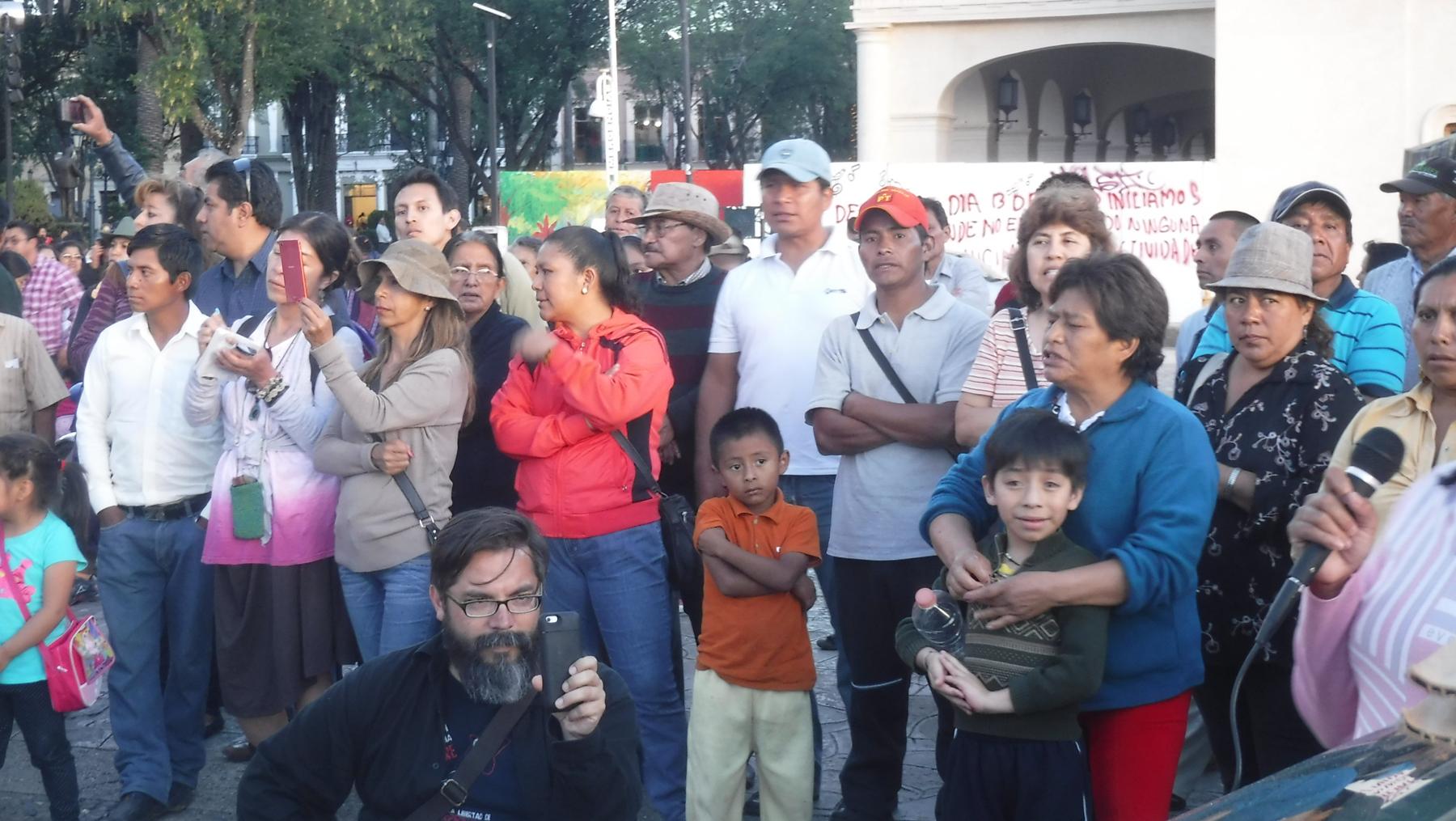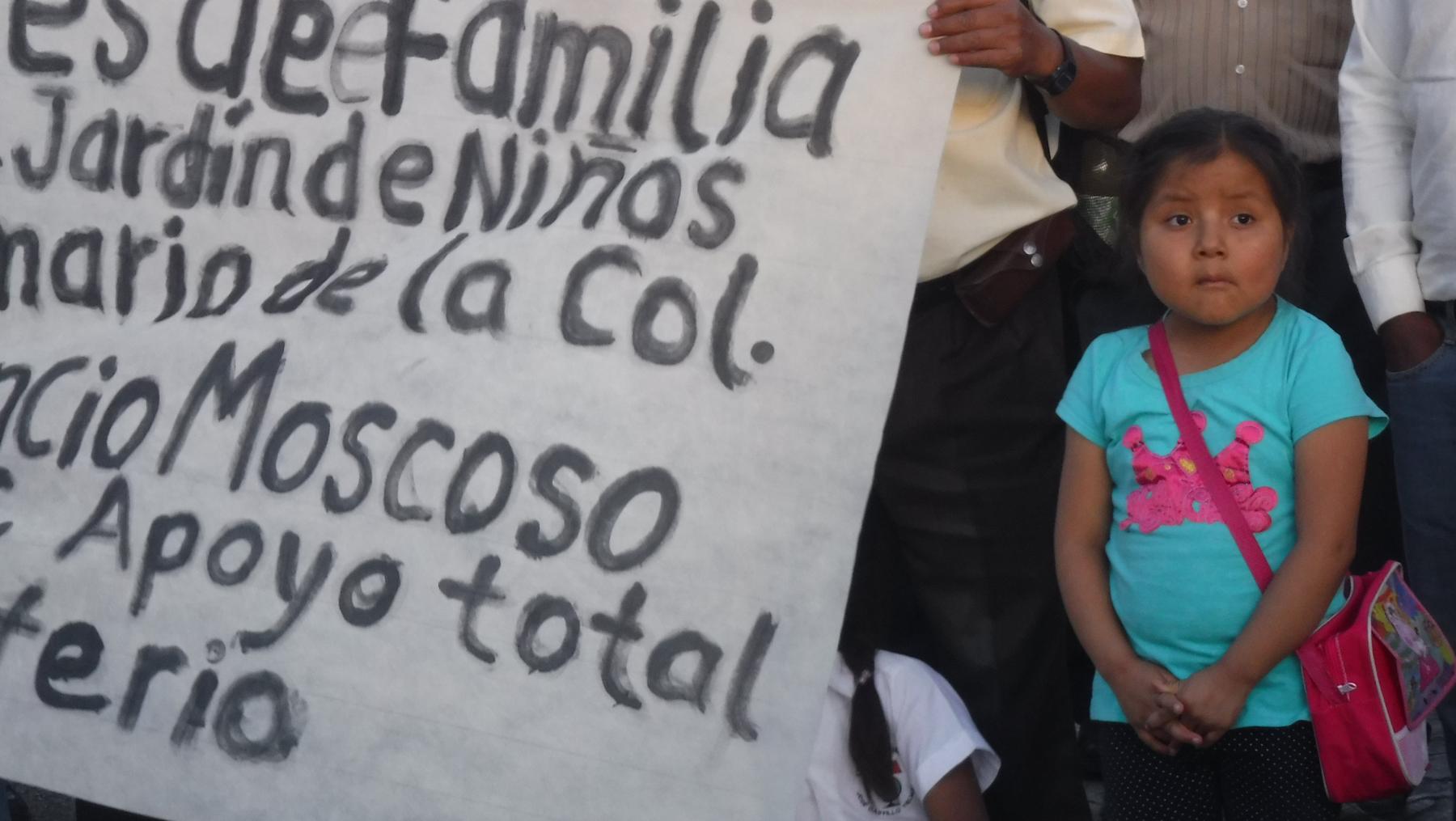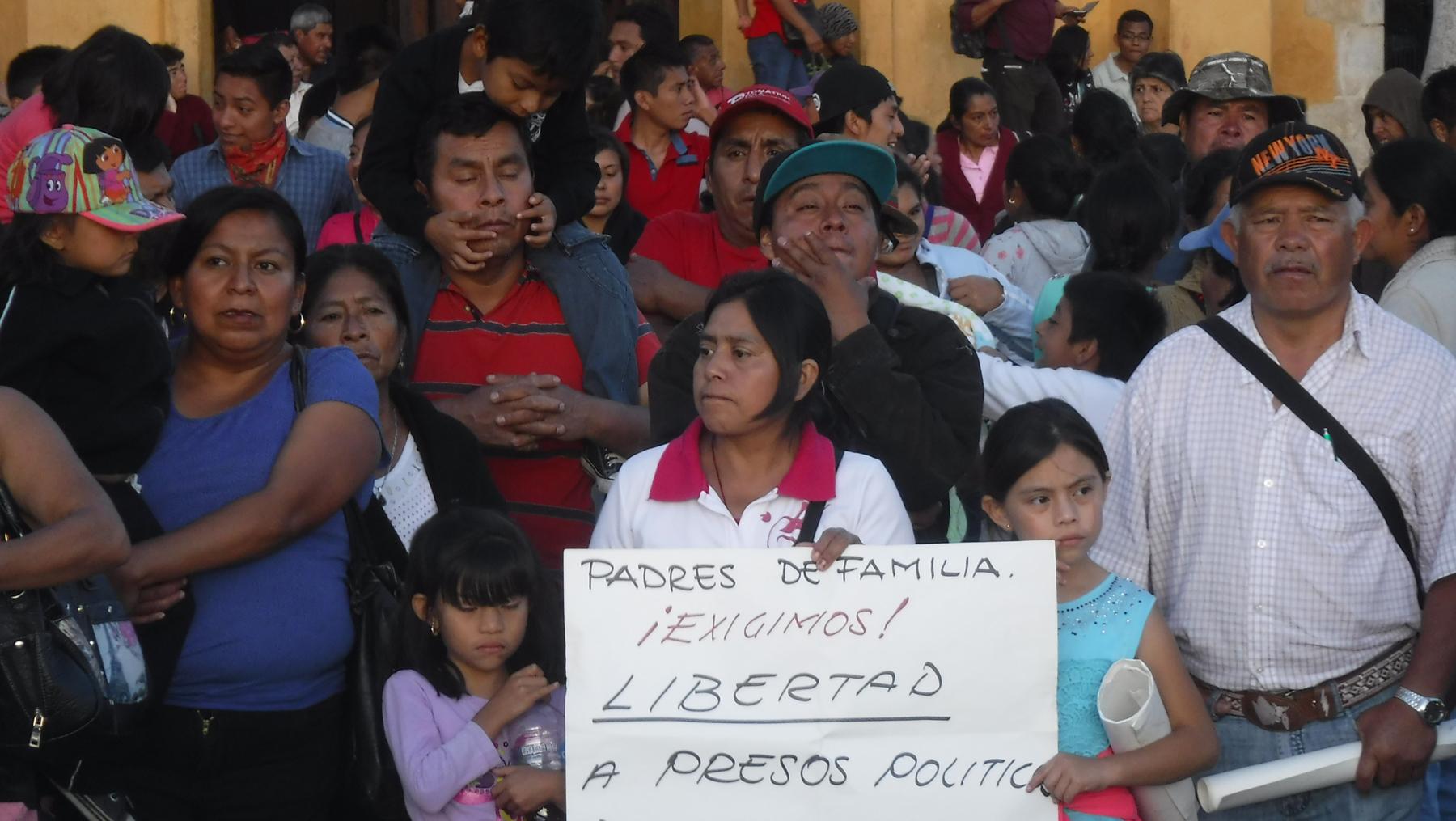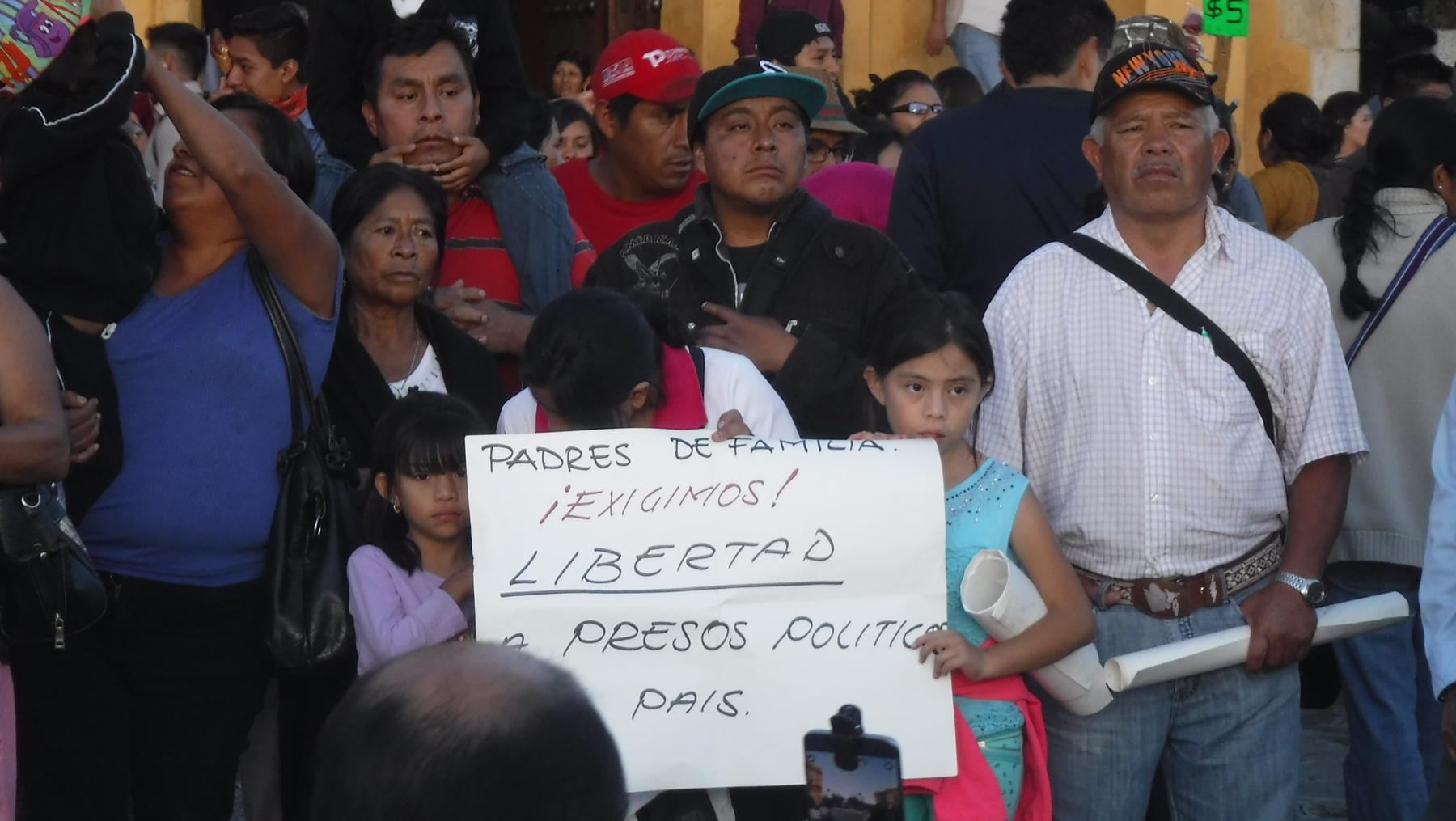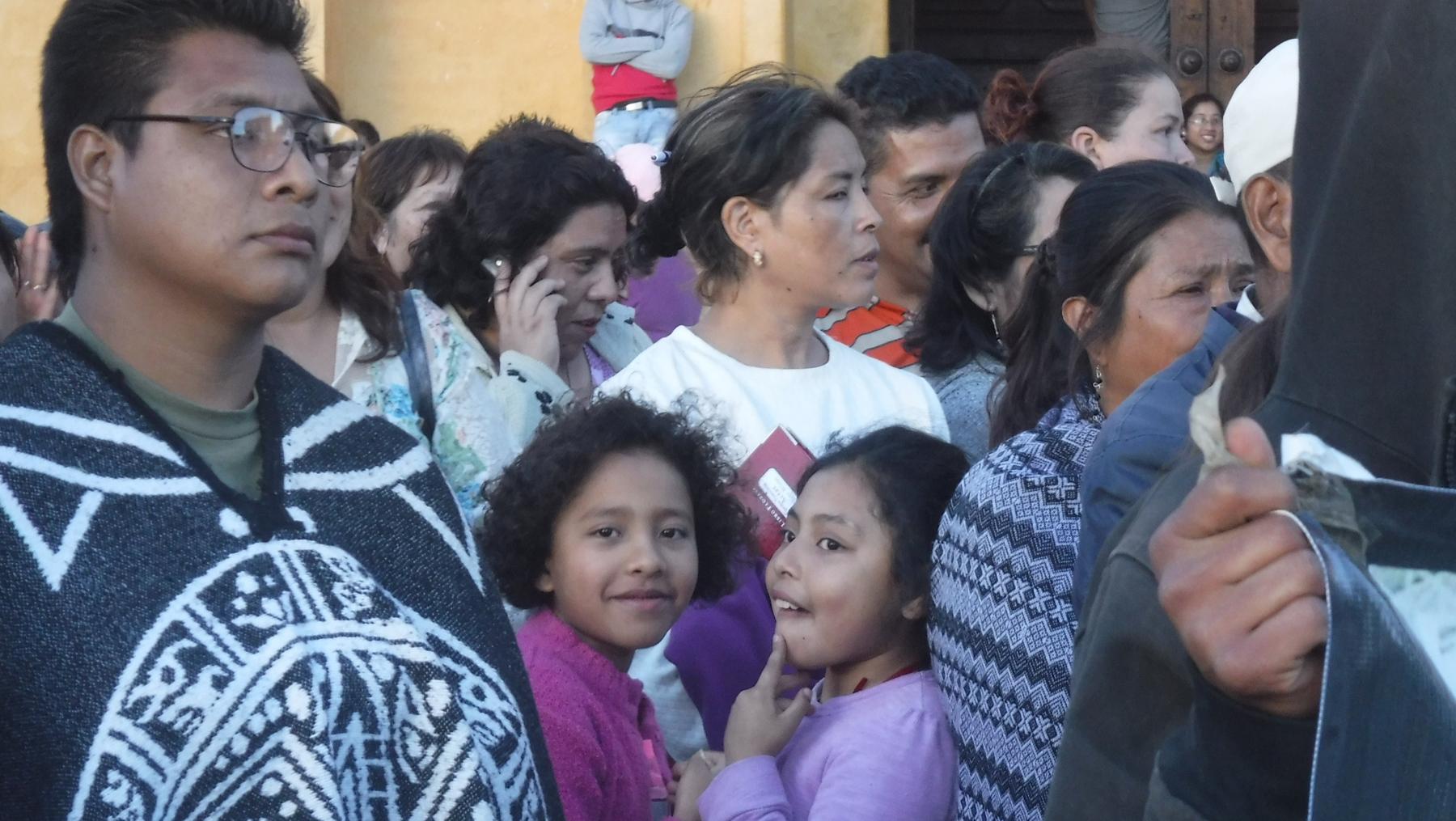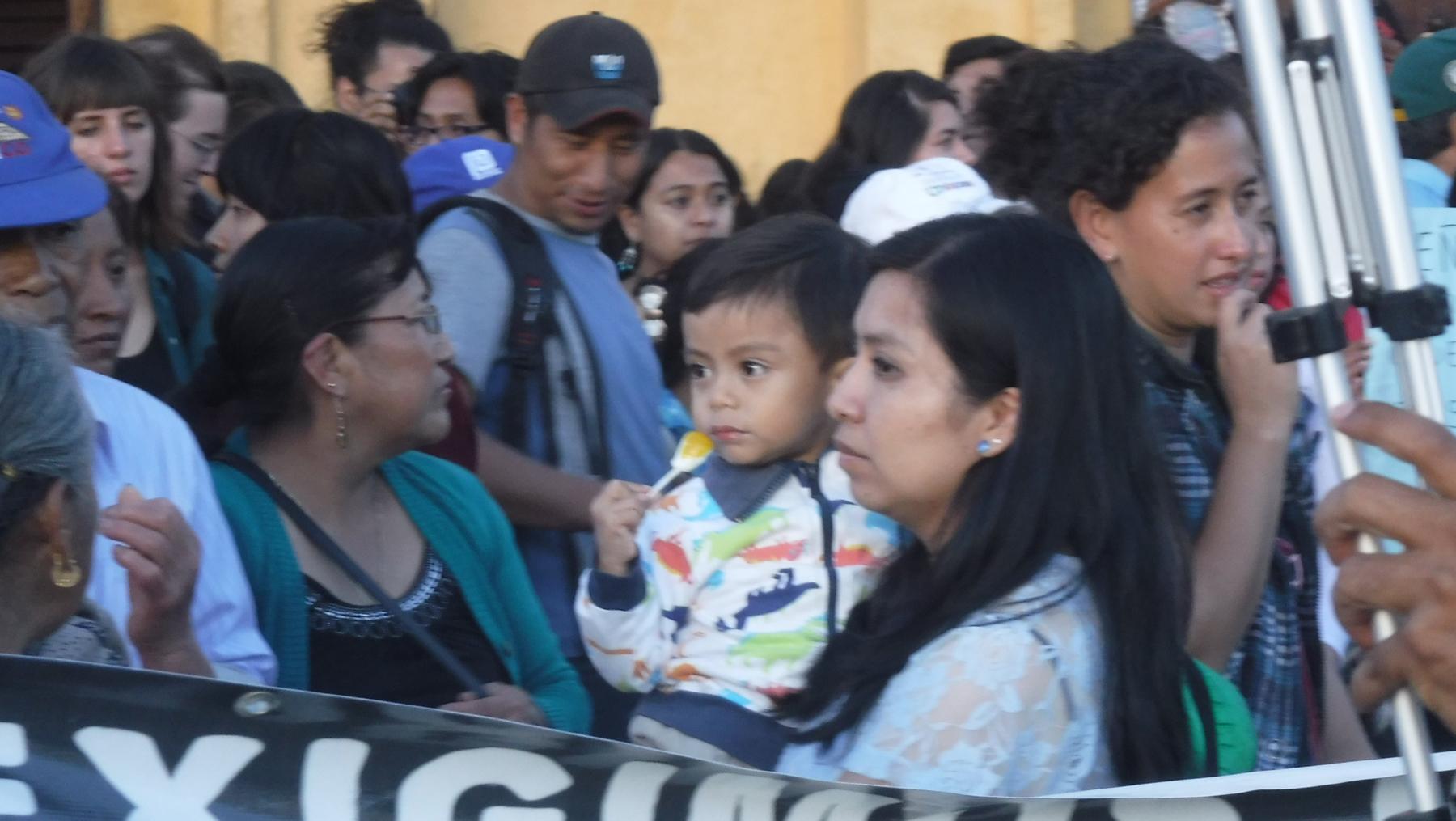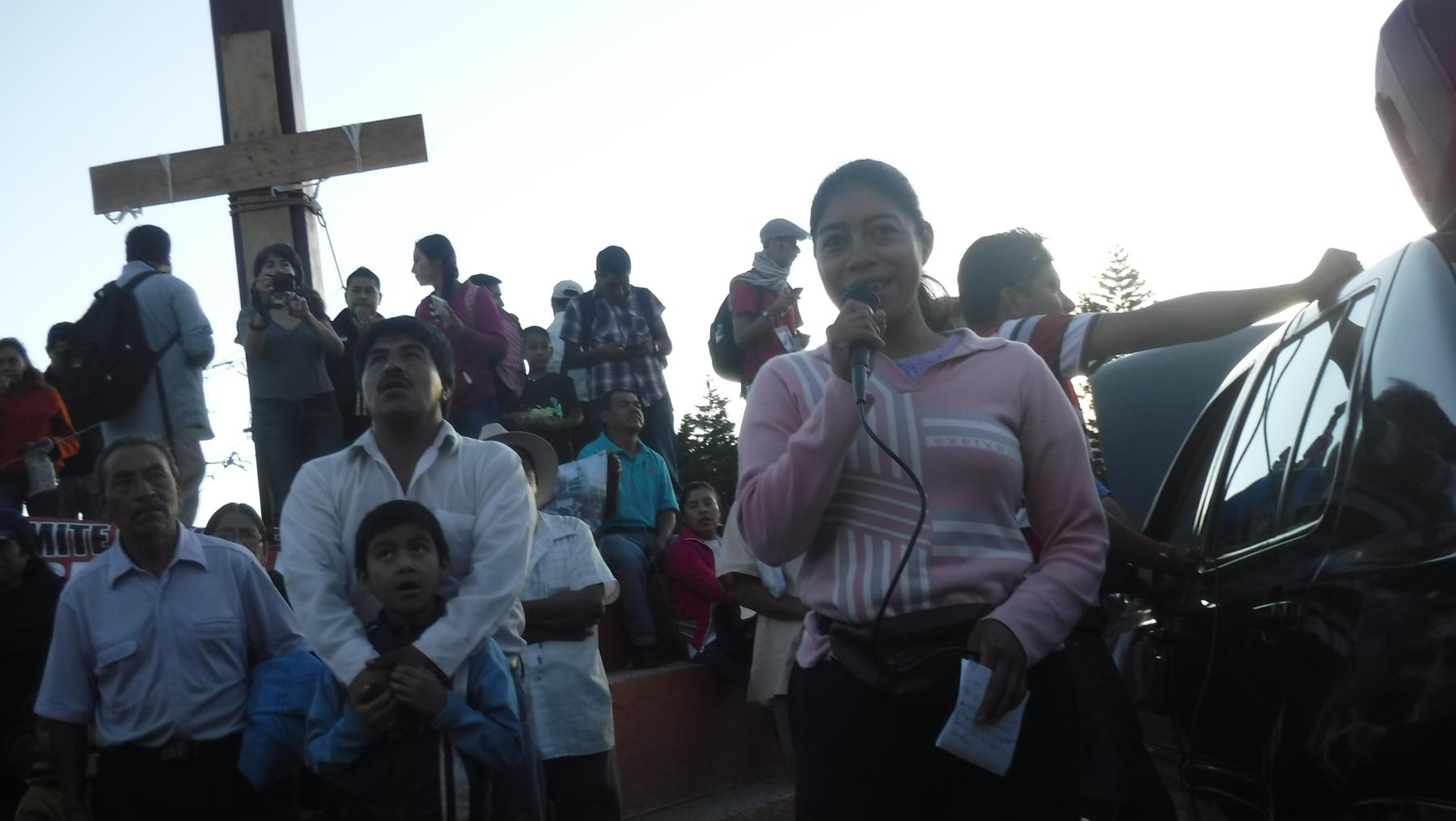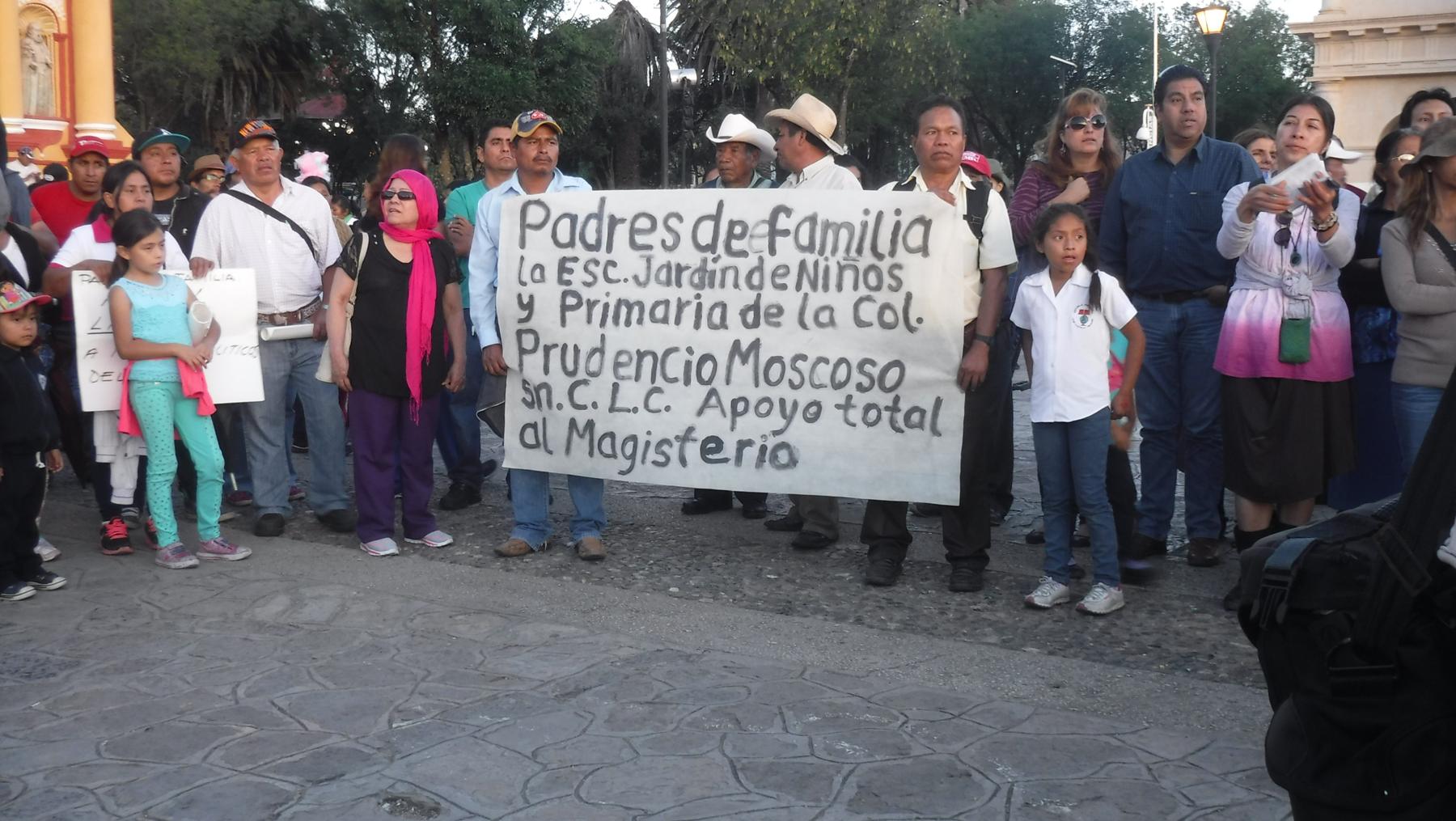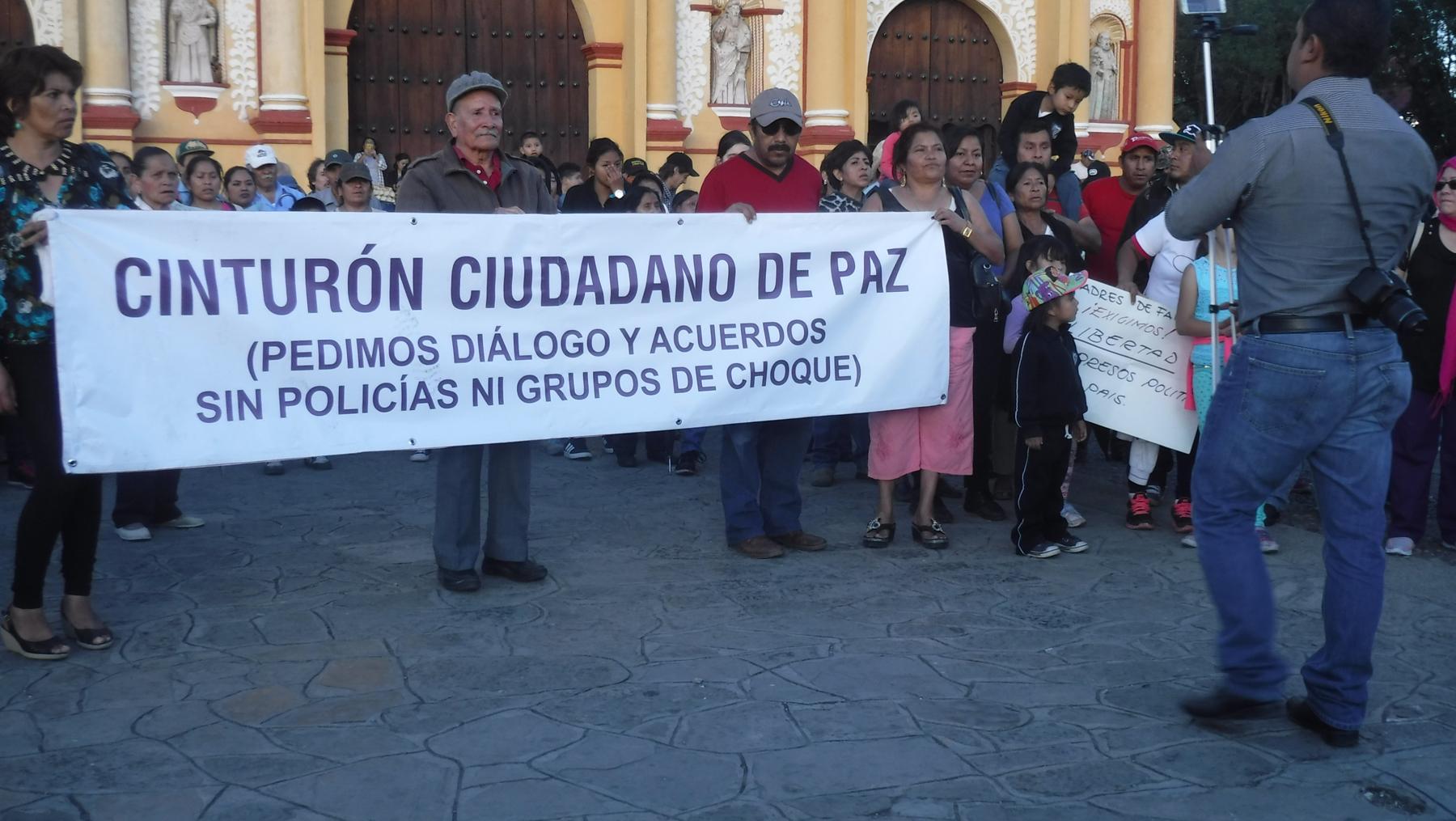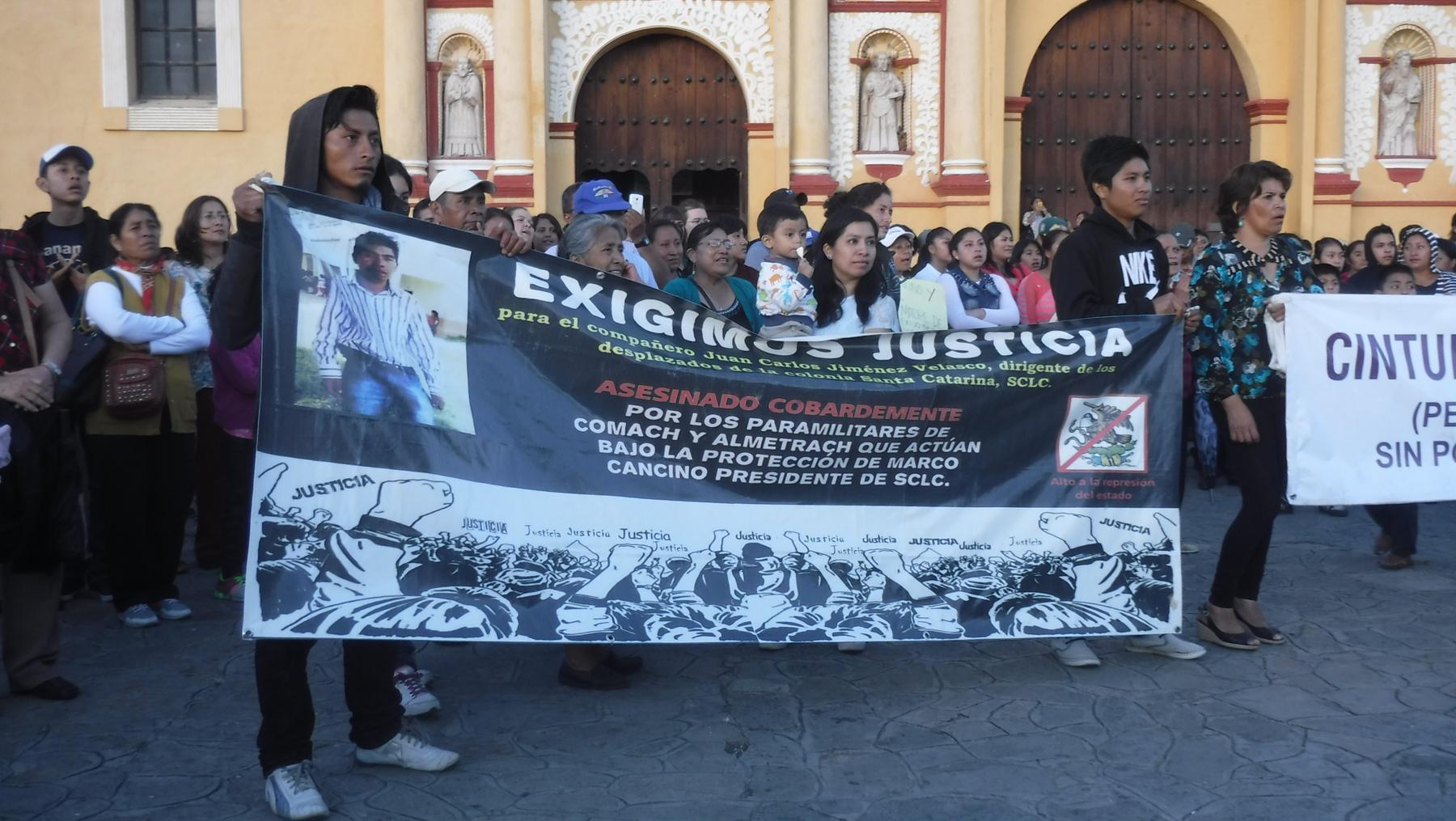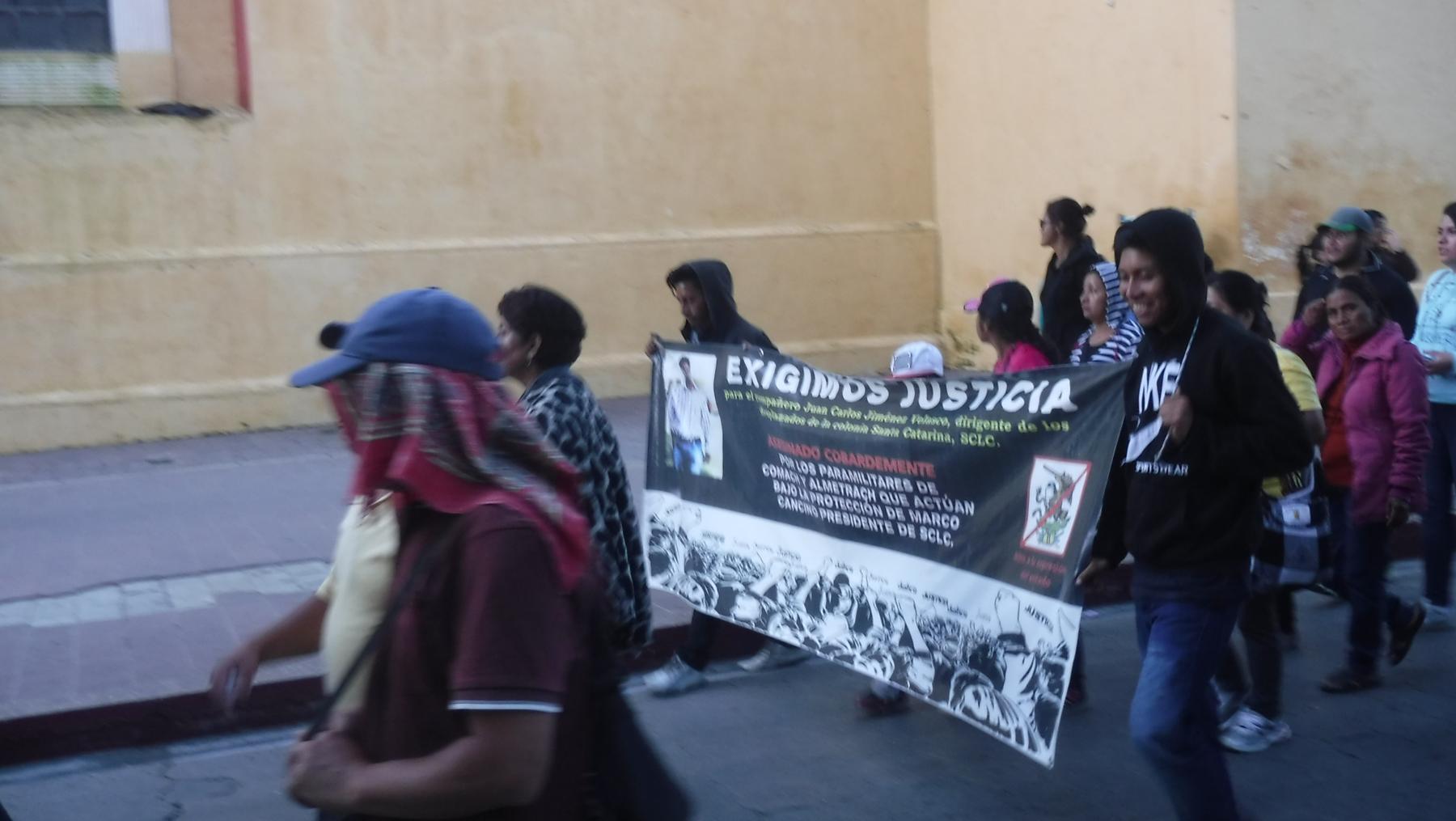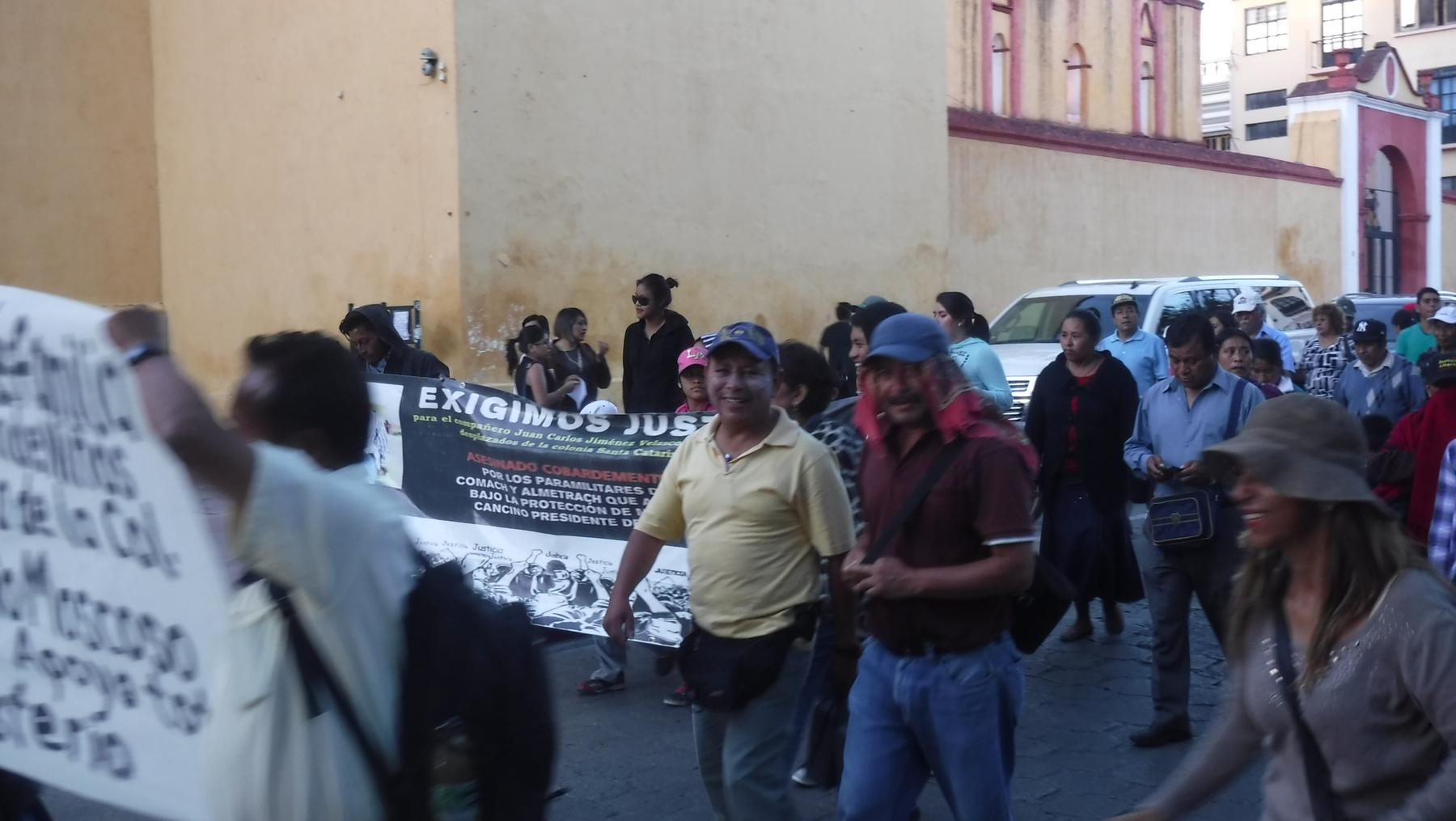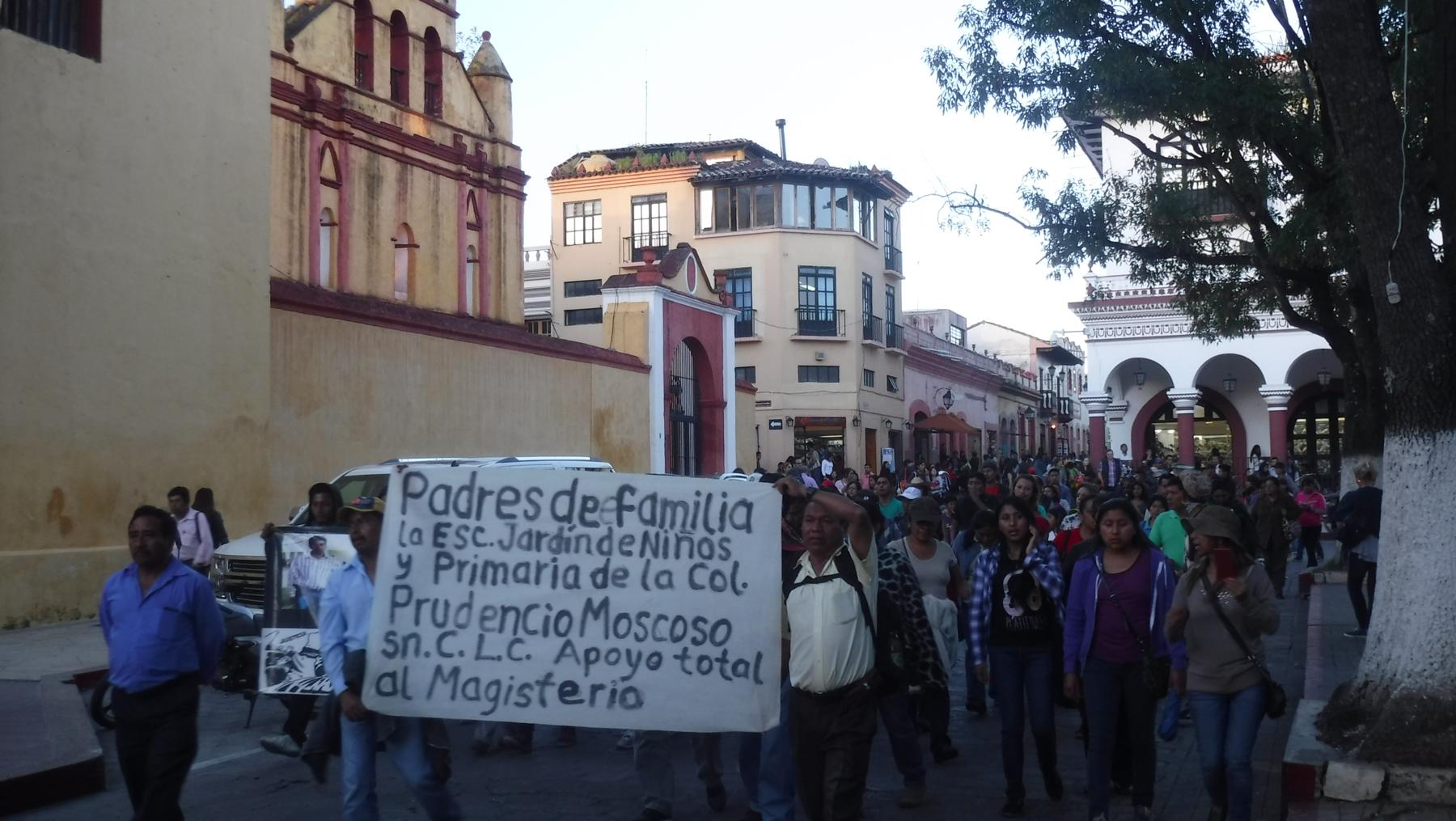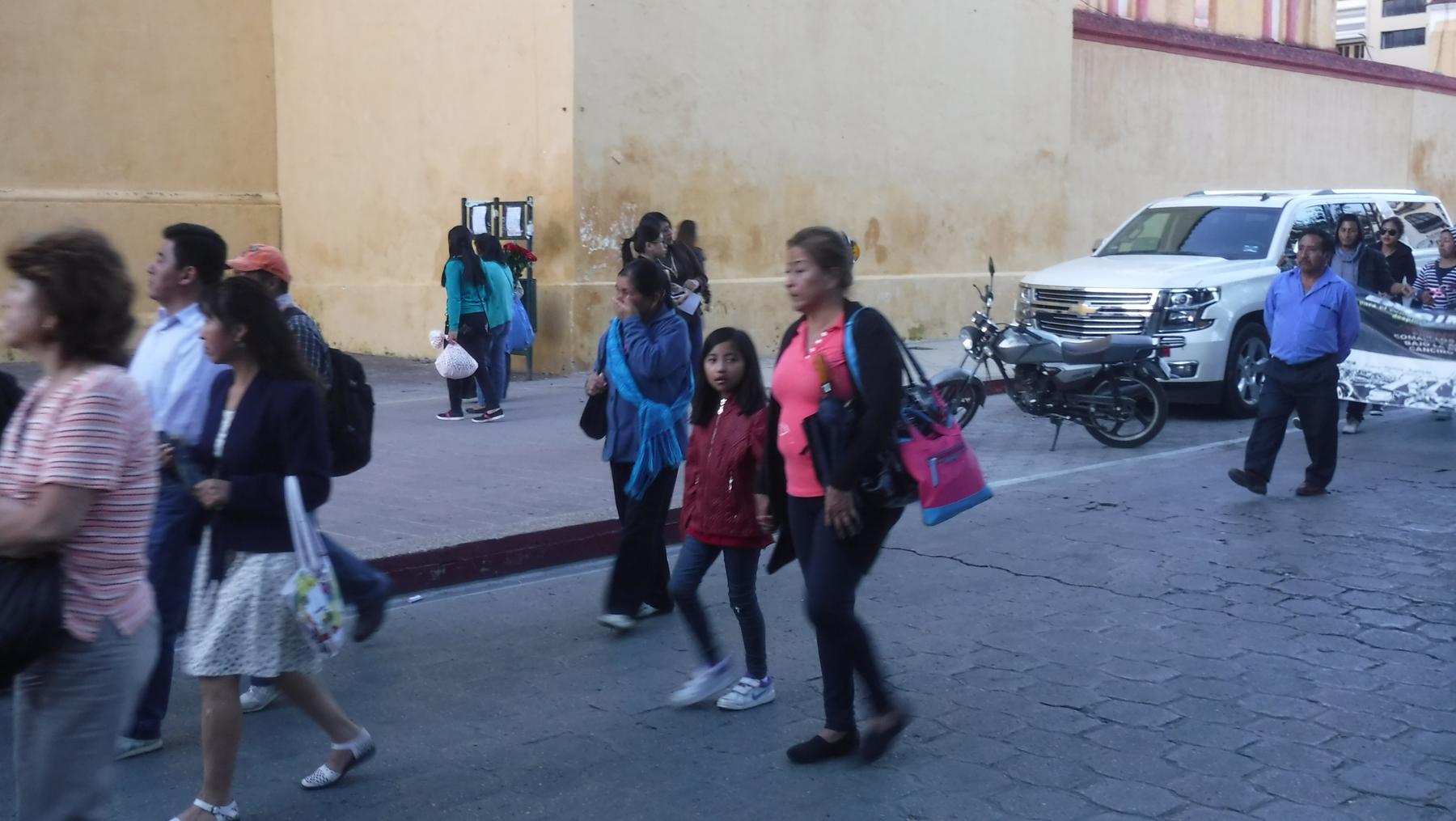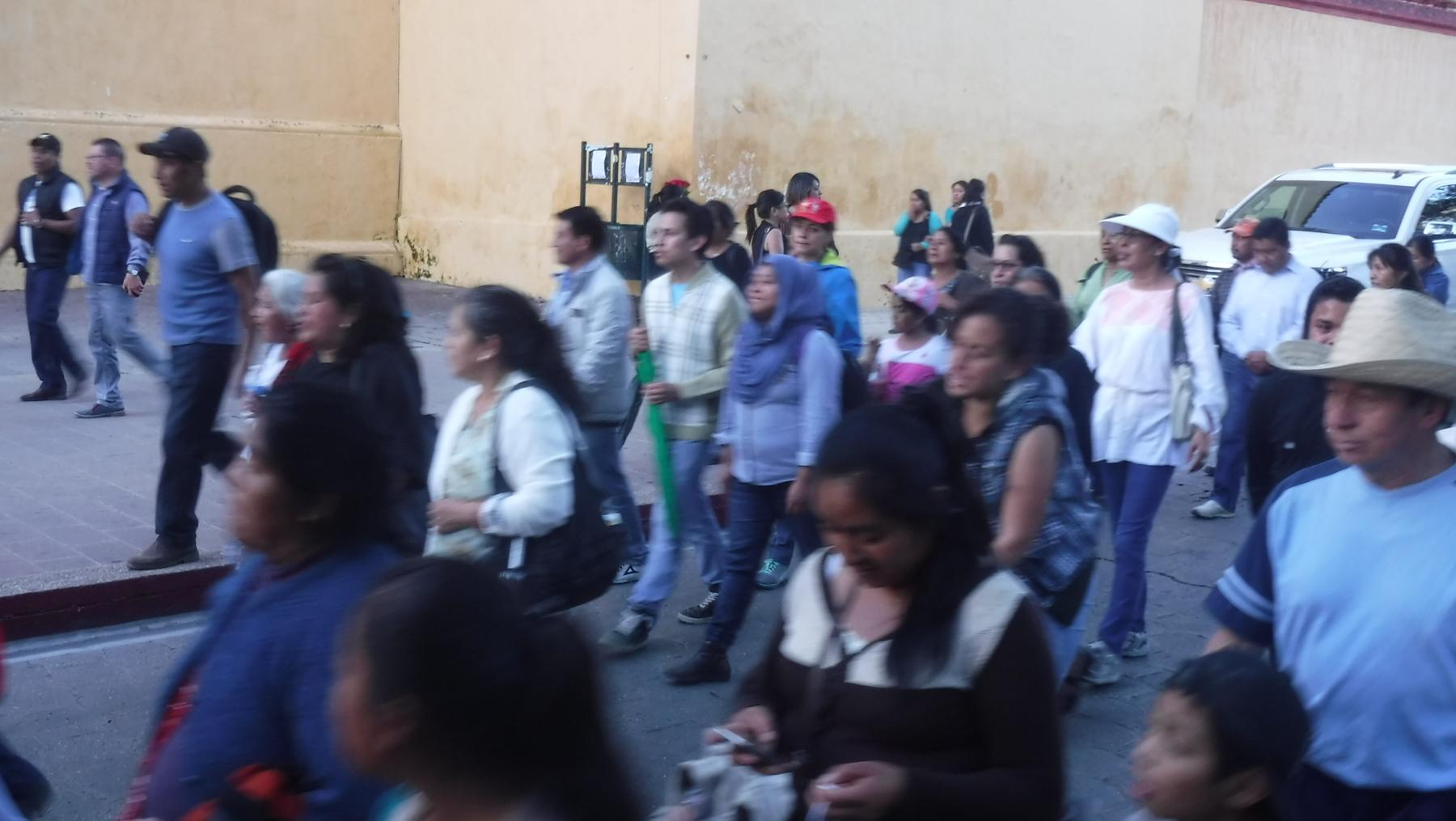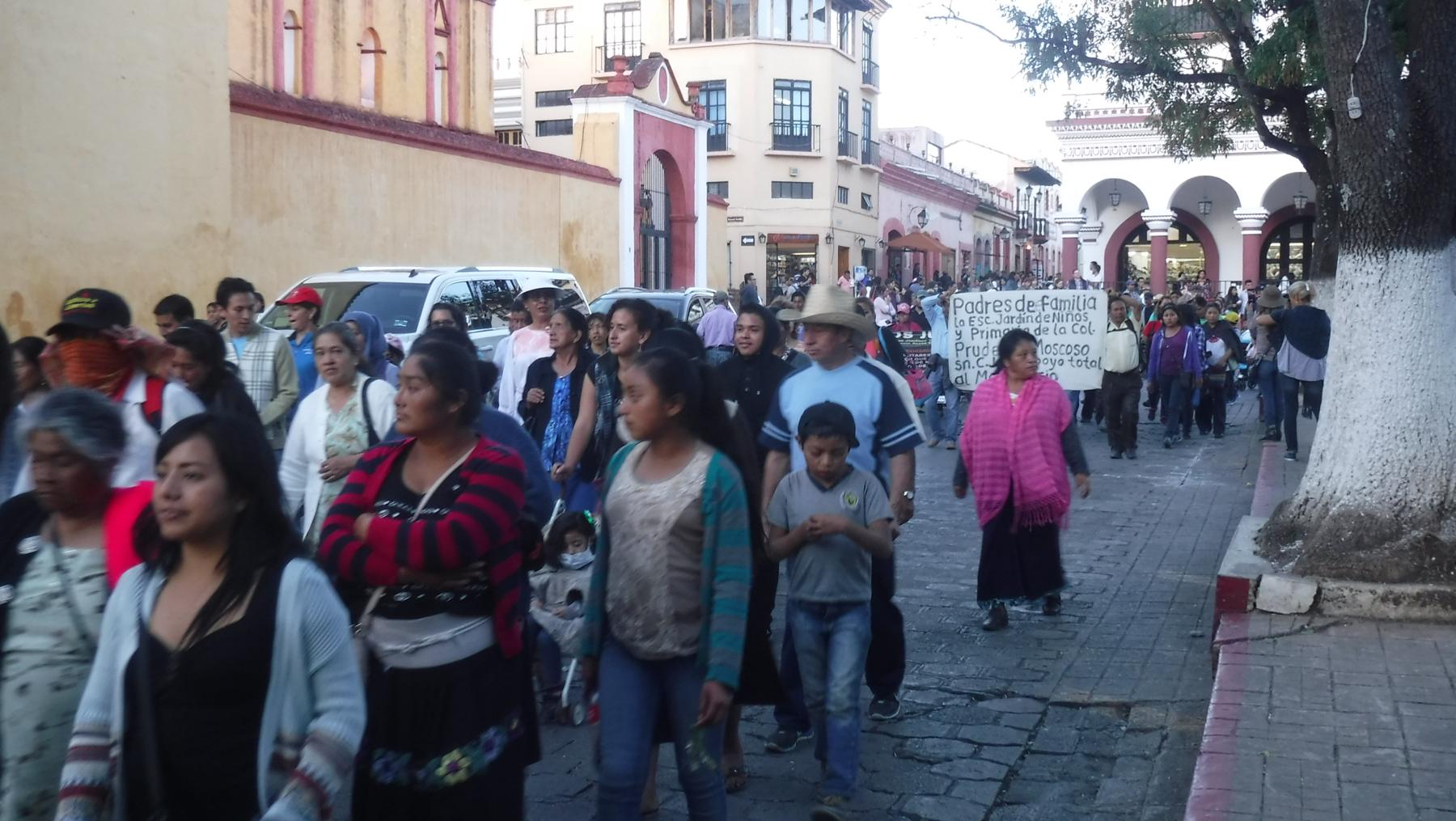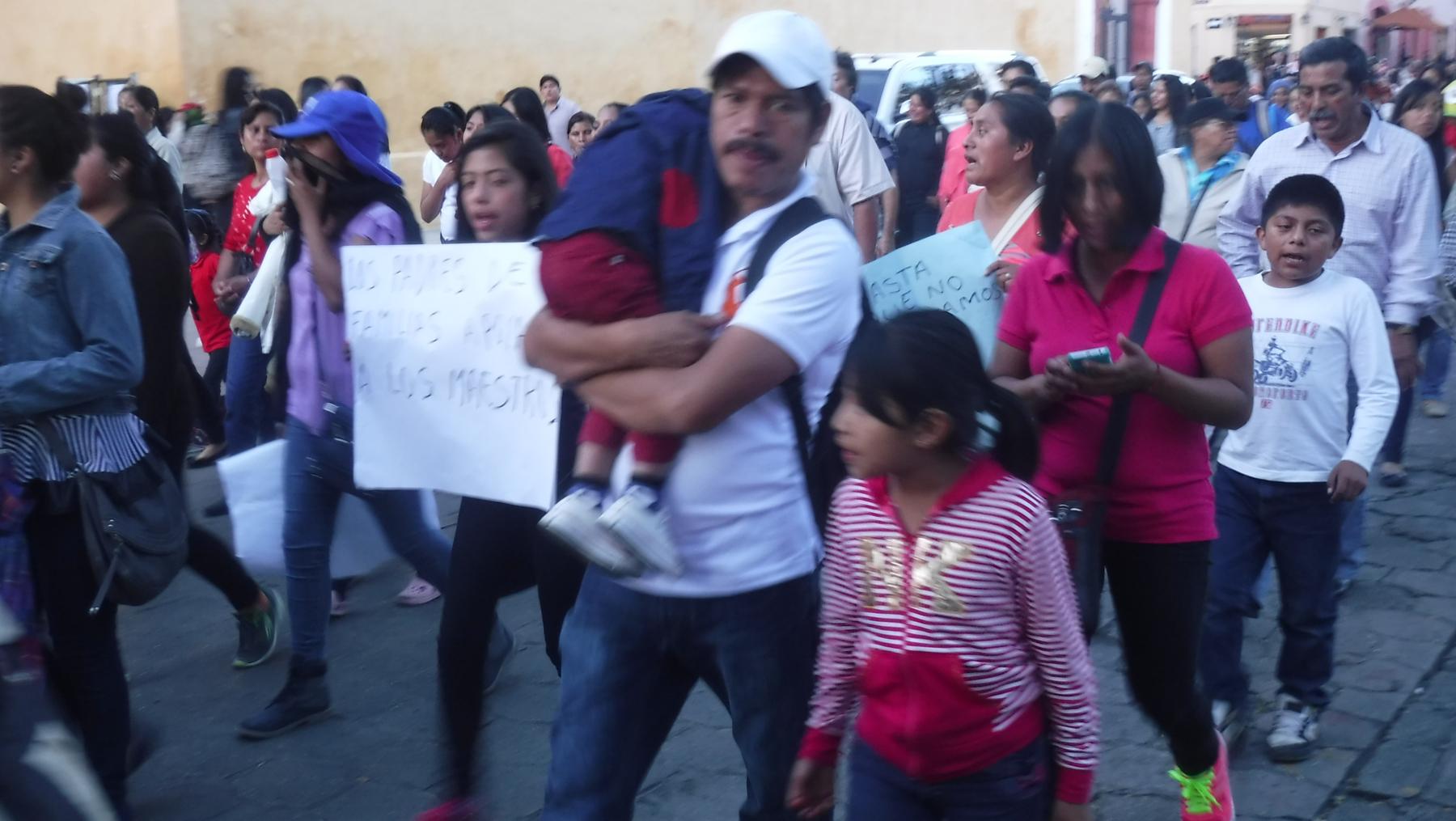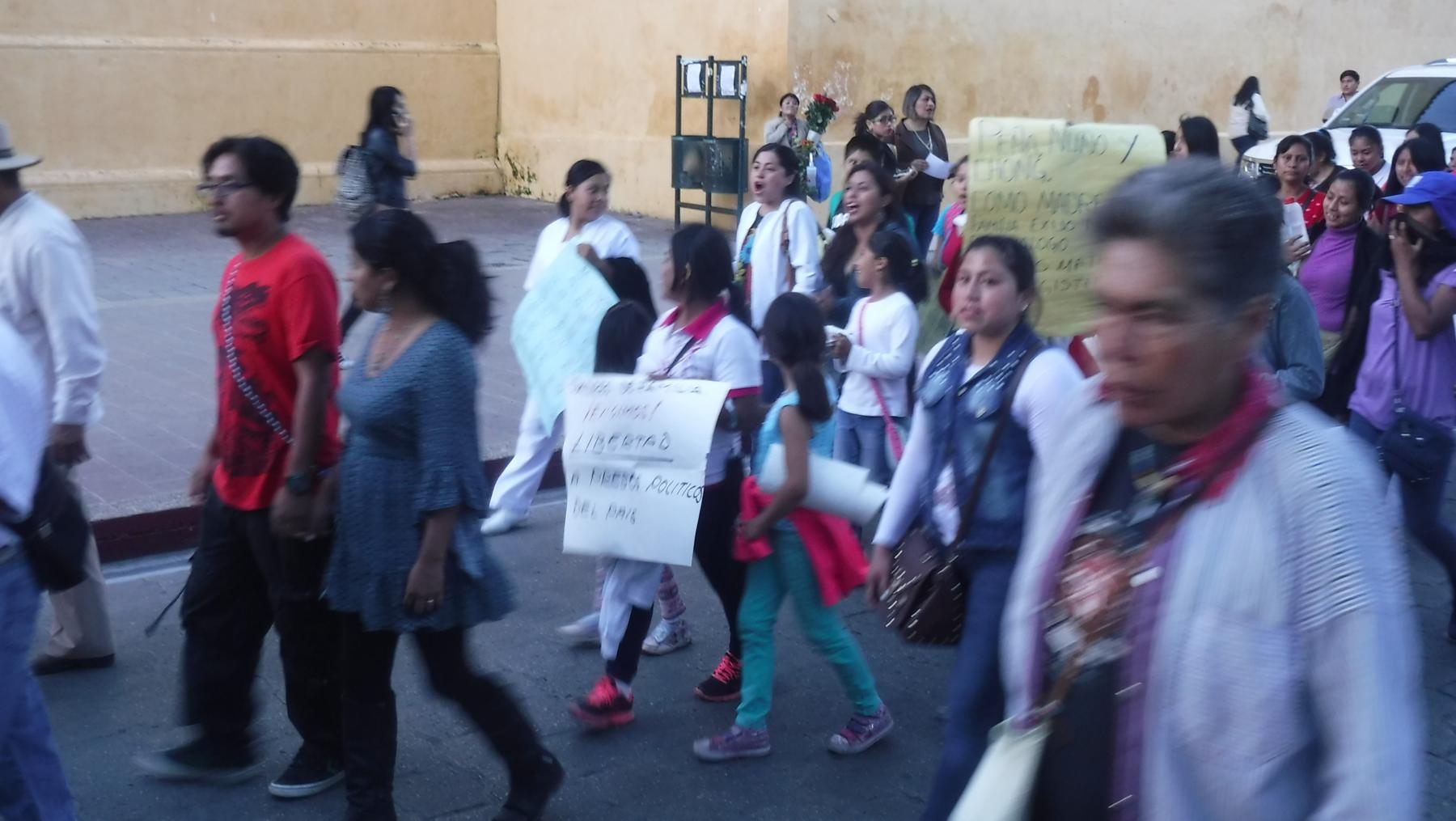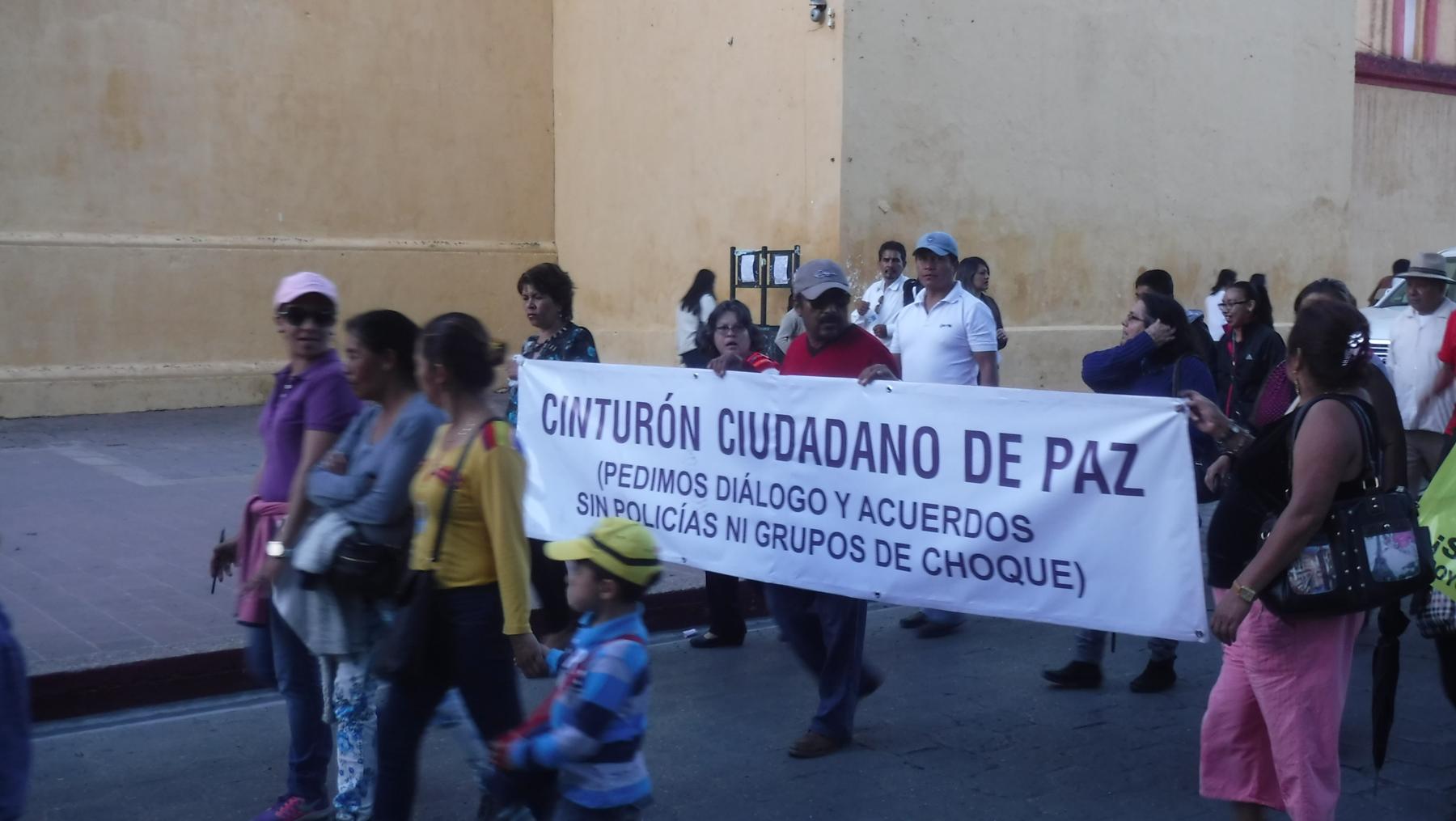
World
(Español) Día 3 – CompARTE por la humanidad – Cideci
Festival CompARTE por la humanidad
25 de julio de 2016
Cideci / Universidad de la Tierra Chiapas
Lunes 25 de julio.- Jovel-San Cristóbal de Las Casas, Chiapas. Es el tercer día del #CompArte por la Humanidad y los cuerpos, sonidos y trazos siguen interviniendo el espacio, tiempo, los corazones y pensamientos de quienes nos encontramos reunidos en esta comunidad de comunidades que es el Cideci-Unitierra Chiapas. Admirando esa obra compartida por cada uno, una, unoa de nuestras compas, el arte, la palabra y la imaginación siguen creando fusiones y transformando un poco, o mucho, de nosotros-as. La experiencia nos invita a seguir cavando profundo en los recónditos lugares de nuestra experiencia humana a través de la creación artística compartida de manera horizontal; abajo y la izquierda.
En este ánimo de compartir les dejamos esta entrega de materiales del tercer día de trabajos del festival para que puedan llegar a los diferentes rincones y geografías, para su libre difusión, producción y reproducción.
Juan Villoro compartió un conjunto de lecturas sobre las distintas y extrañas maneras de ser mexicanox y reflexionó sobre el arte, la ética, la imaginación y la ciencia:
(entrevista)
[podcast]https://radiozapatista.org/Audios/rzchiapas/juanvilloro.mp3[/podcast]
(intervención/presentación)
[podcast]https://radiozapatista.org/Audios/rzchiapas/juanvillorodos.mp3[/podcast]
Desde Montevideo, Carolina Guerra compartió una pieza crítica a los derechos de autor y la propiedad intelectual toda vez que el cuerpo es a la vez otros cuerpos y el arte y la vida tienen que estar juntos:
(entrevista)
[podcast]https://radiozapatista.org/Audios/rzchiapas/carolinaguerra.mp3[/podcast]
Bele Cerecero y Francisco García, de Mazatlan y del Colectivo bautizado en estos días como Tsunun, compartieron que el peregrinaje y el arte existen desde el momento en que nacemos:
(entrevista)
[podcast]https://radiozapatista.org/Audios/rzchiapas/colectivotsunun.mp3[/podcast]
El colectivo Corazón del Cerro, integrado por compas de distintos rincones de México, presentó un documental sobre el Seminario/Semillero El pensamiento Crítico Frente a la Hidra Capitalista, música electrónica y una exposicion visual que, sumadas, muestran cómo es que el arte puede hacer frente a la tormenta:
(entrevista)
[podcast]https://radiozapatista.org/Audios/rzchiapas/corazondelcerro.mp3[/podcast]
El coro de niñxs de la Casa Gandhi de San Cristóbal cantó a los maestros de la CNTE y abucheó a los granaderos:
(intervención/presentación)
[podcast]https://radiozapatista.org/Audios/rzchiapas/coroniñxsdos.mp3[/podcast]
[podcast]https://radiozapatista.org/Audios/rzchiapas/coroniñxstres.mp3[/podcast]
[podcast]https://radiozapatista.org/Audios/rzchiapas/coroniñxsuno.mp3[/podcast]
Coro de la Organización de la Sociedad Civil las Abejas de Acteal:
(intervención/presentación)
[podcast]https://radiozapatista.org/Audios/rzchiapas/corosdeacteal.mp3[/podcast]
Desde Sinaloa, Delta Teatro compartió la pieza “Coyolim, las aventuras de un niño Yoreme”:
(entrevista)
[podcast]https://radiozapatista.org/Audios/rzchiapas/deltateatro.mp3[/podcast]
Deni V y MC Estope de Puebla tomaron la casa con rap consciente como “Por esta tierra” y “Dos pájaros de un tiro”:
(entrevista)
[podcast]https://radiozapatista.org/Audios/rzchiapas/hiphoppuebla.mp3[/podcast]
(intervención/presentación)
[podcast]https://radiozapatista.org/Audios/rzchiapas/mcspueblaporestatierra.mp3[/podcast]
[podcast]https://radiozapatista.org/Audios/rzchiapas/mcspuebladospajaros.mp3[/podcast]
Fusión de música prehispánica:
(intervención/presentación)
[podcast]https://radiozapatista.org/Audios/rzchiapas/musicaconcuento.mp3[/podcast]
Integrantes del colectivo latinoamericano Raicestencia compArtieron que el arte es una especie de constelación, luz y guía cuando se está navengando en la lucha:
(entrevista)
[podcast]https://radiozapatista.org/Audios/rzchiapas/raicestencia.mp3[/podcast]
Desde Escocia, Ruby Zajac, de la compañia de teatro para niñxs de 3 a 103 años Lickelyspit, presentó “Molly Whuppie”:
(entrevista)
[podcast]https://radiozapatista.org/Audios/rzchiapas/rubykazaj.mp3[/podcast]
Son Jarocho con el grupo “Senderos del Son”:
(intervención/presentación)
[podcast]https://radiozapatista.org/Audios/rzchiapas/senderosdelson.mp3[/podcast]
[podcast]https://radiozapatista.org/Audios/rzchiapas/senderosdelsondos.mp3[/podcast]
Catautor Fernando Escobar
(intervención/presentación)
[podcast]https://radiozapatista.org/Audios/rzchiapas/fernandoescobar.mp3[/podcast]
las risas de los asistentes no se hizo esperar en la increible presentacion del circo colectivo efimero
(entrevista)
[podcast]https://radiozapatista.org/Audios/rzchiapas/circo.mp3[/podcast]
Presentación del grupo de Rock Telepatics de San Cristobal de las Casas
(intervención/presentación)
[podcast]https://radiozapatista.org/Audios/rzchiapas/telepatics.mp3[/podcast]
(Español) Día 2 – CompARTE por la humanidad – Cideci
Festival CompARTE por la humanidad
24 de julio de 2016
Cideci / Universidad de la Tierra Chiapas
Domingo 24 de julio.- Jovel-San Cristóbal de Las Casas, Chiapas. Durante este segundo día del Festival #CompArte por la Humanidad continuaron las comparticiones por parte de los y las compañeras que siguen llegando de las distintas geografías de México y el Planeta tierra. Miradas, palabras, sonidos, imágenes, silencios y trazos que dibujan con sus cuerpos irrumpen en el calendario para mostrar el diverso abanico de la resistencia hecha arte. Aquí les compartimos algunos de los trabajos presentados en esta segunda jornada en el Cideci-Unitierra Chiapas, donde el compañerismo, la fraterinidad y sororidad siguen cavando en lo profundo de nuestra Humanidad, donde la rabia compartida se torna esperanza.
El Colectivo Utopía de Michoacán presentó la instalación “Vivos:43 siluetas” para recordar que los 43 normalistas están entre nosotrxs:
[podcast]https://radiozapatista.org/Audios/rzchiapas/colectivoutopia.mp3[/podcast]
Desde el centro de México, Ensamble Comics compartió el comic “Las aventuras del brujo Cristóbal” y charló sobre las leyendas que nos rescatan, la autogestión cultural, el arte y la resistencia:
[podcast]https://radiozapatista.org/Audios/rzchiapas/ensamblecomics.mp3[/podcast]
En 18 segundos, el colectivo La Necia del Distrito Federal abordó temáticas como la falta de memoria, la violencia hacia las mujeres, el desplazamiento forzado y la desaparicion de los normalistas de Ayotzinapa. El Arte, dijeron, debe ser una pregunta y otro modo de compartir y luchar:
[podcast]https://radiozapatista.org/Audios/rzchiapas/colectivolanecia.mp3[/podcast]
Desde Morelos, el grupo Los Tecomates charló sobre la alegría de zapatear, comunicar, participar y decidir. Además compartió, entre otros, el son “Los Piojos”:
[podcast]https://radiozapatista.org/Audios/rzchiapas/lostecomates.mp3[/podcast]
[podcast]https://radiozapatista.org/Audios/rzchiapas/sonlospiojos.mp3[/podcast]
Desde Ensenada, en la otra esquina de México, Edgar Huerta, mejor conocido como Disidente, mezcló hip-hop y reggae para llamar a conectar y combinar lo social, lo personal y lo espiritual. Como muestra de su claridad, las pistas “Fuerza de Guerrero” y “Semilla de cambio”:
[podcast]https://radiozapatista.org/Audios/rzchiapas/dicidente.mp3[/podcast]
[podcast]https://radiozapatista.org/Audios/rzchiapas/hiphop1.mp3[/podcast]
[podcast]https://radiozapatista.org/Audios/rzchiapas/hiphopdos.mp3[/podcast]
Desde Santiago de Chile y la editorial Quimantú (Sol del saber), Ignacio Pardo compartió poesía ligada a la resistencia latinoamericana, tal y como muestra su texto “Ayotzinapa”:
[podcast]https://radiozapatista.org/Audios/rzchiapas/ignaciopardo.mp3[/podcast]
En el primer palomazo del salón de poesía y narrativa, Javier Andrade, médico de Pachuca, Hidalgo, compartió el cuento “El sueño” escrito desde 1982:
[podcast]https://radiozapatista.org/Audios/rzchiapas/javierandrade.mp3[/podcast]
Tras casi una década en la Garrucha, el colectivo la Karakola presentó la obra de teatro “El maíz transgénico” escrita de manera colectiva con lxs compas de este caracol:
[podcast]https://radiozapatista.org/Audios/rzchiapas/lakarakola.mp3[/podcast]
Desde el desierto de Wirikuta, Antonio Trejo (Marcos Blues) compartió una muestra de canción social de autor llamada a alimentar la congruencia y la resistencia:
[podcast]https://radiozapatista.org/Audios/rzchiapas/marcosblues.mp3[/podcast]
[podcast]https://radiozapatista.org/Audios/rzchiapas/compaslp1.mp3[/podcast]
Desde Brasil, Elenara Eiabel viajó con un par de exposiciones sobre graffiti, periodistas y libertad de expresión. En el camino destacó que el arte puede ser un arma de denuncia y que las experiencias de resistencia del pueblo mexicano demuestran que aún es posible otro tipo de humanidad:
[podcast]https://radiozapatista.org/ Audios/rzchiapas/elenara.mp3[/podcast]

